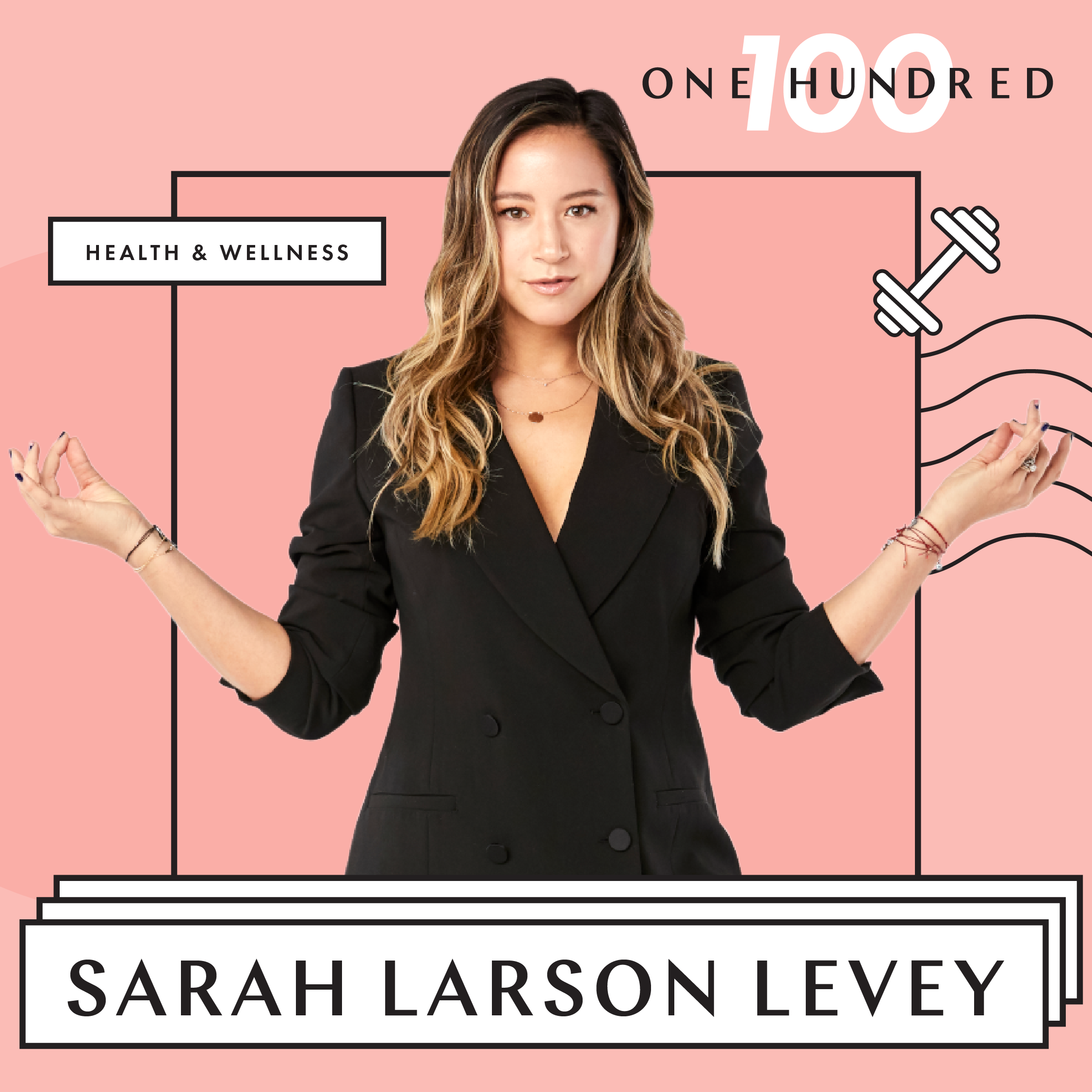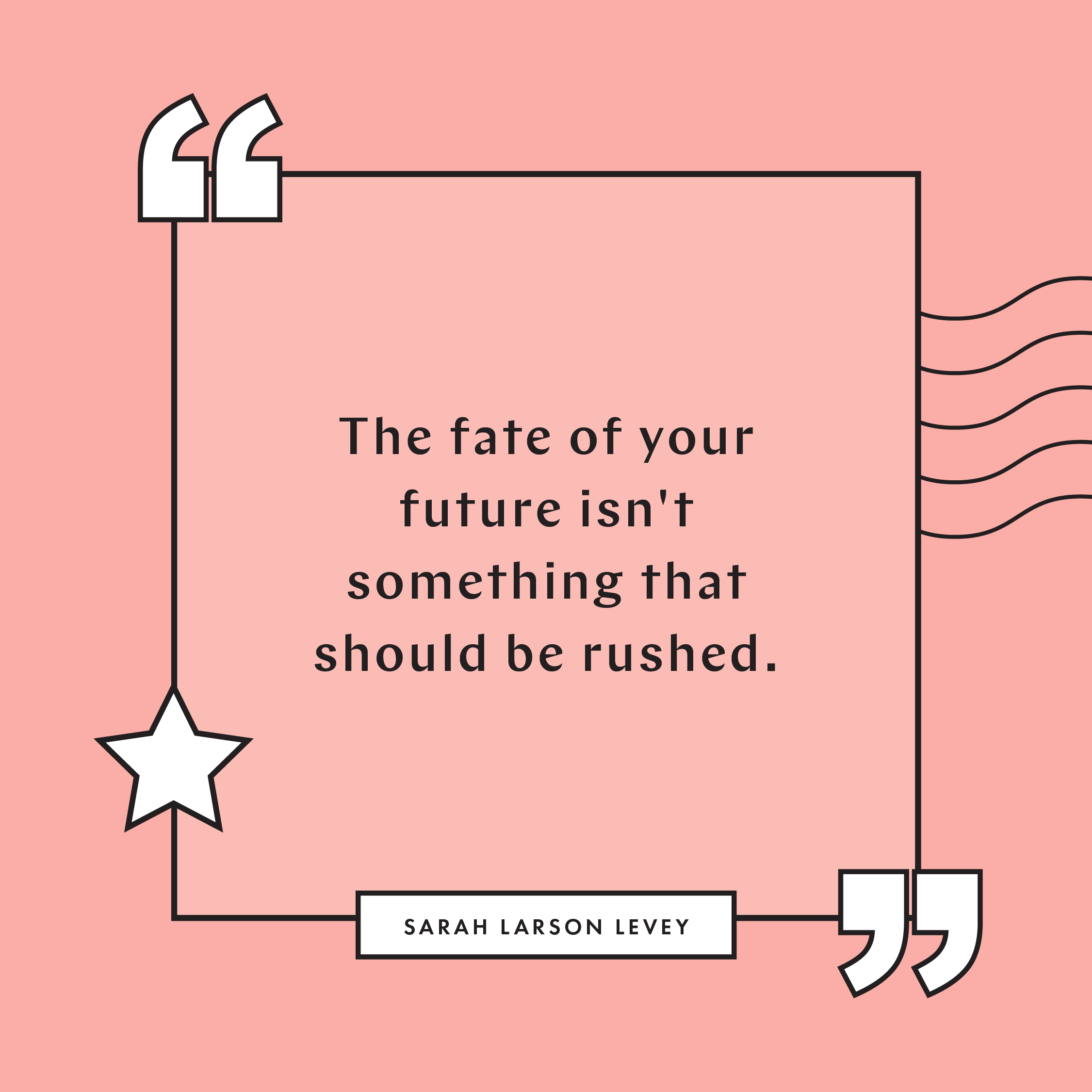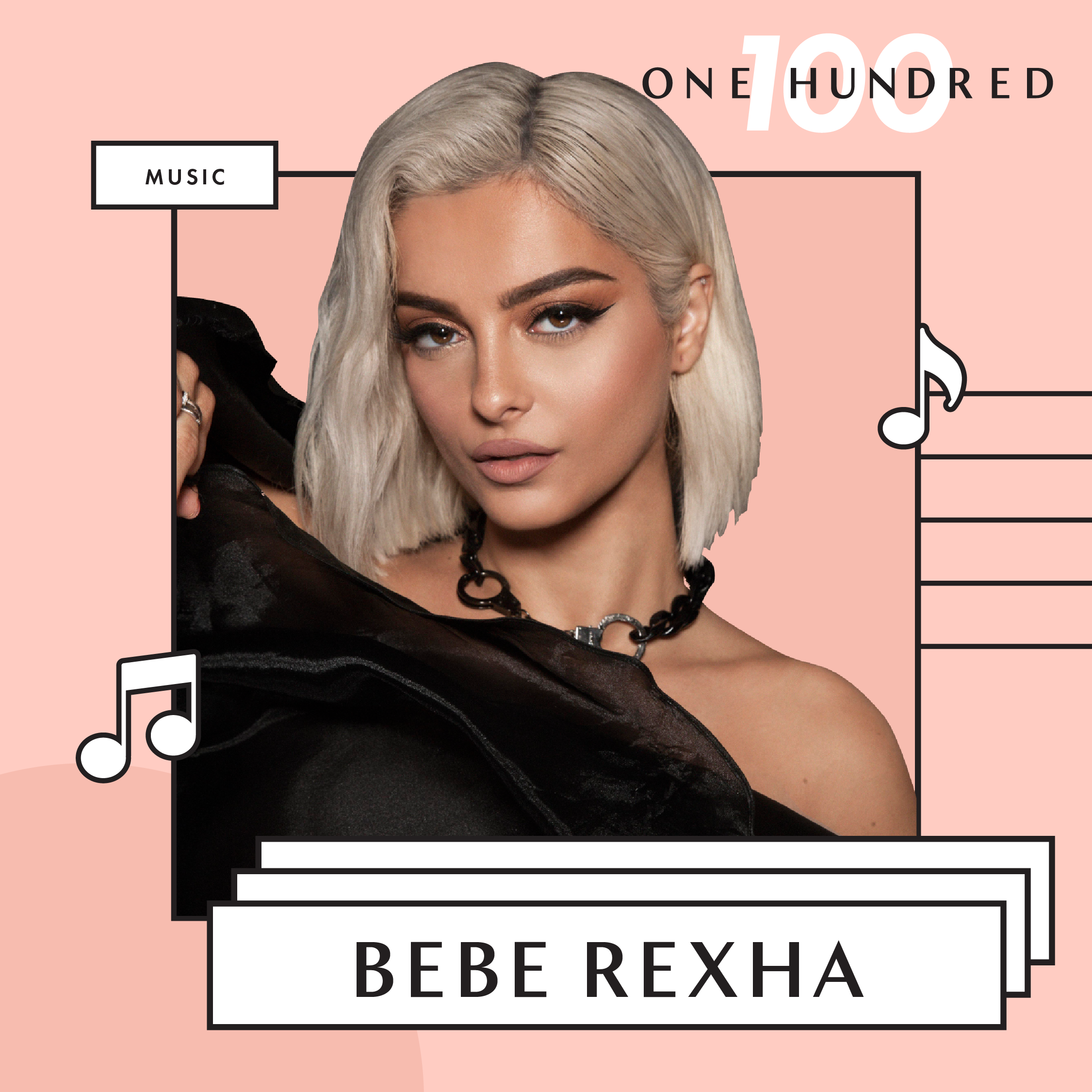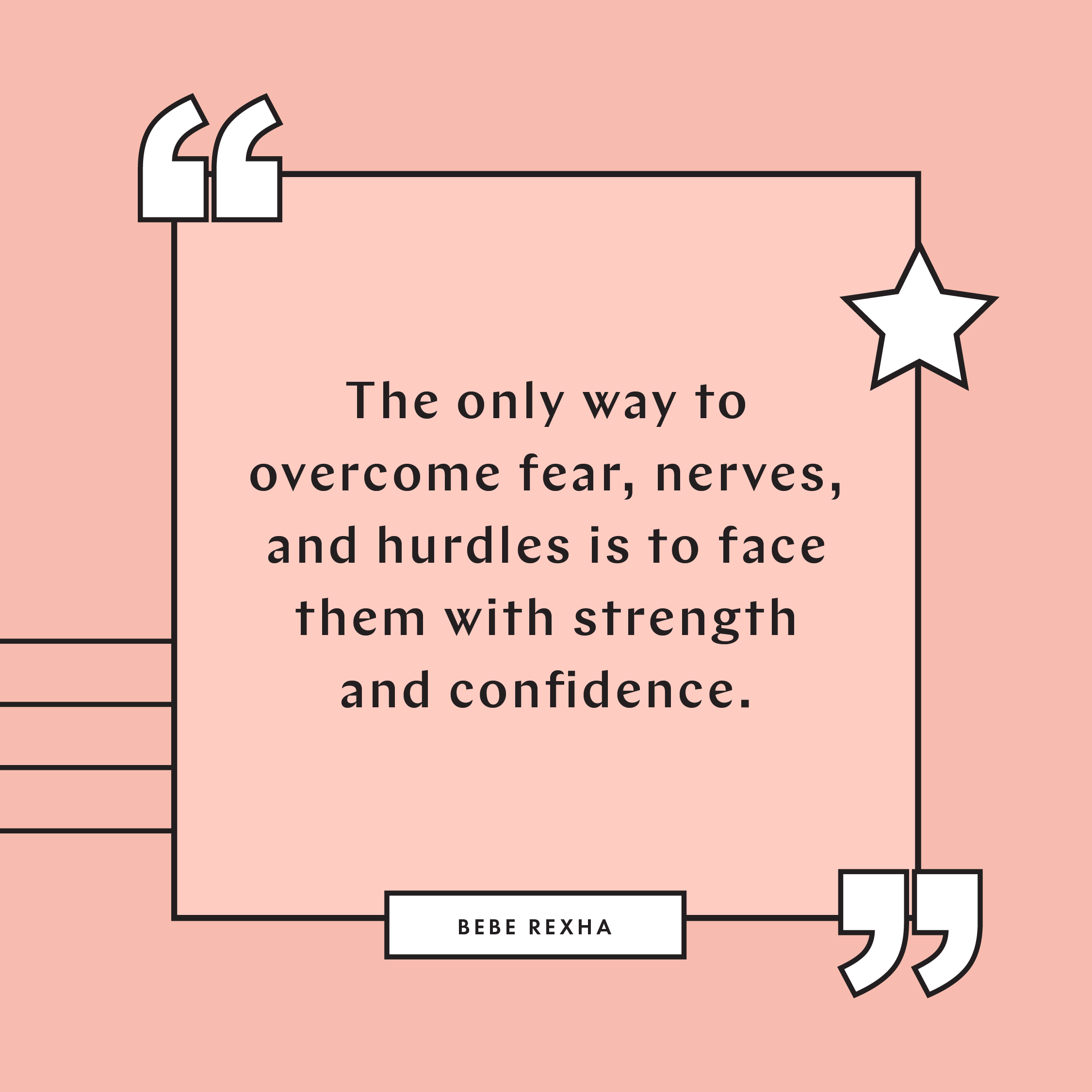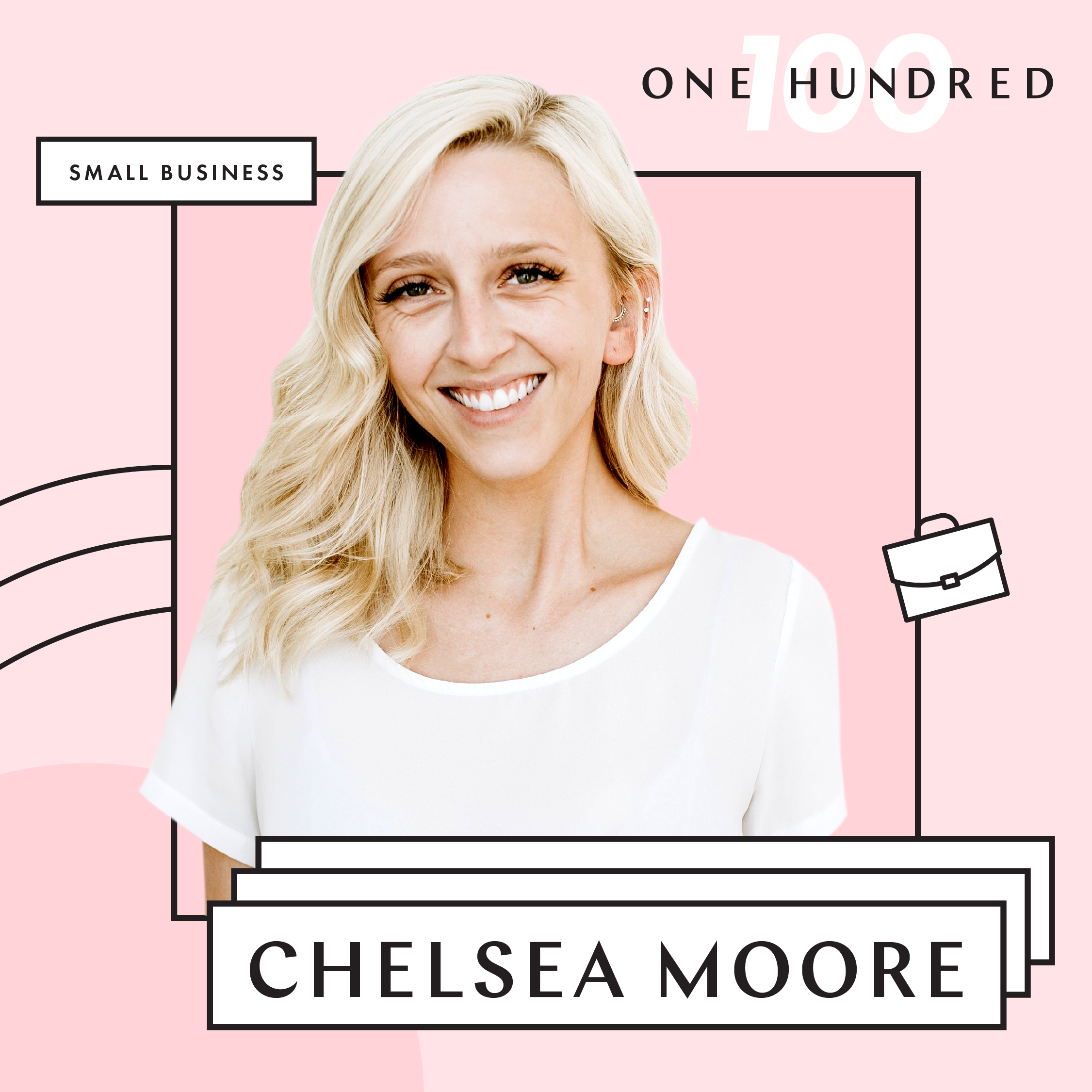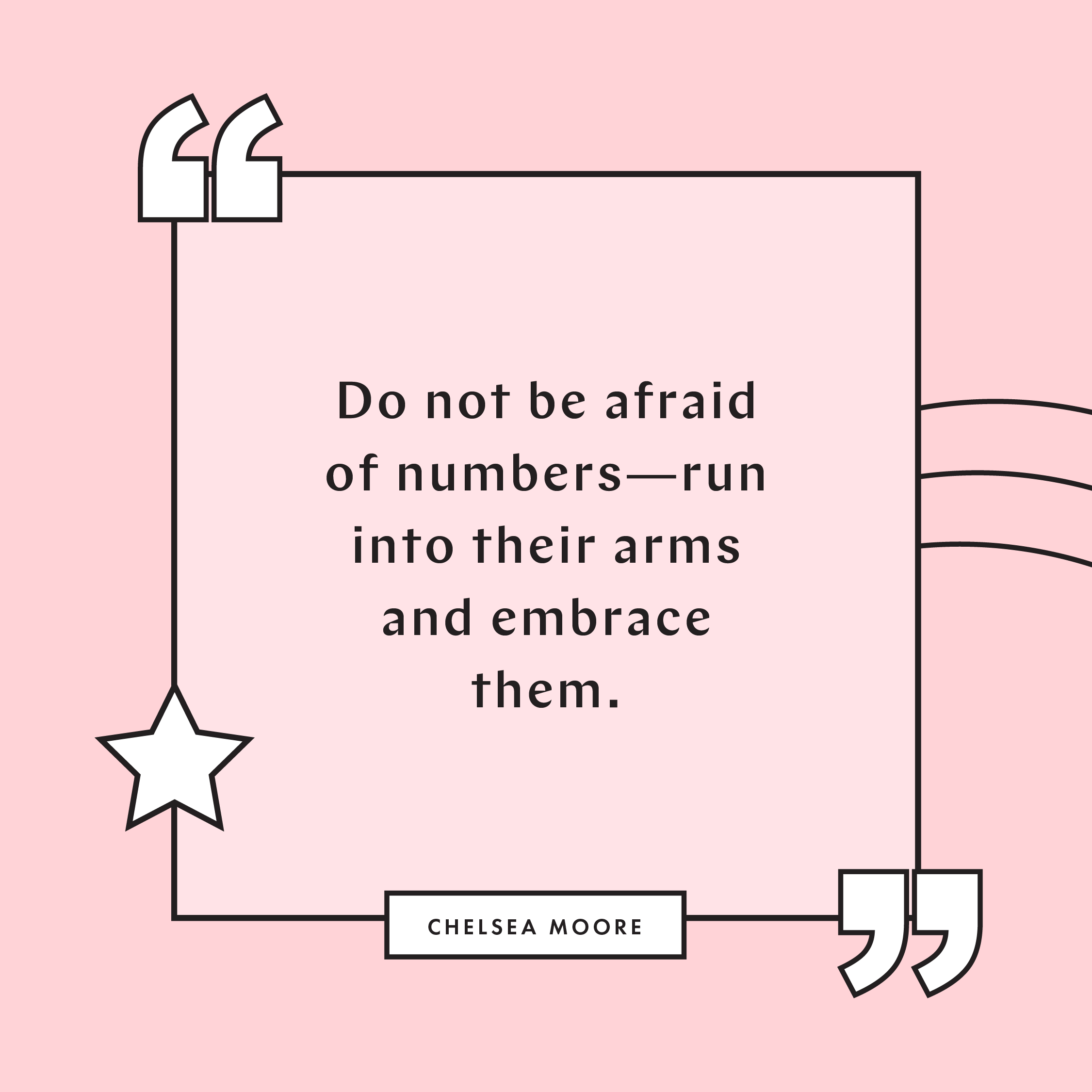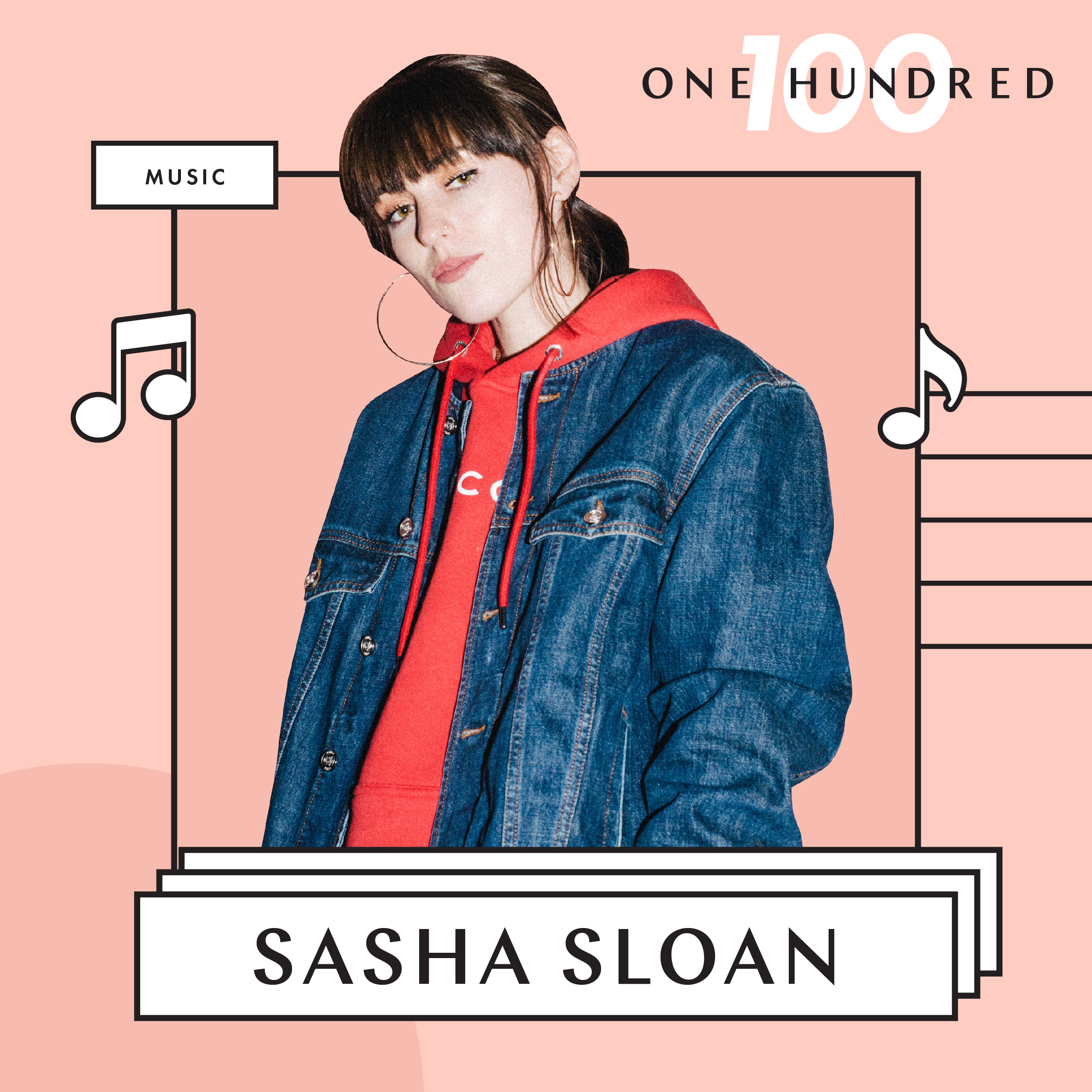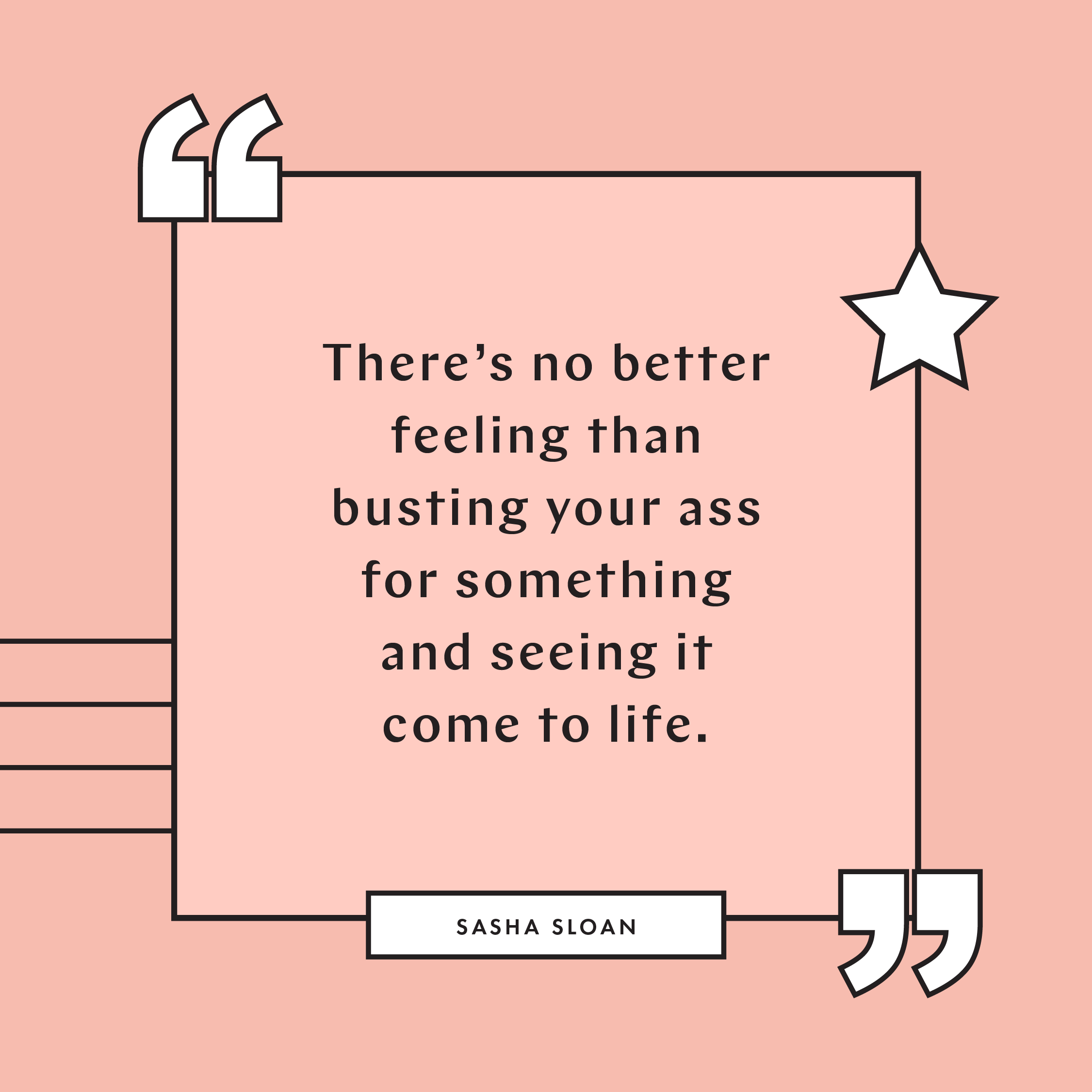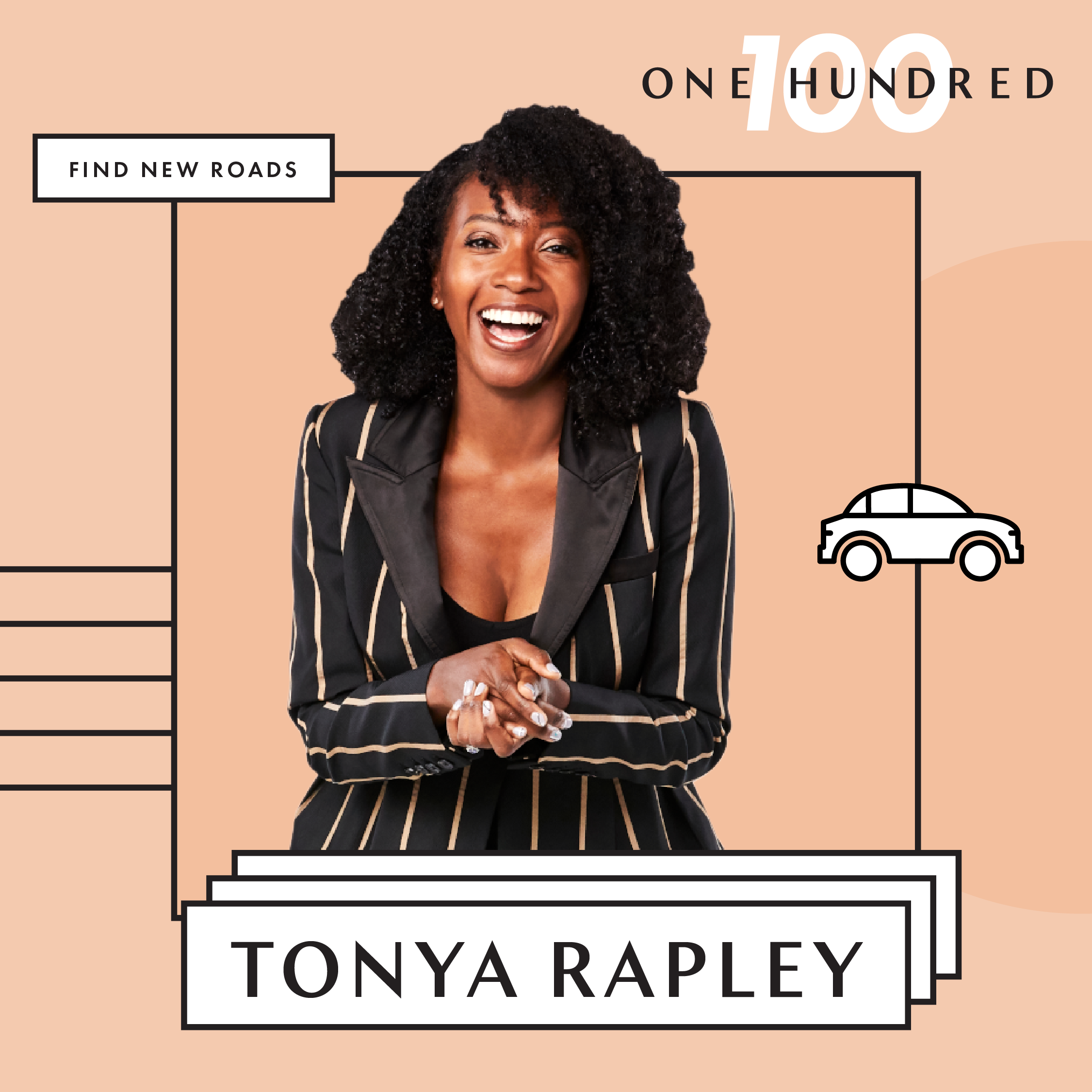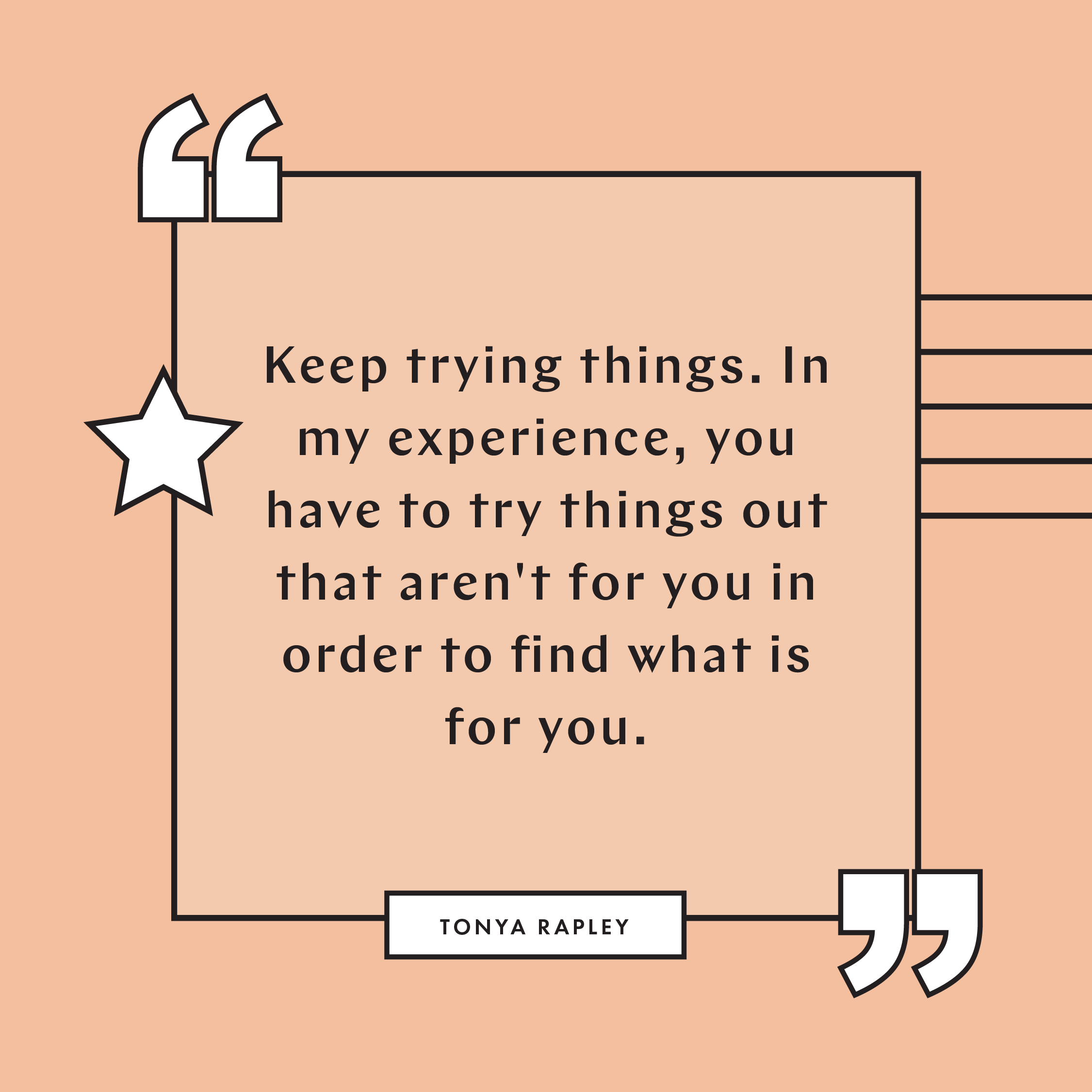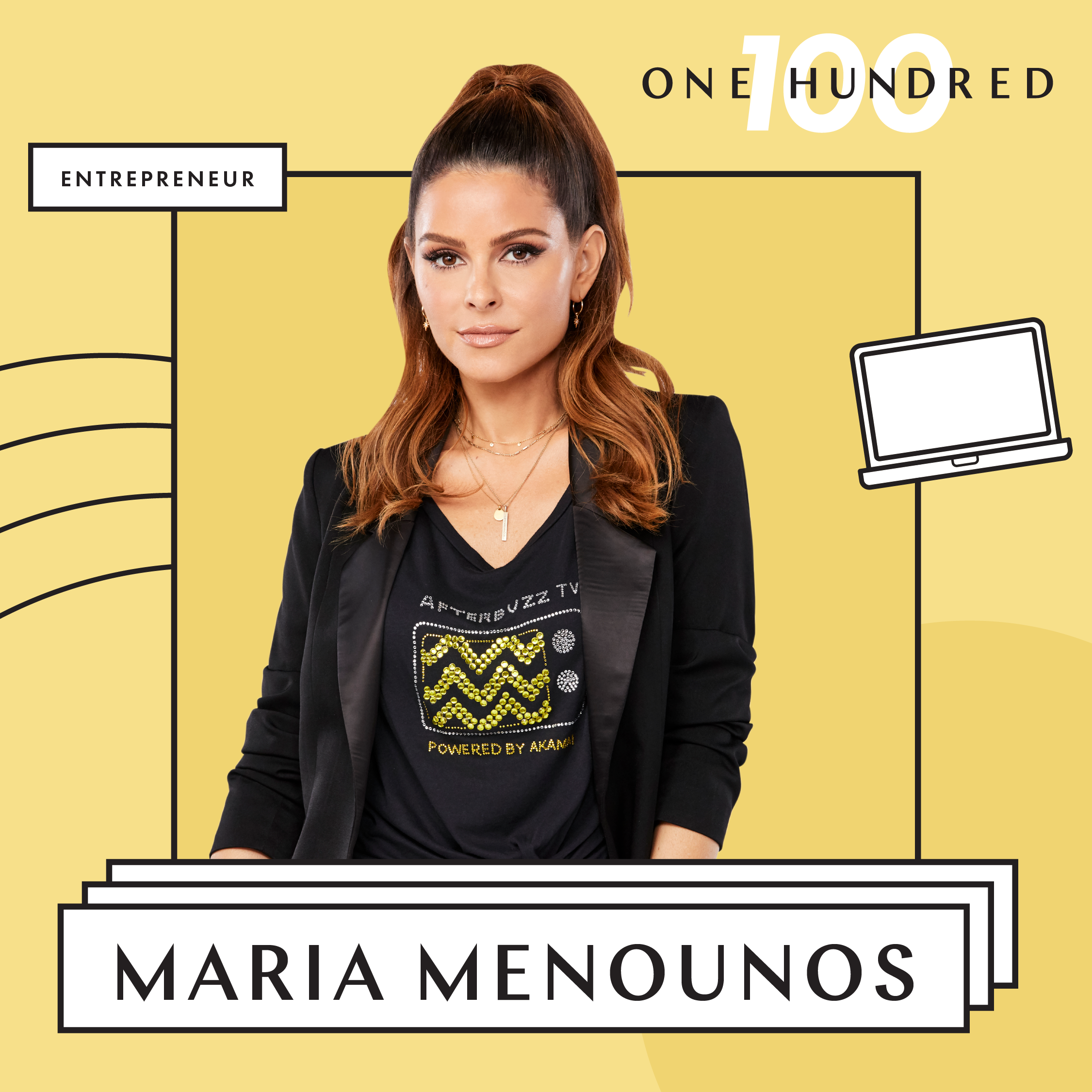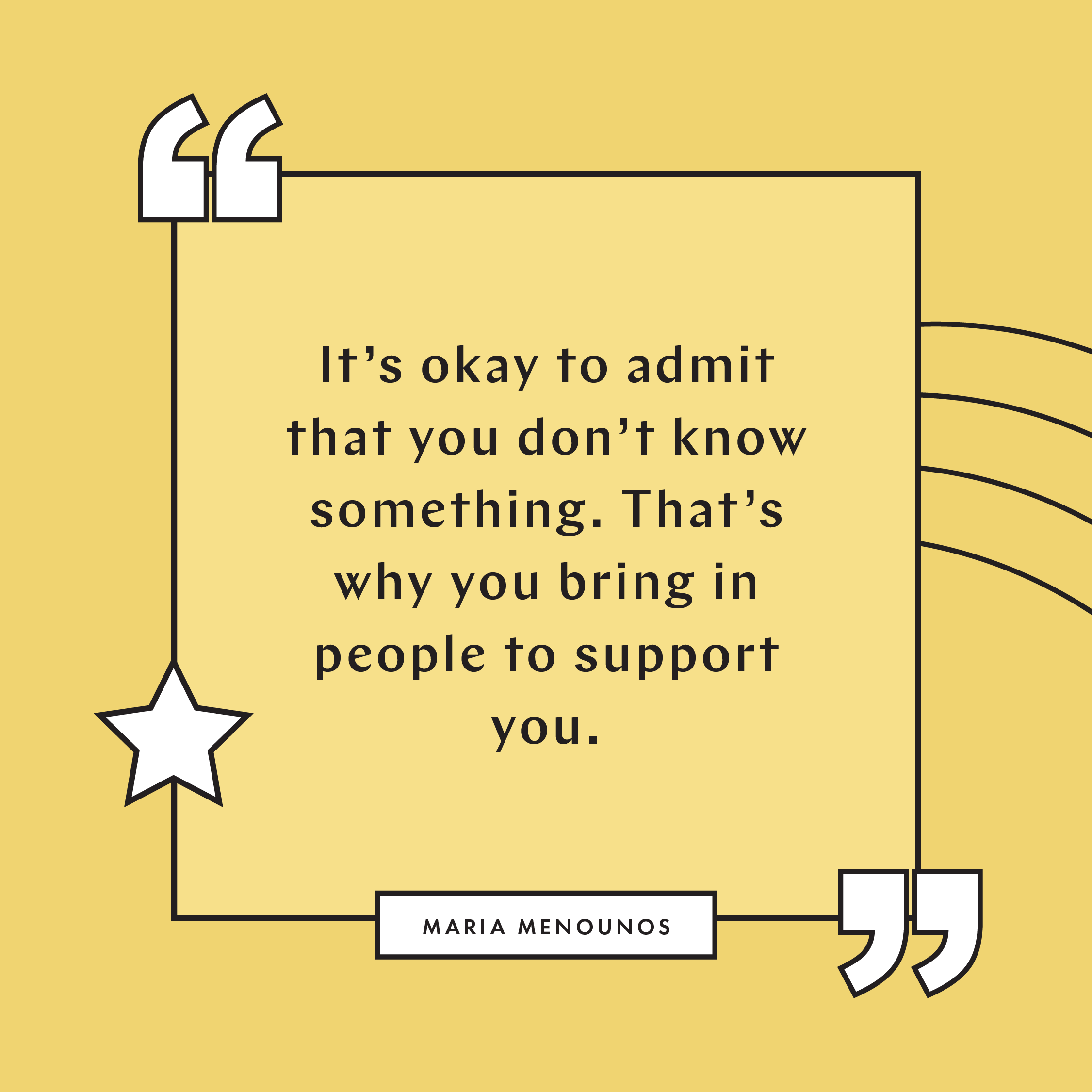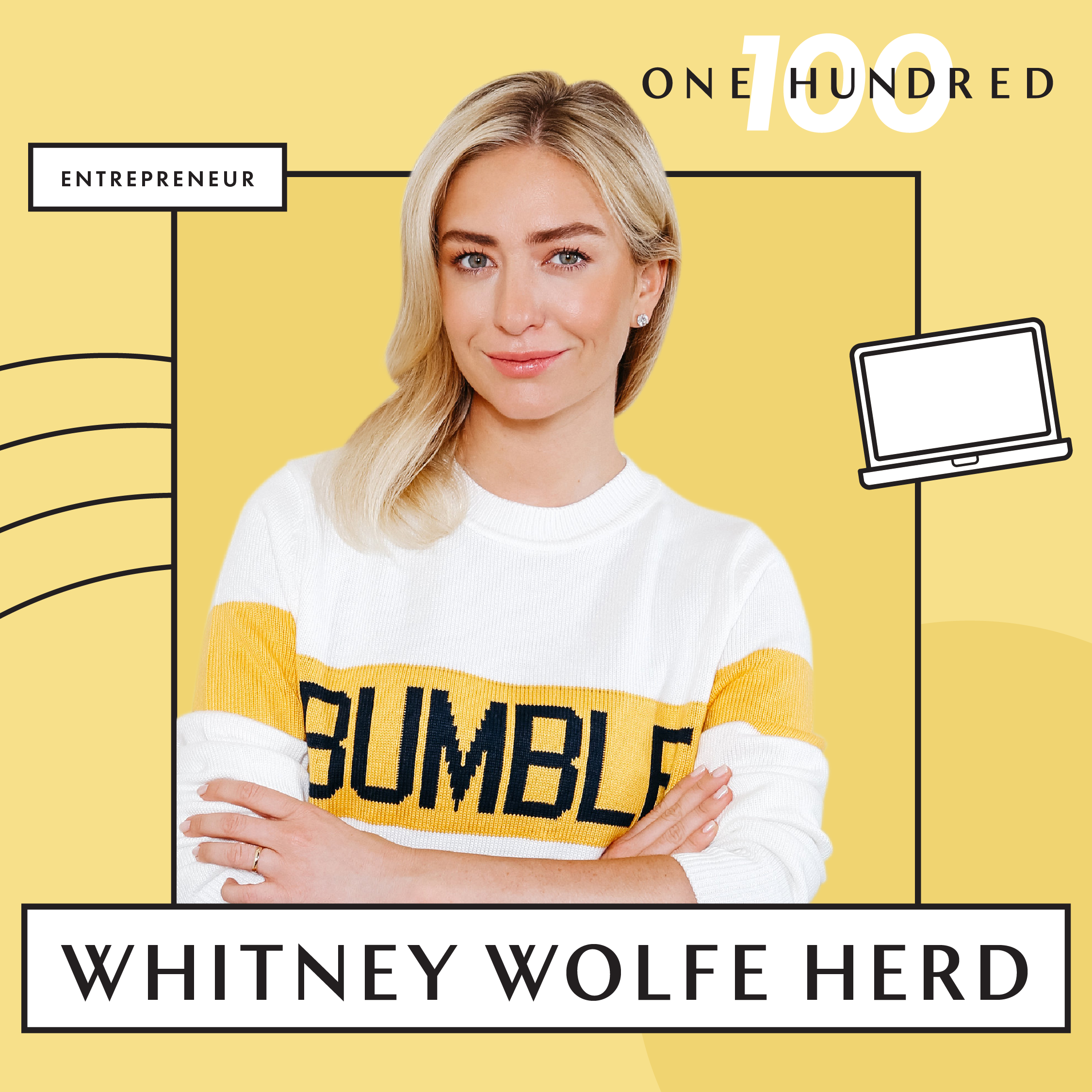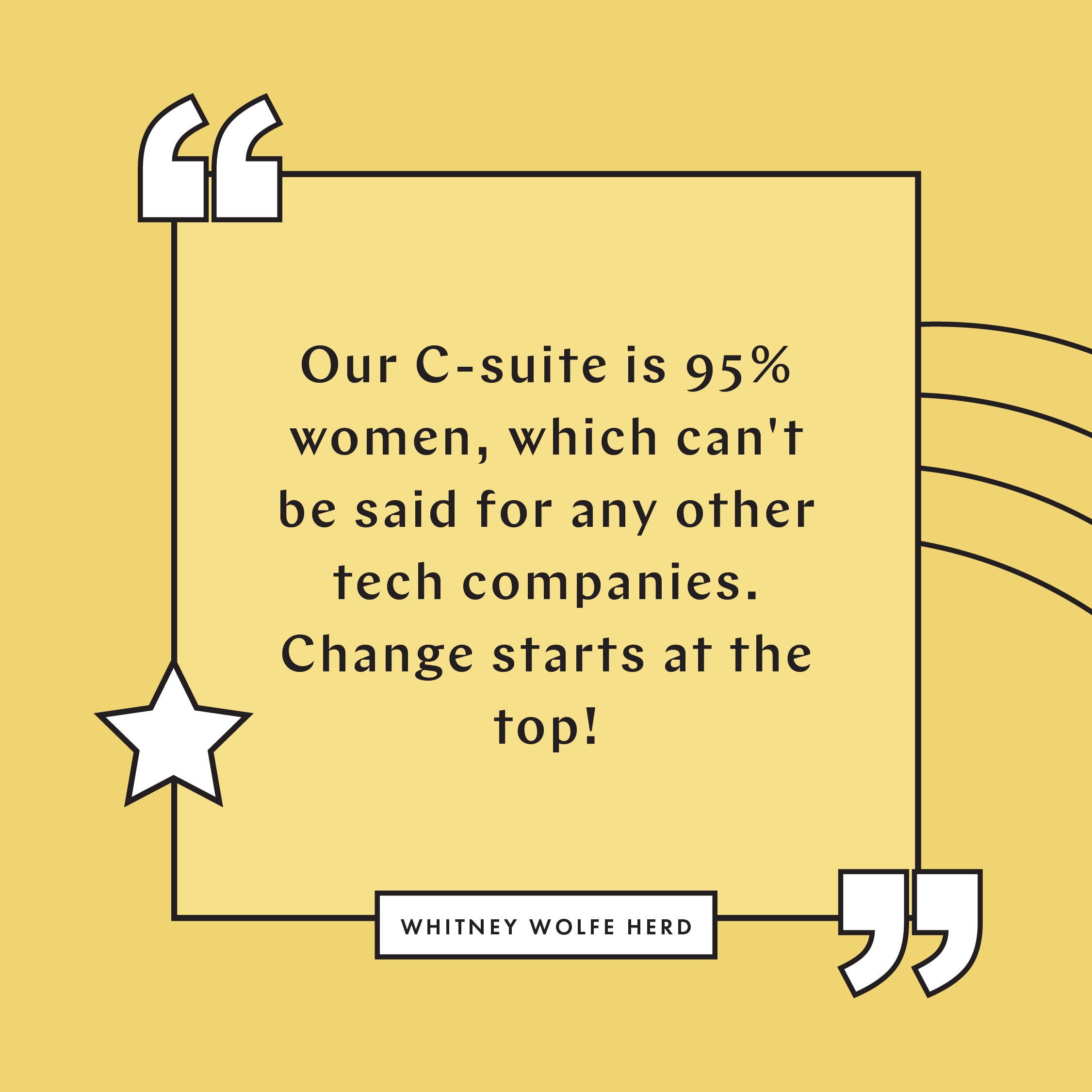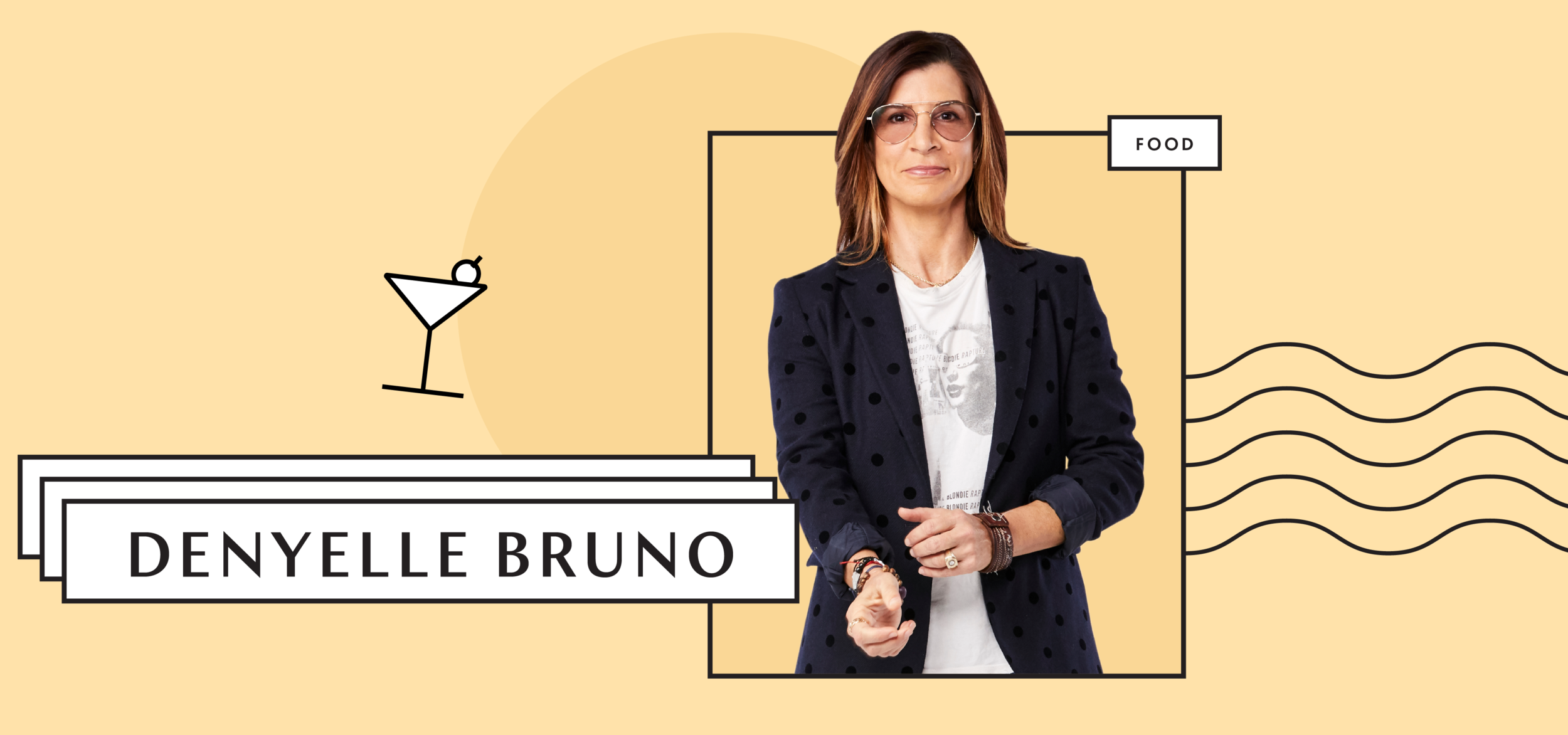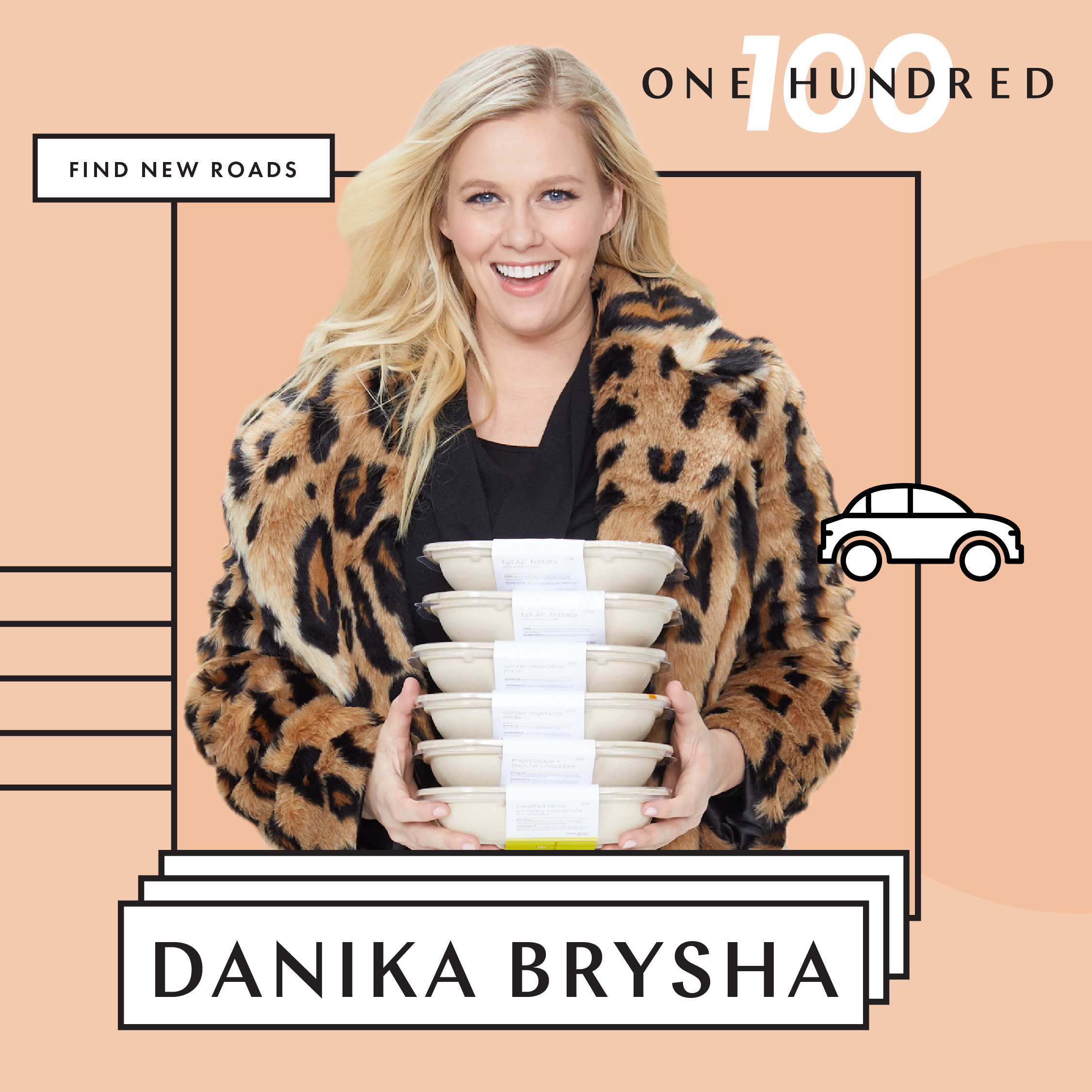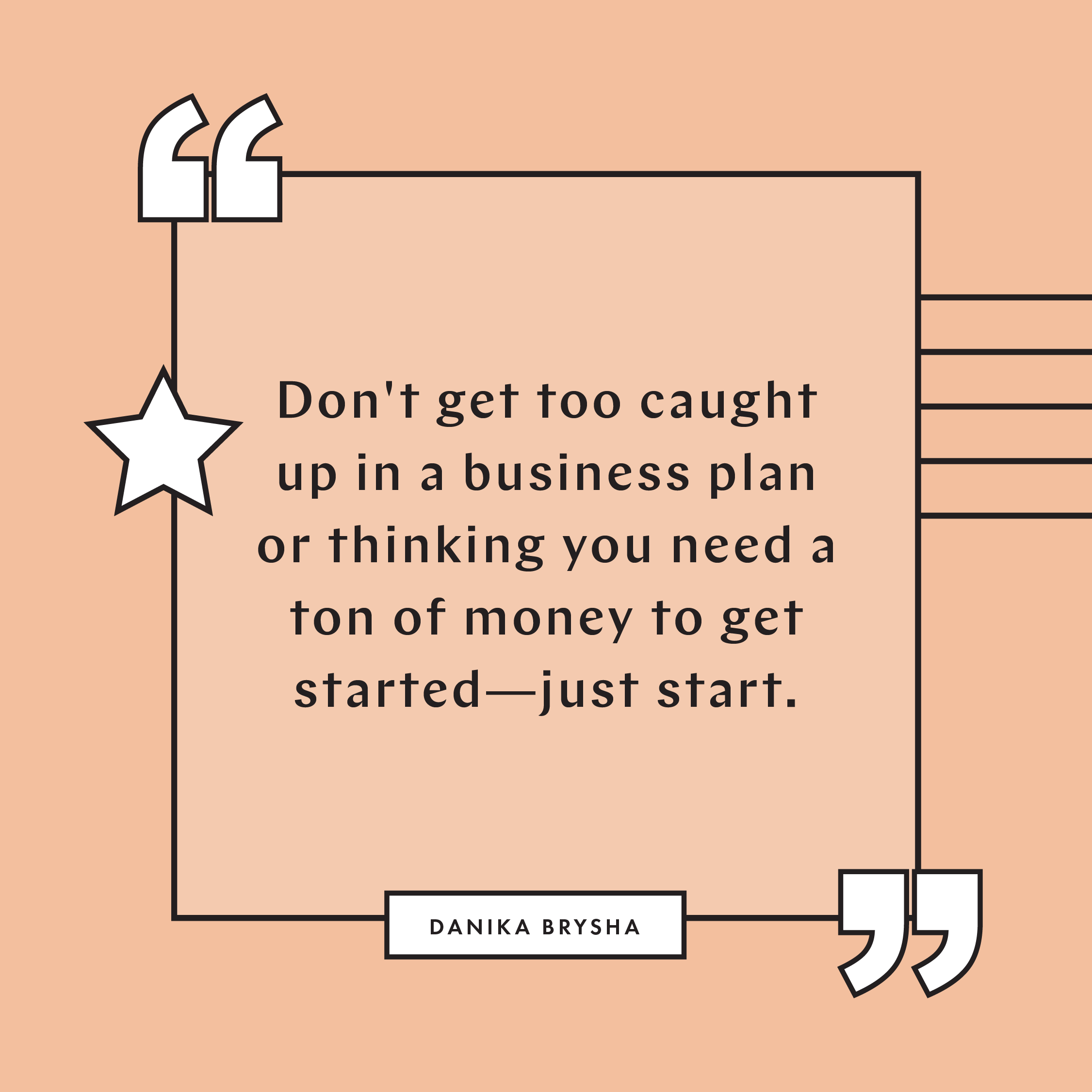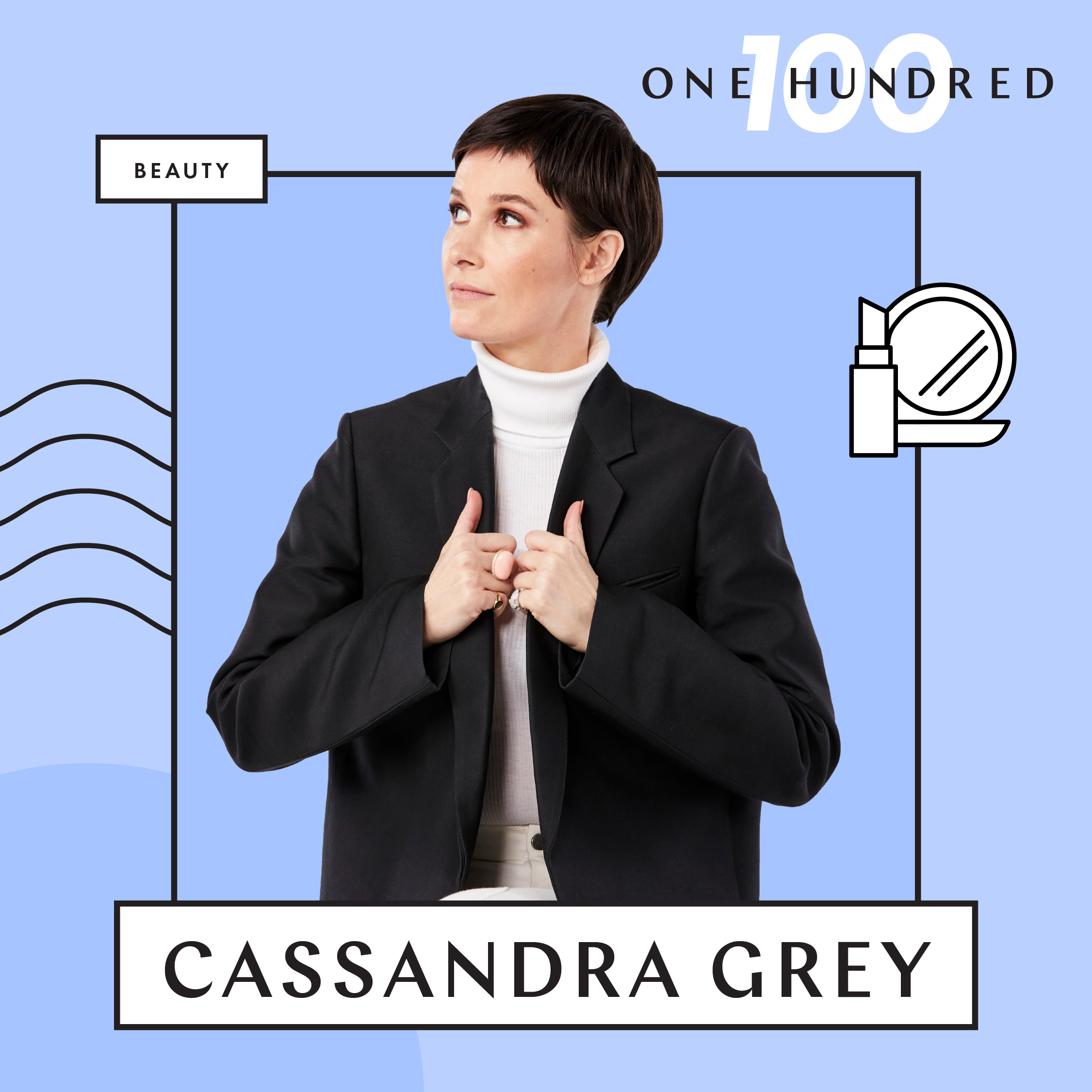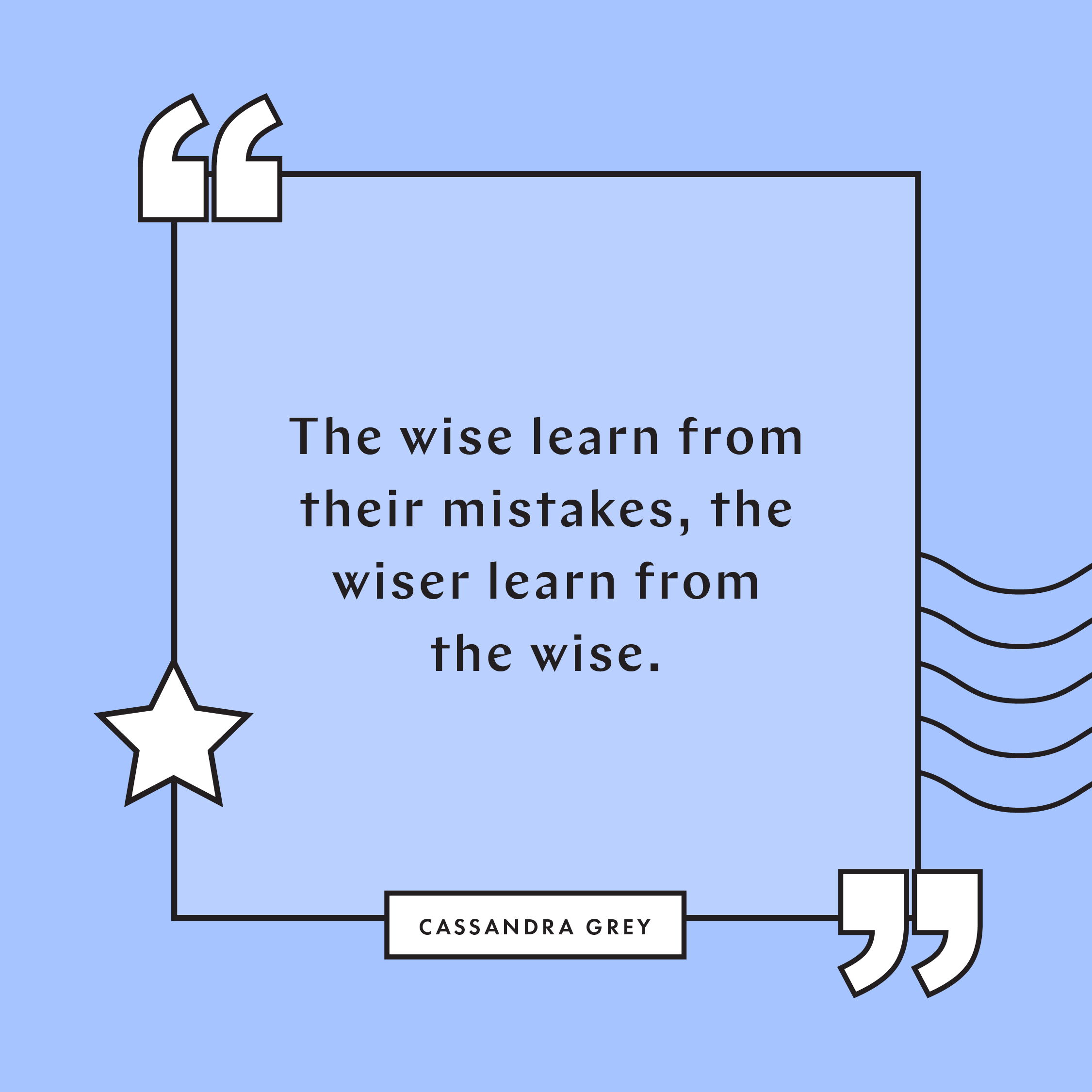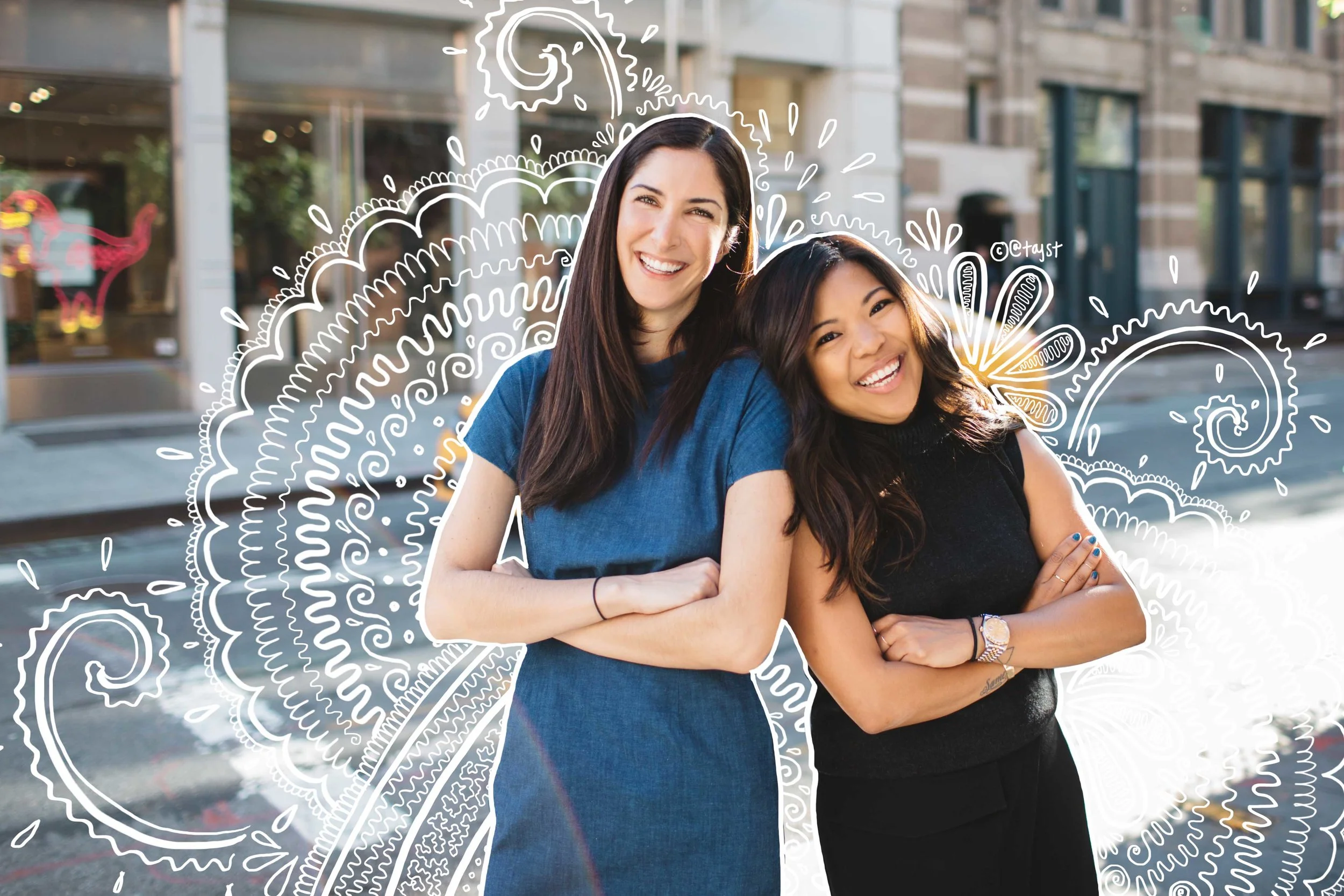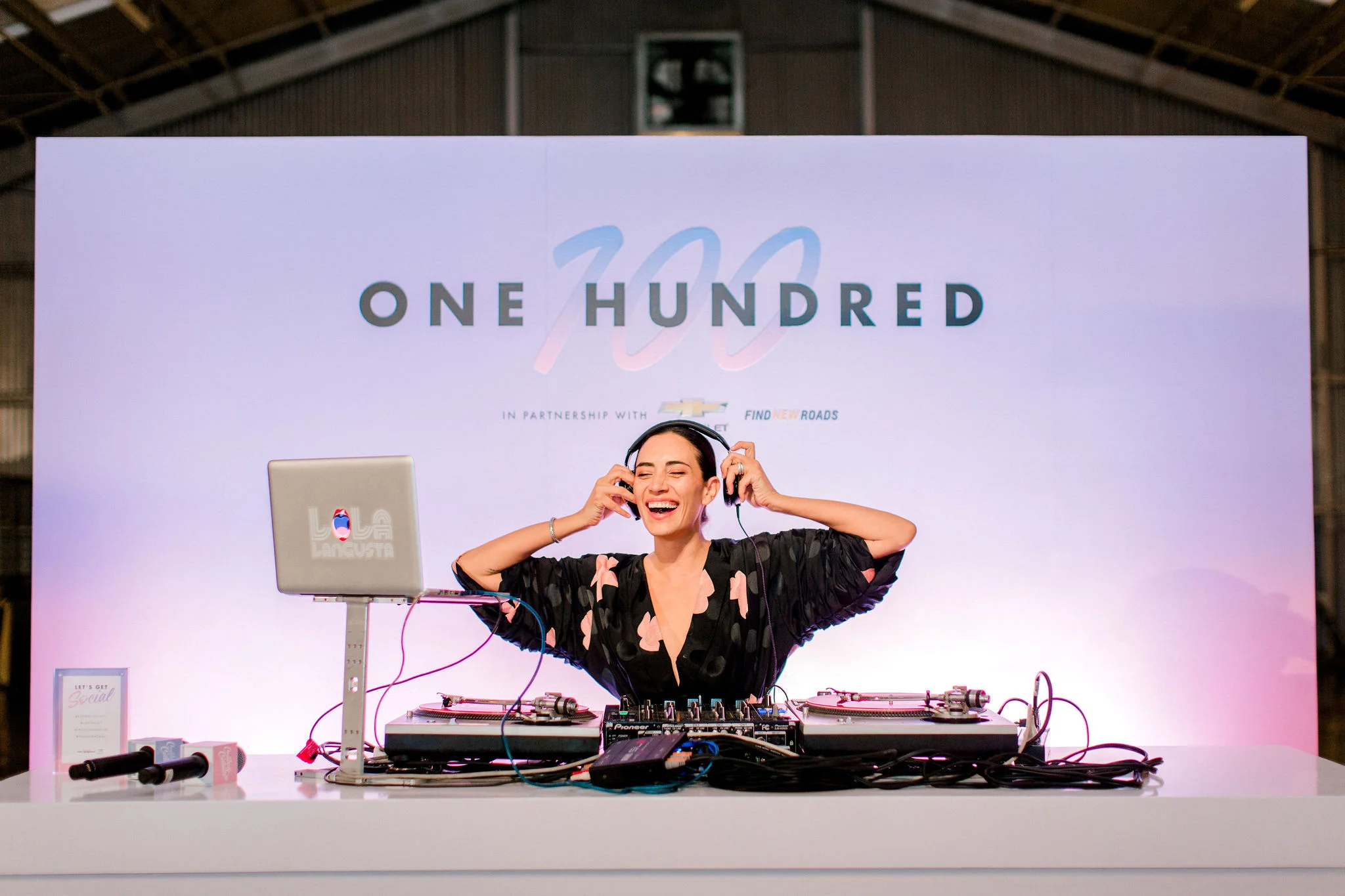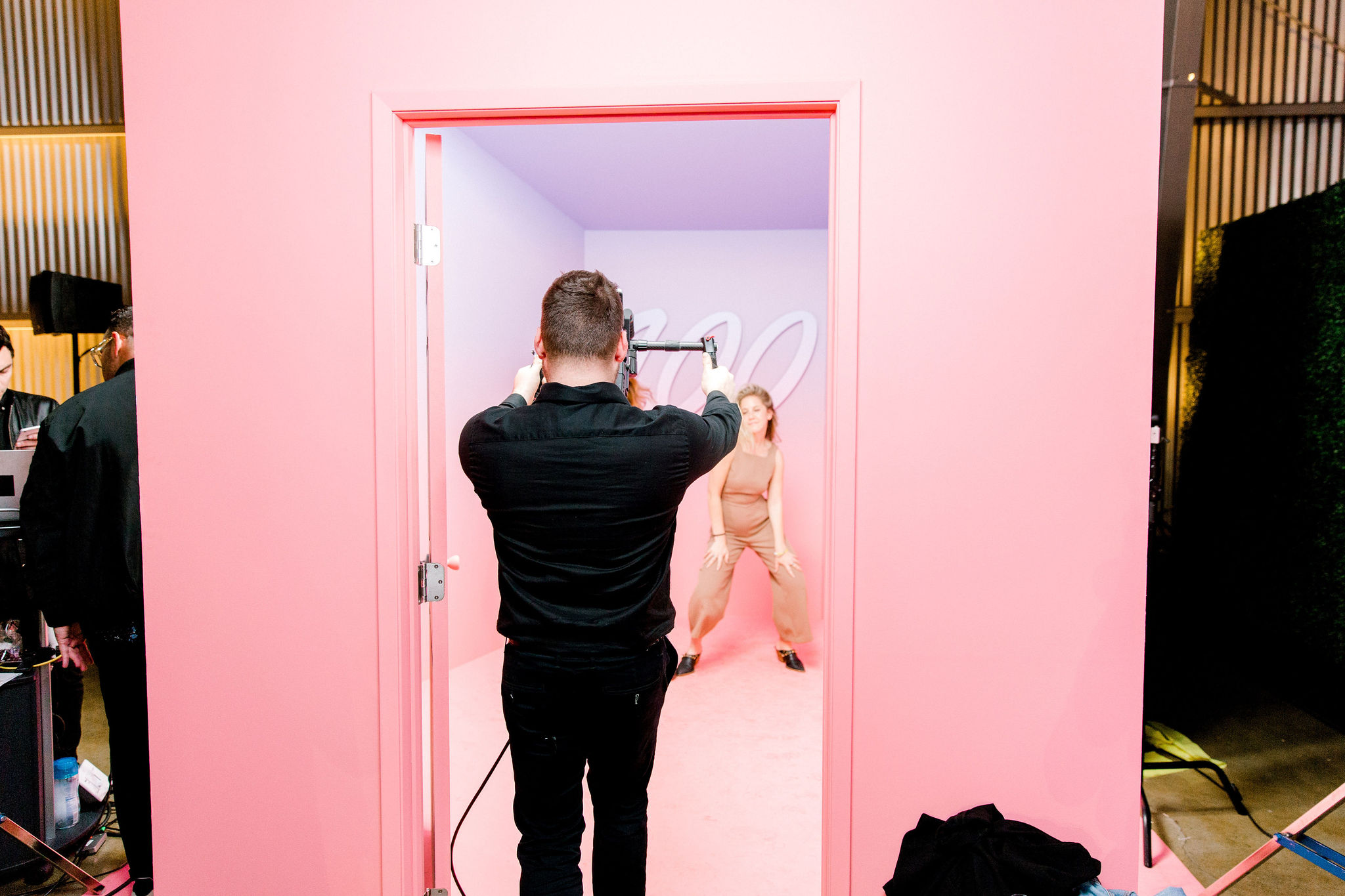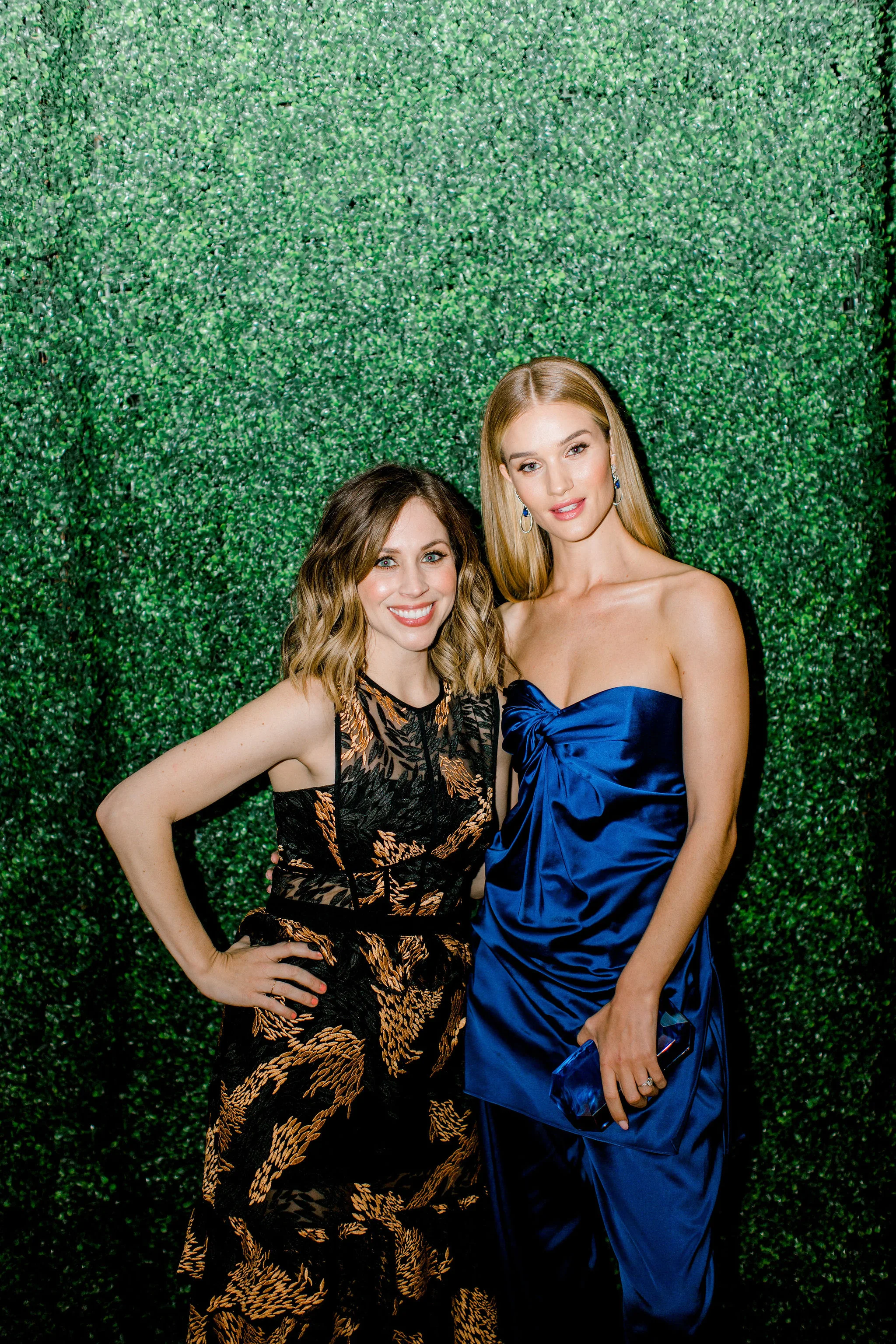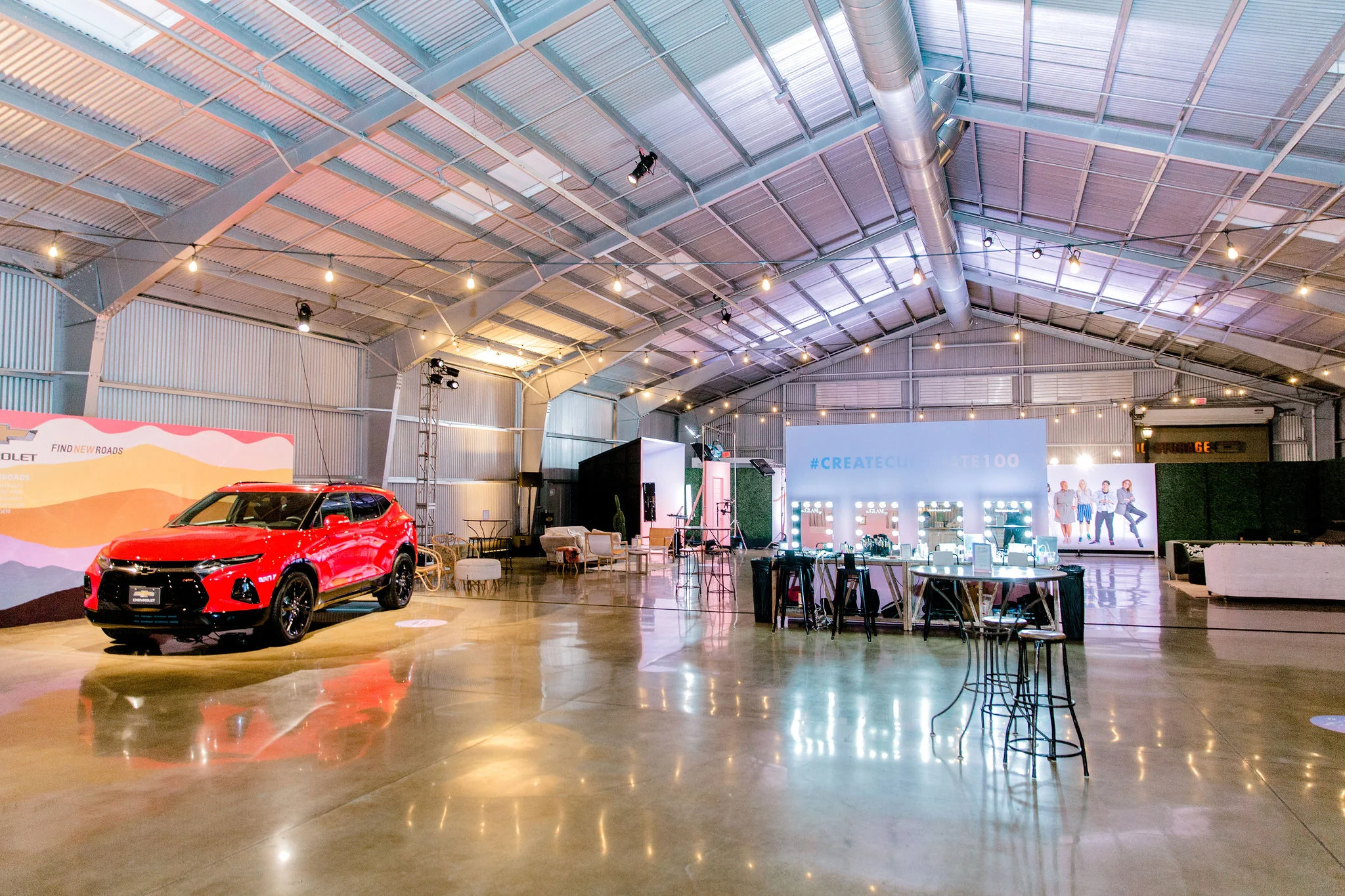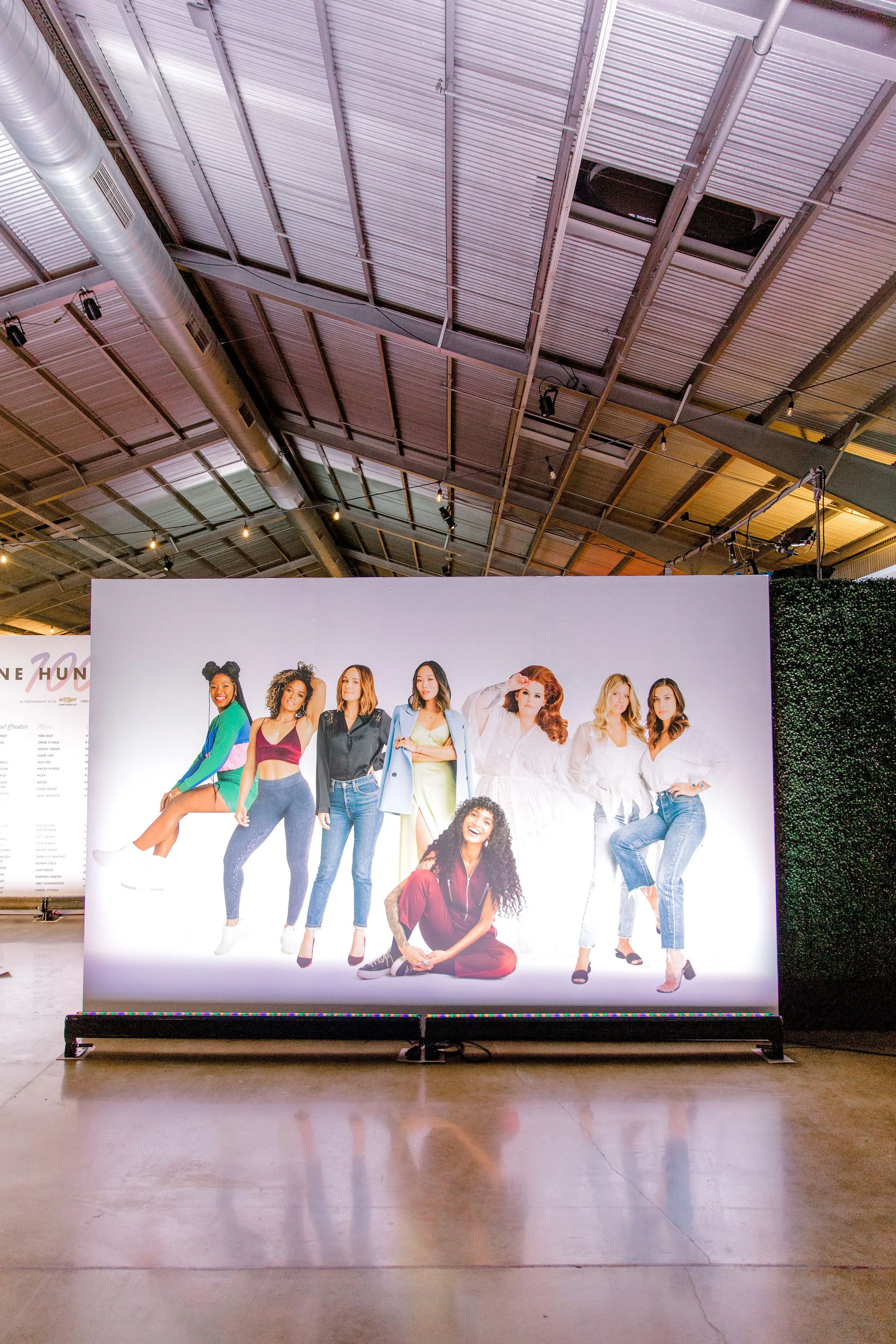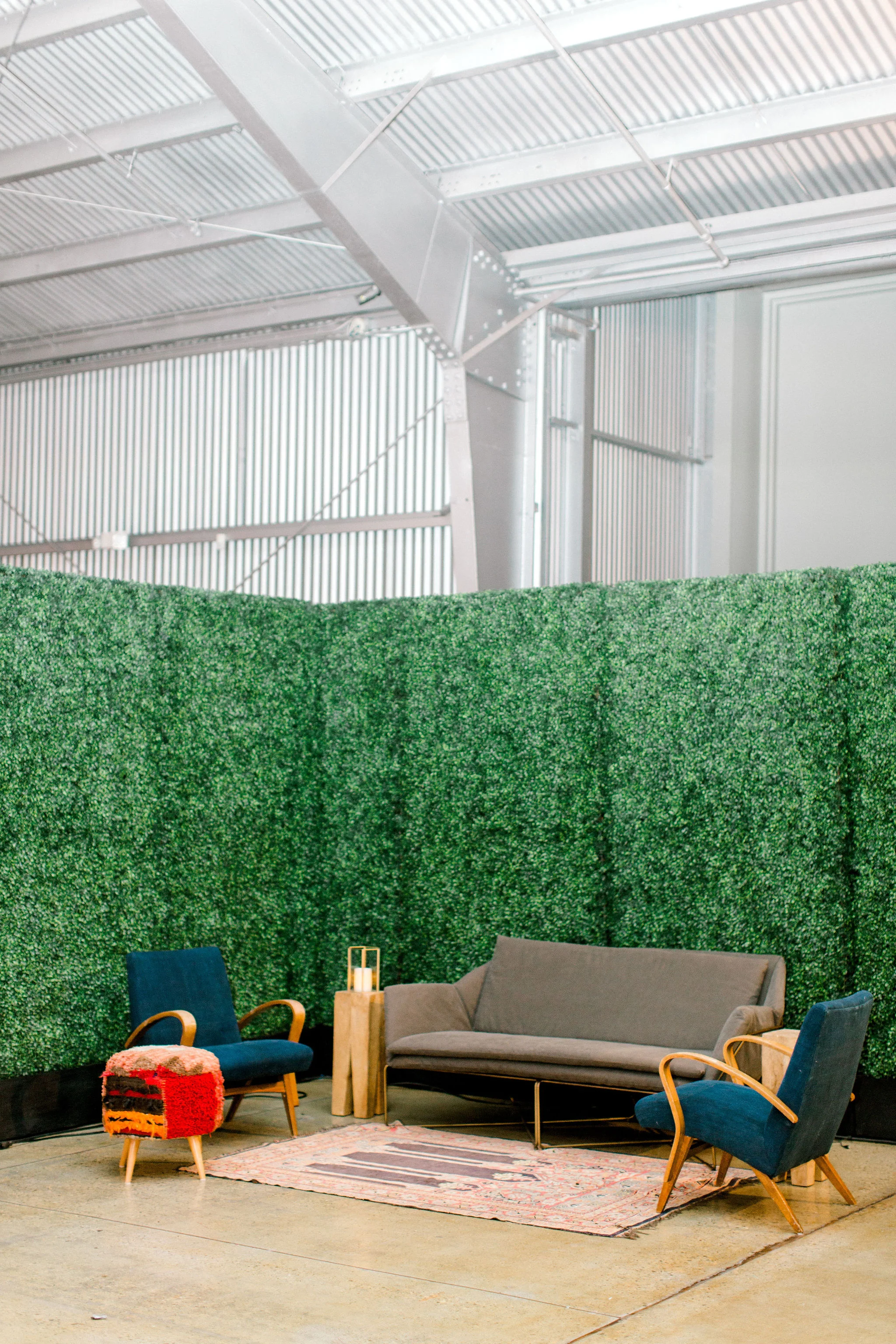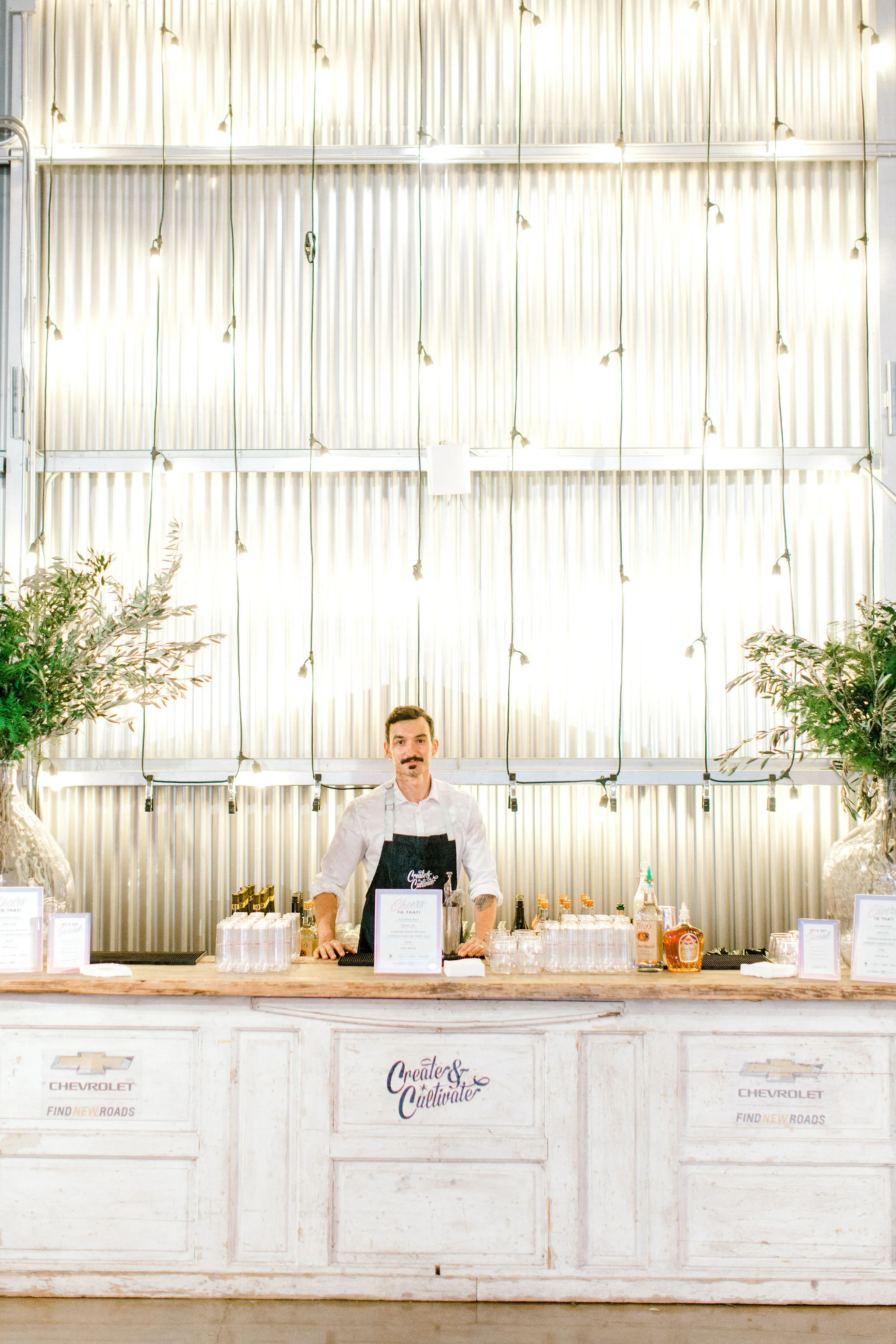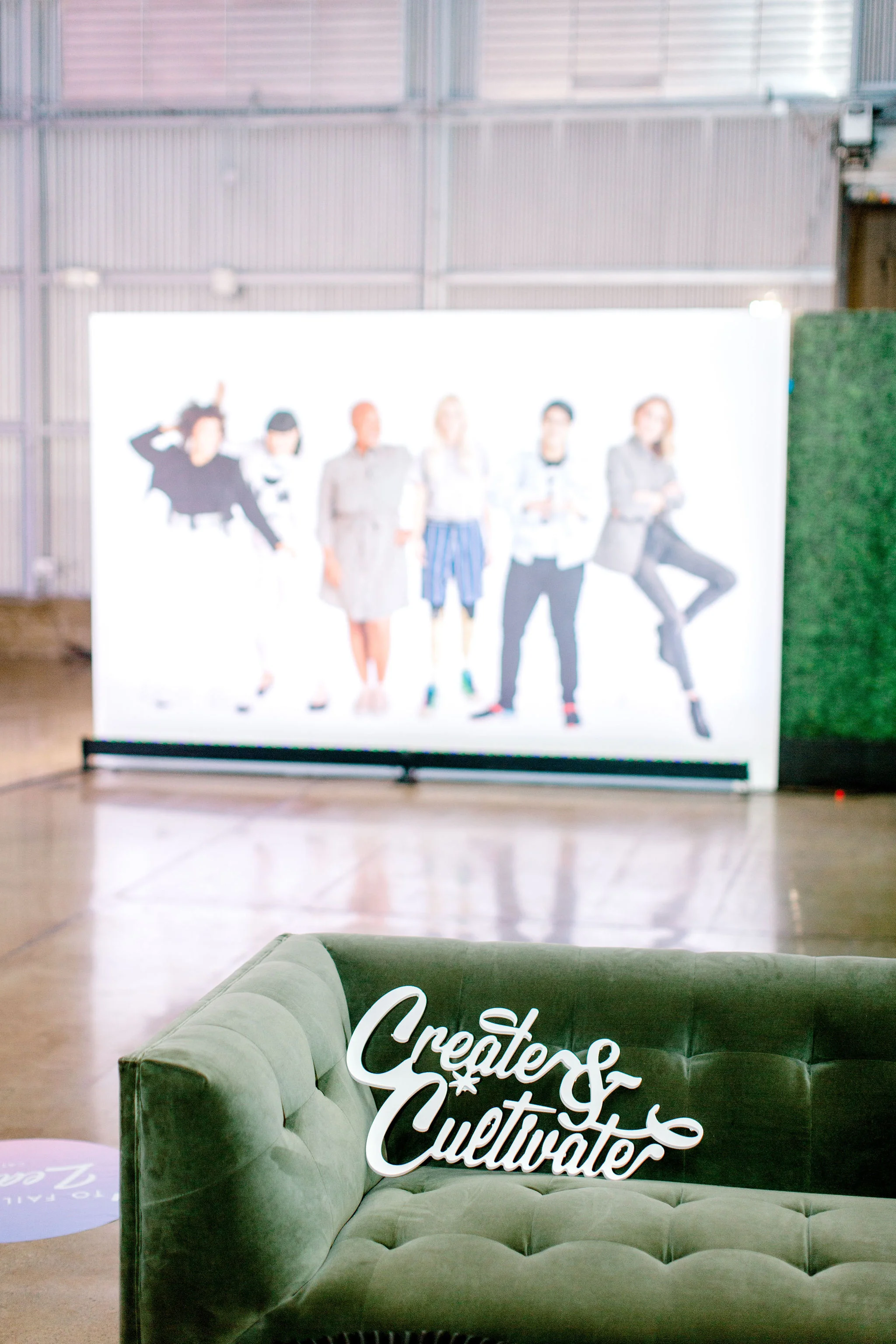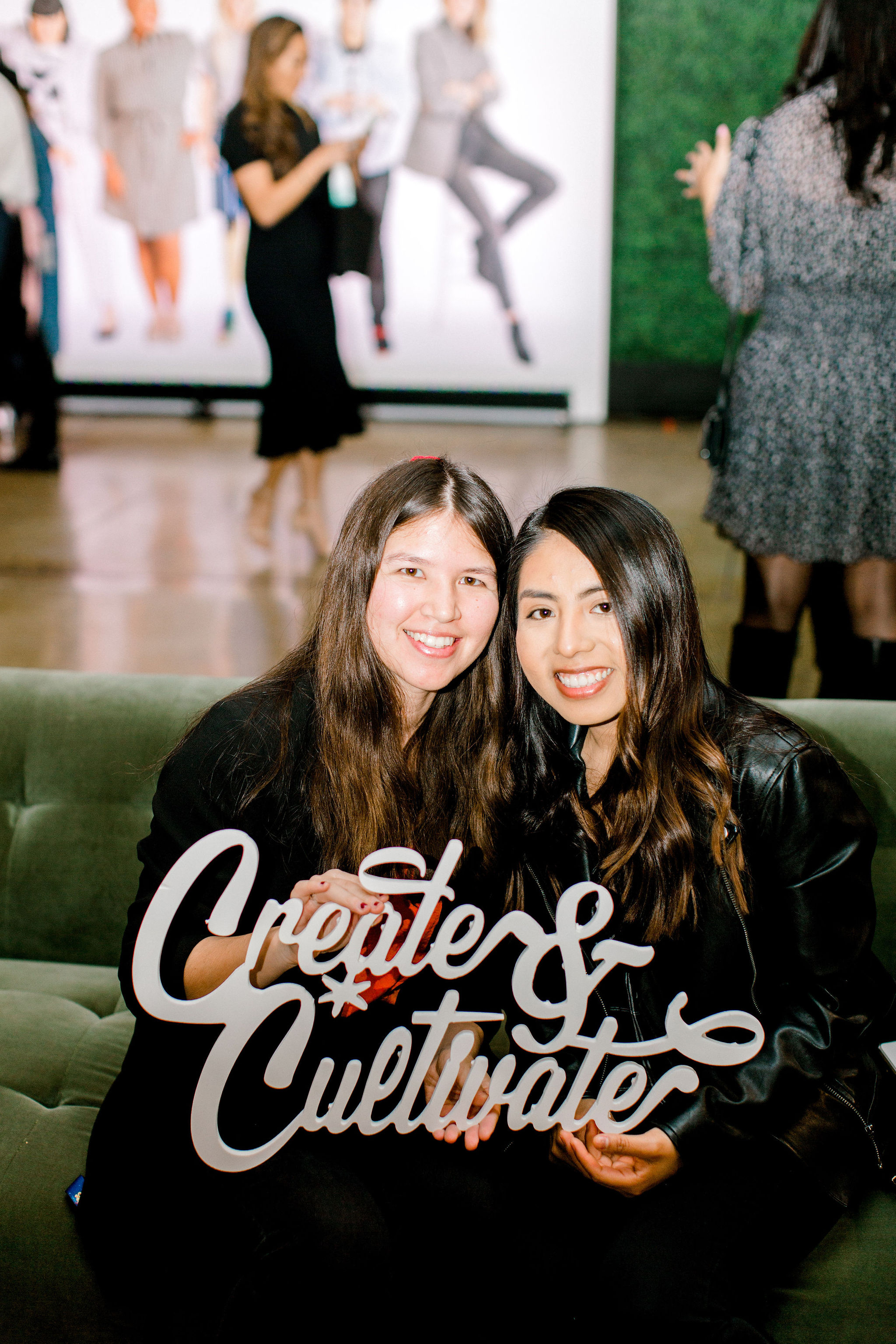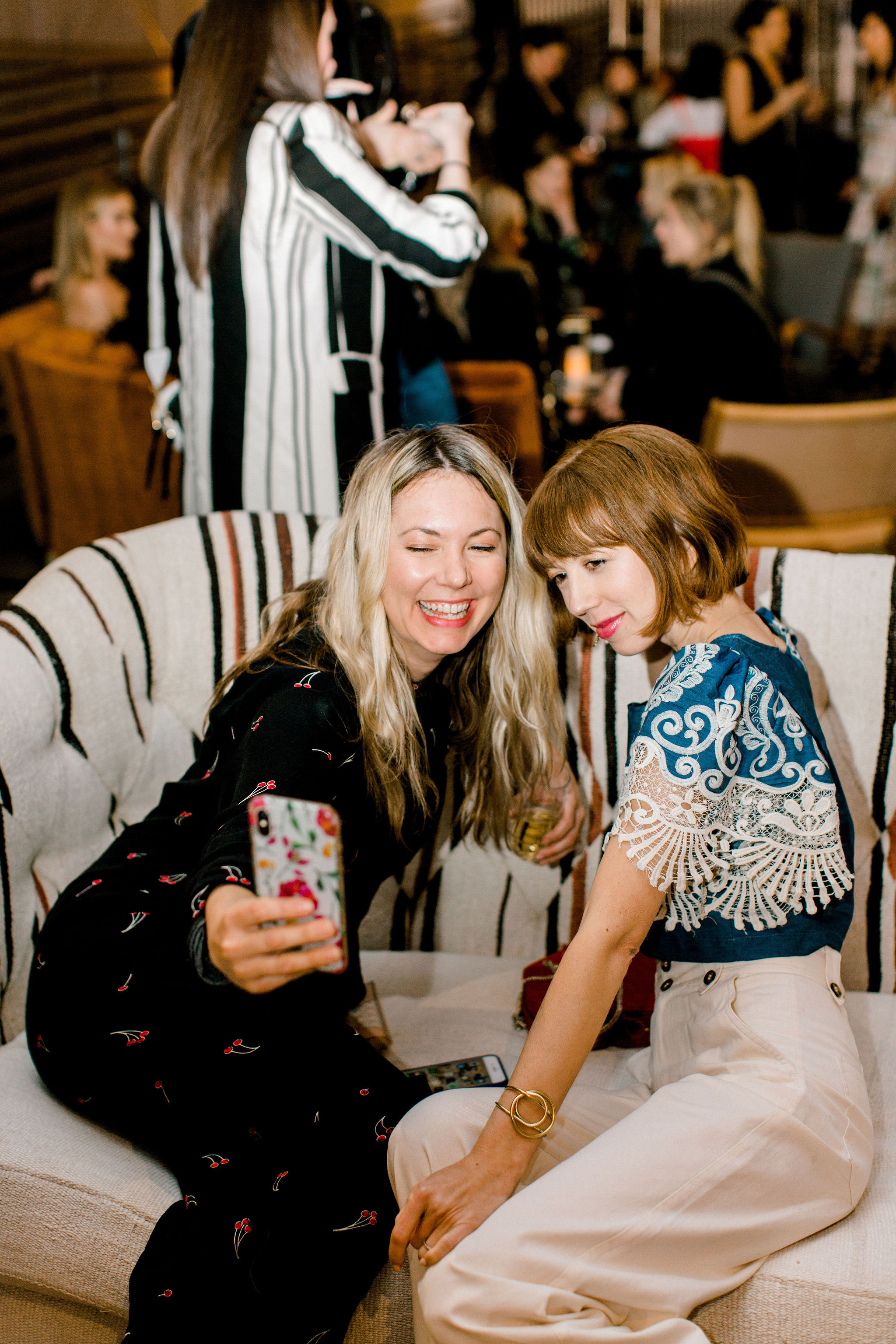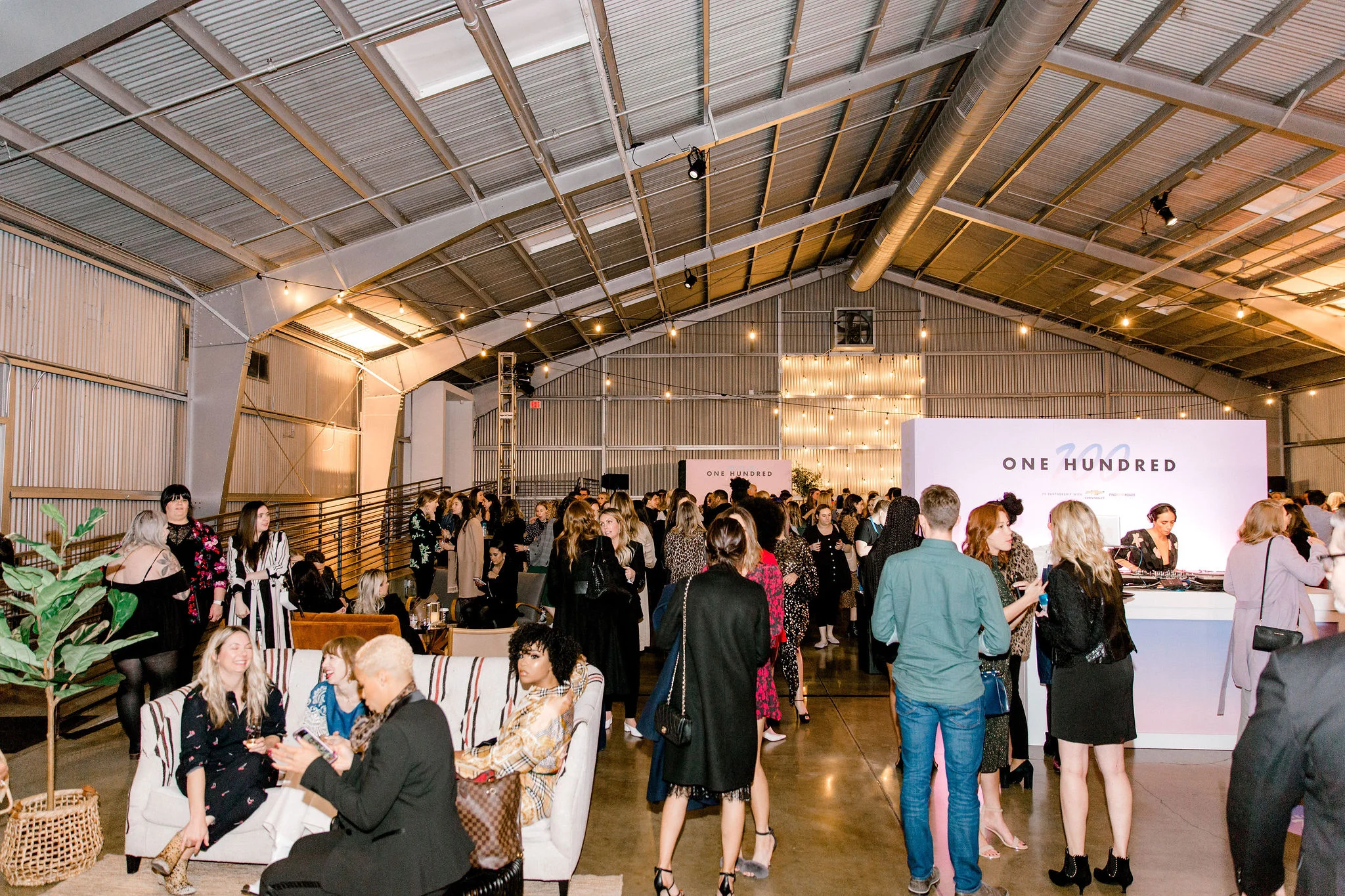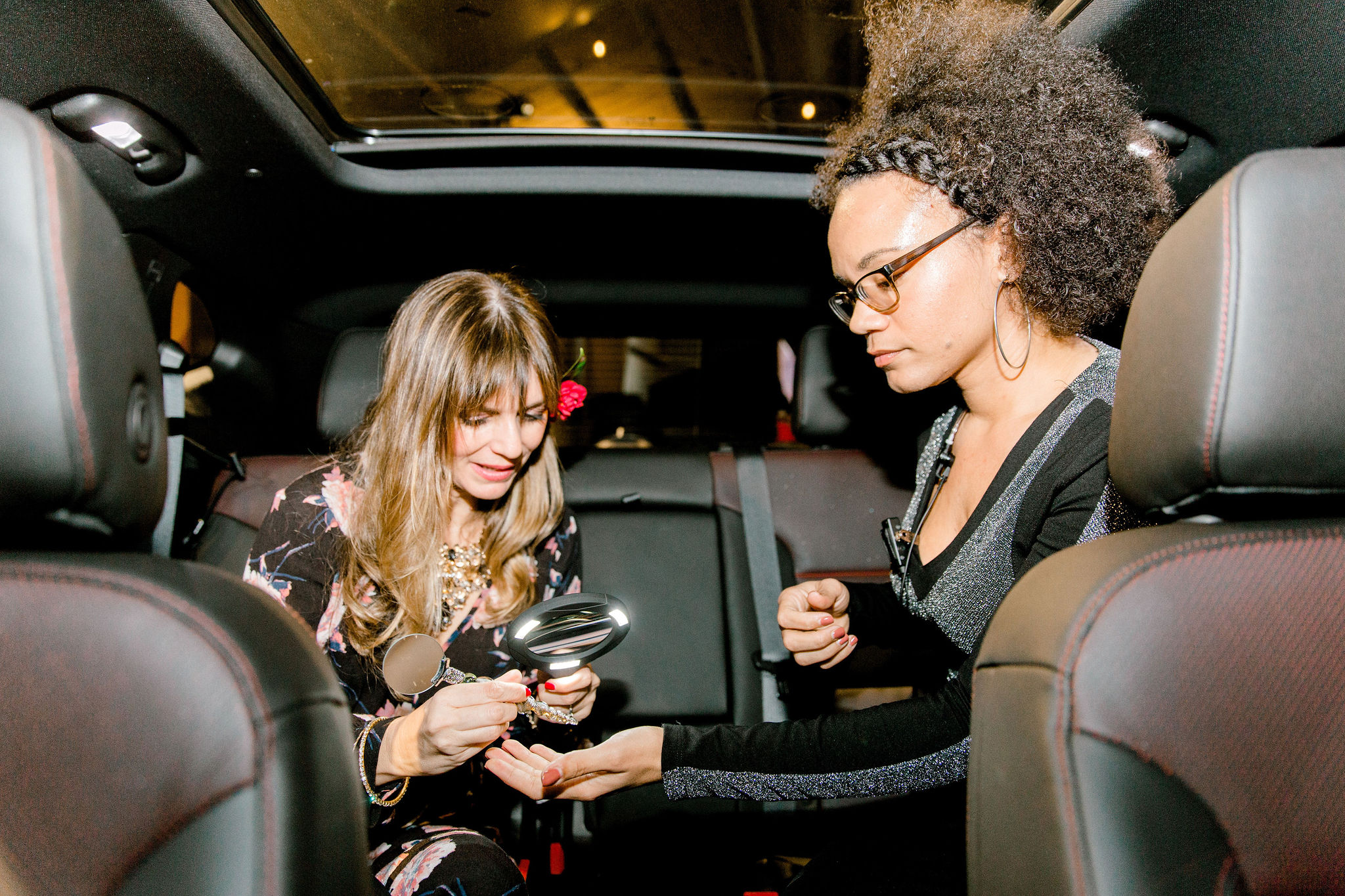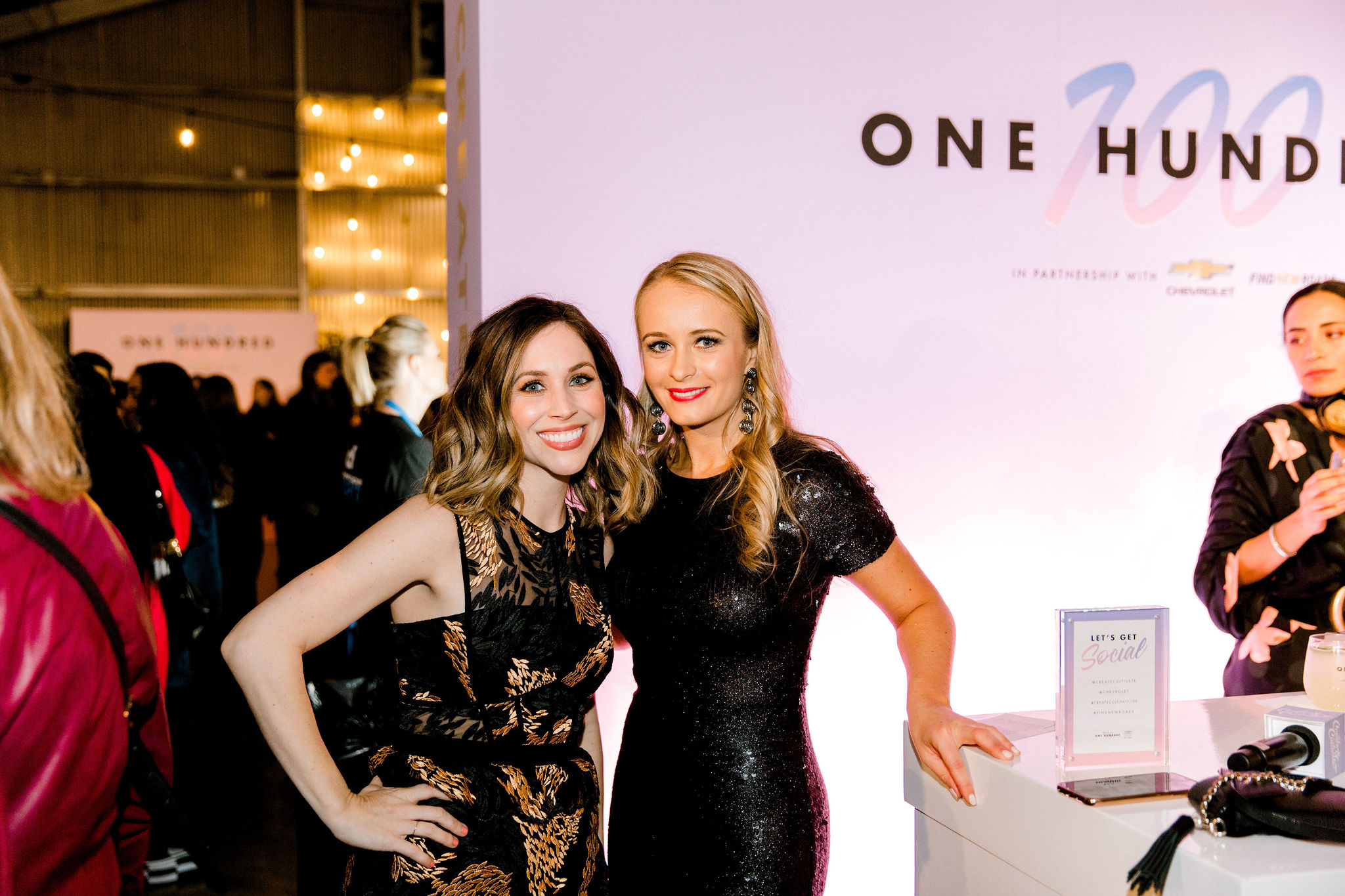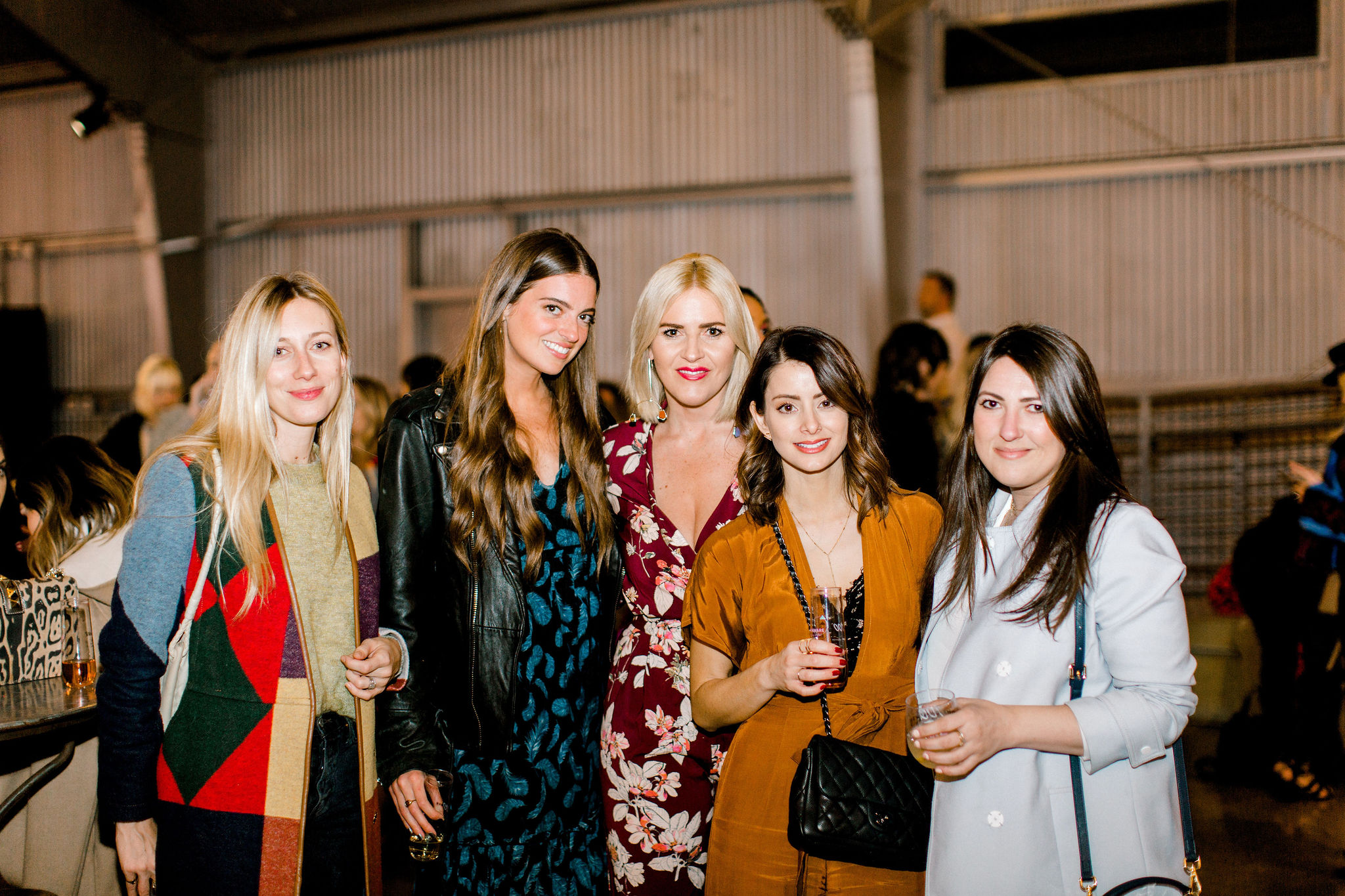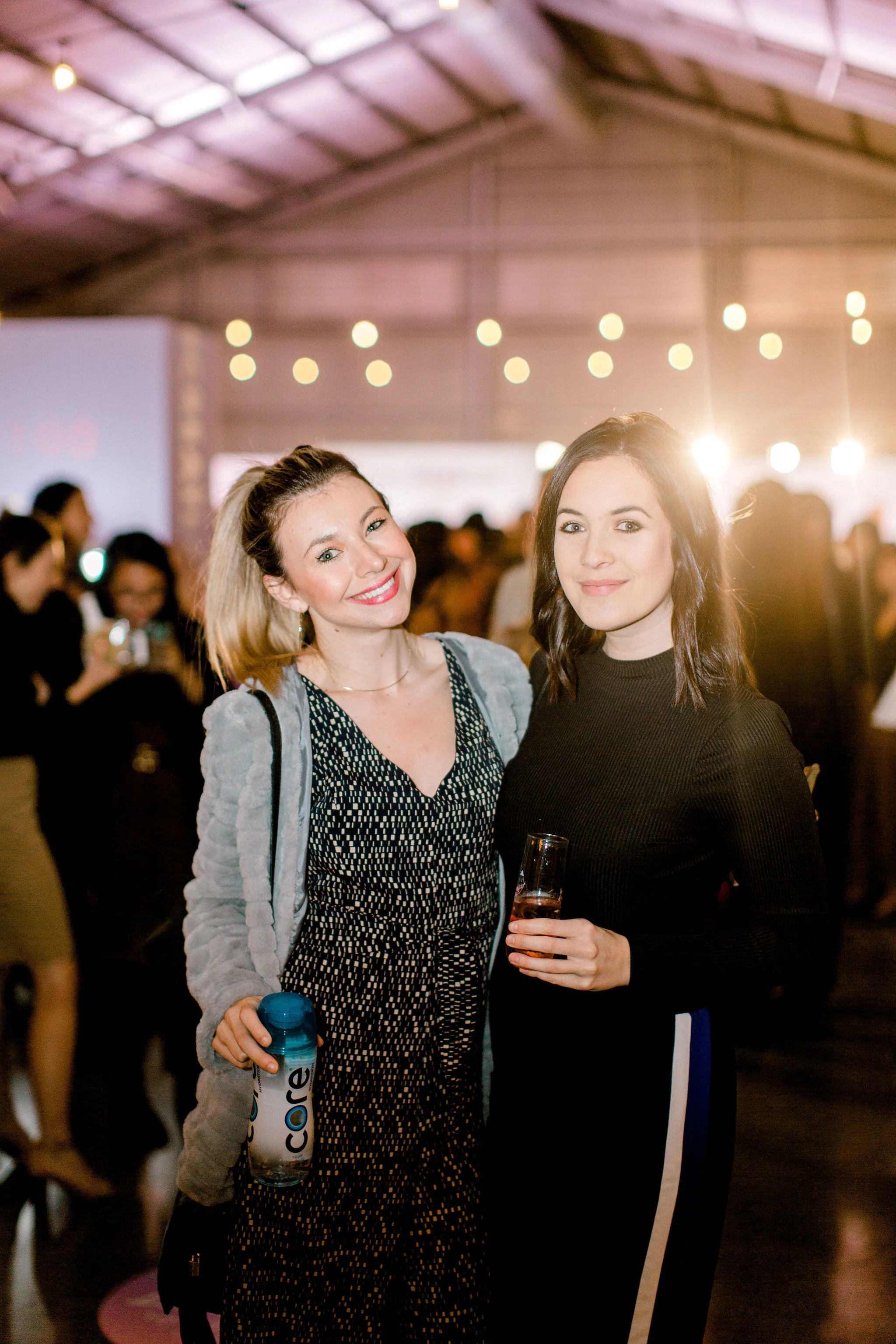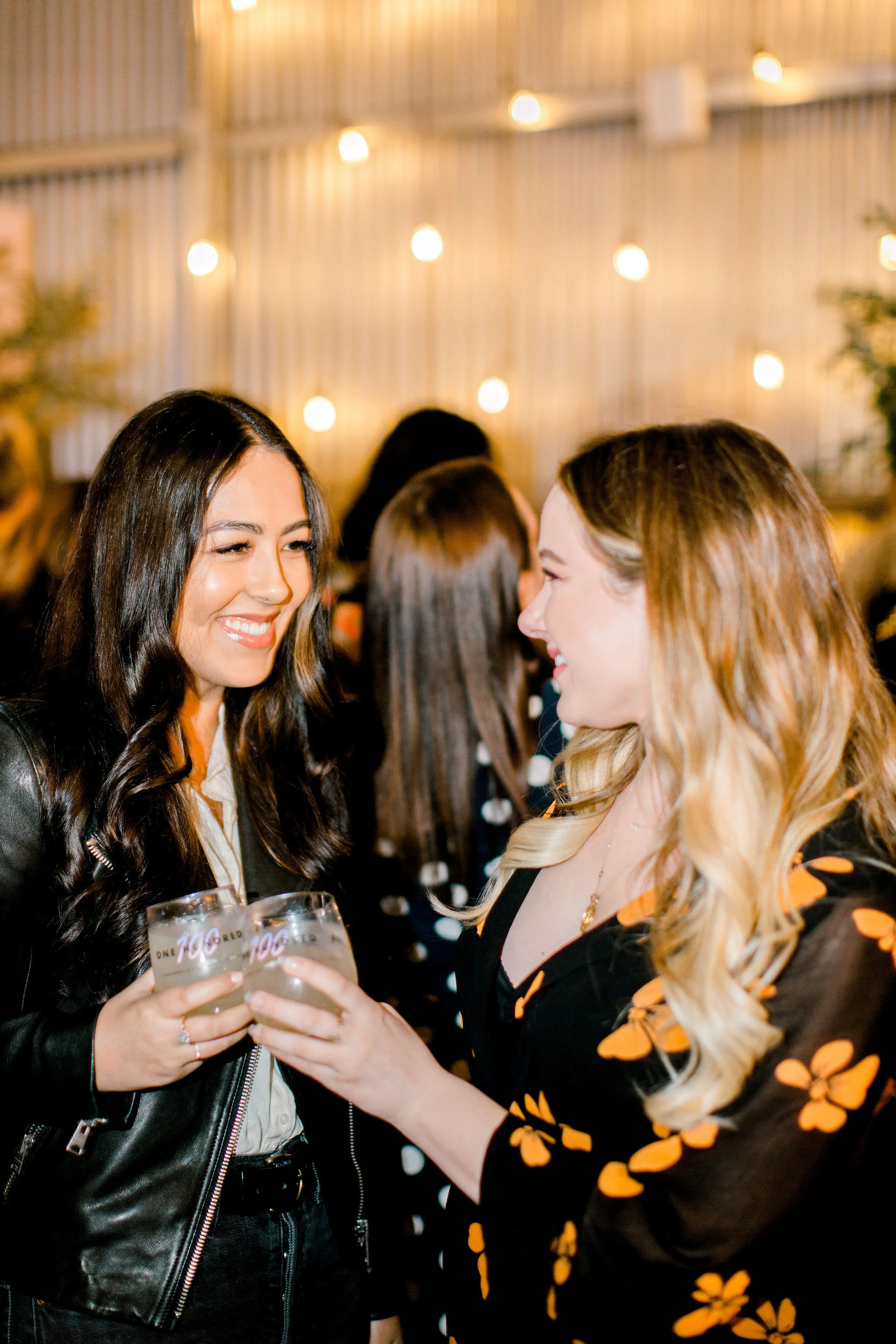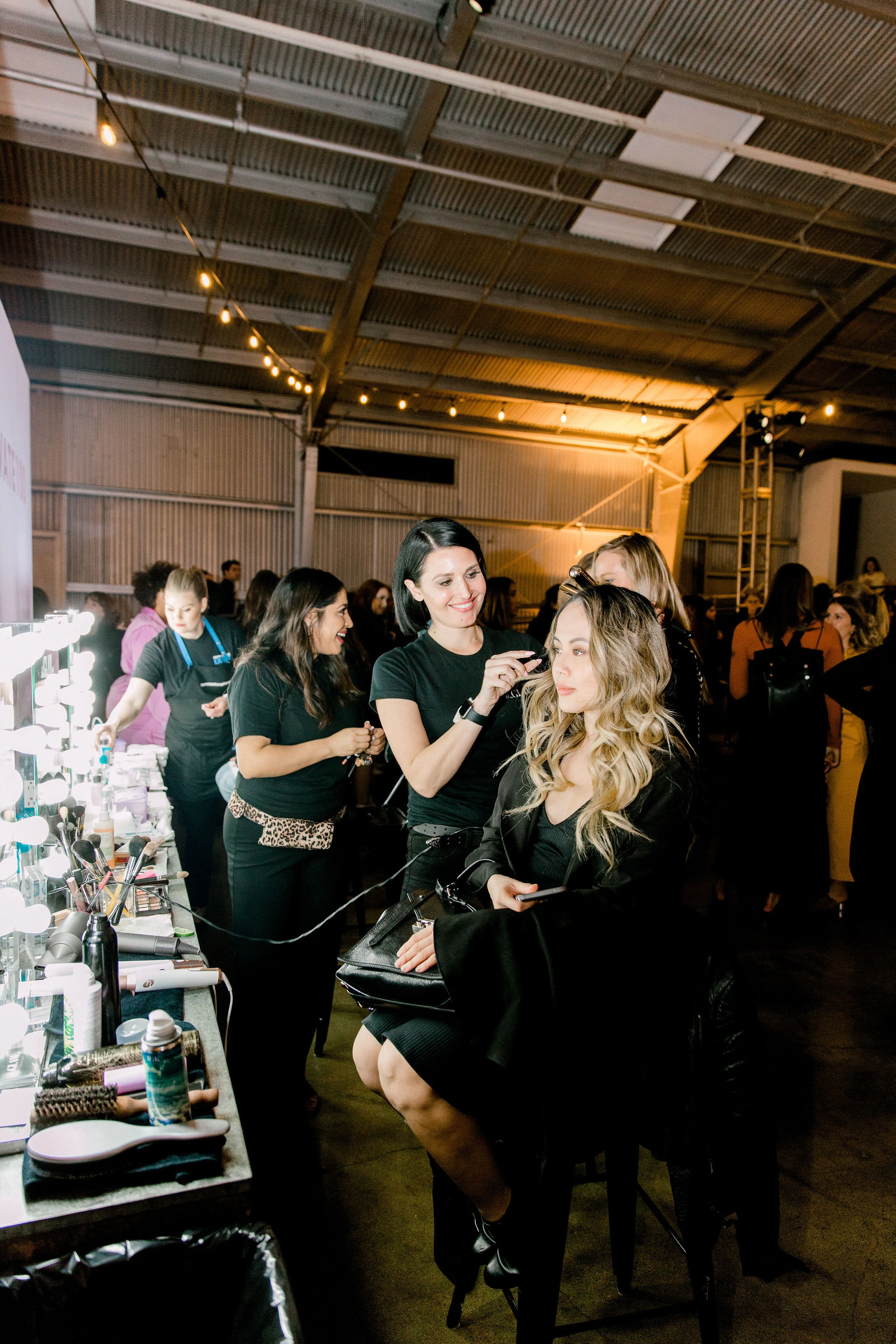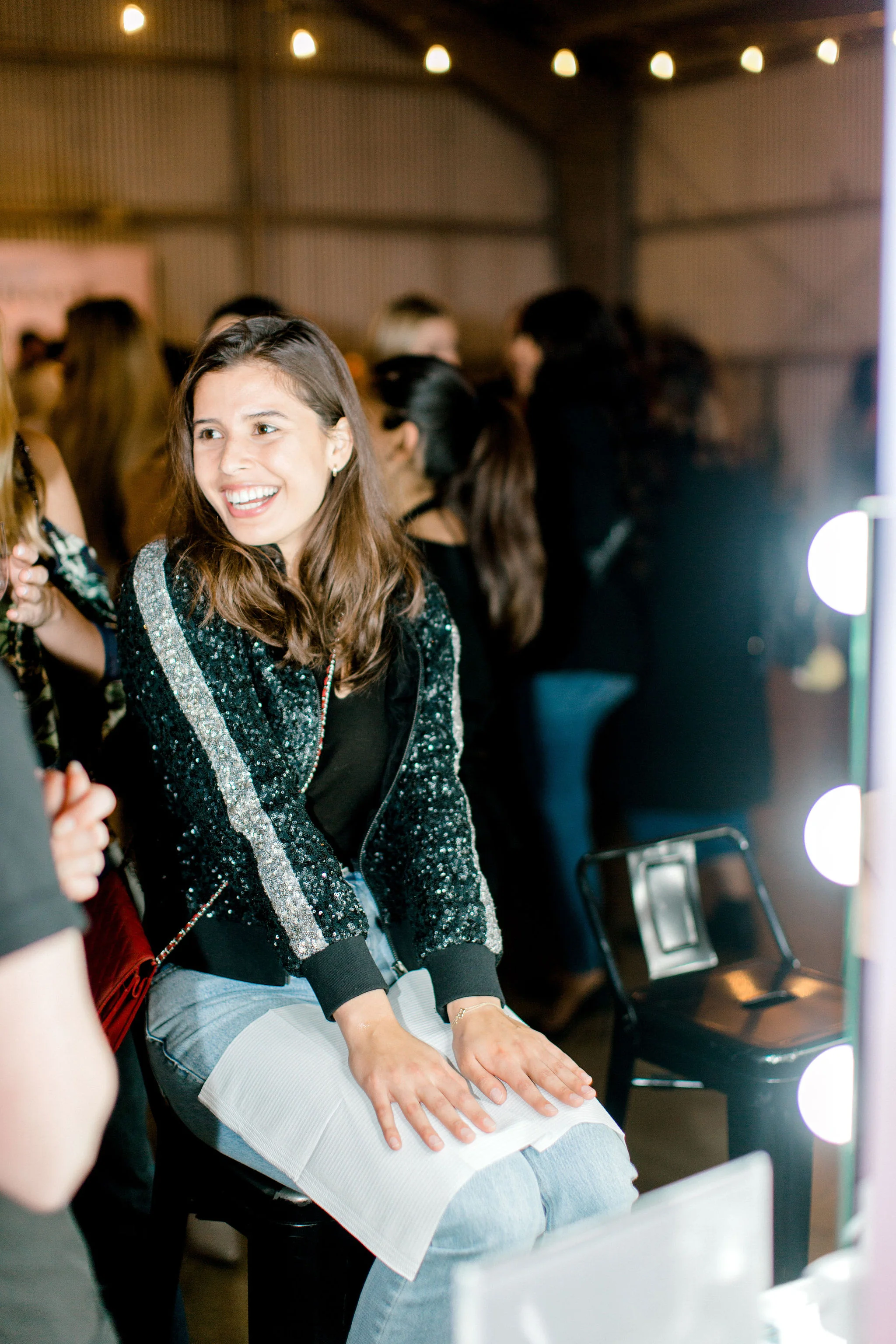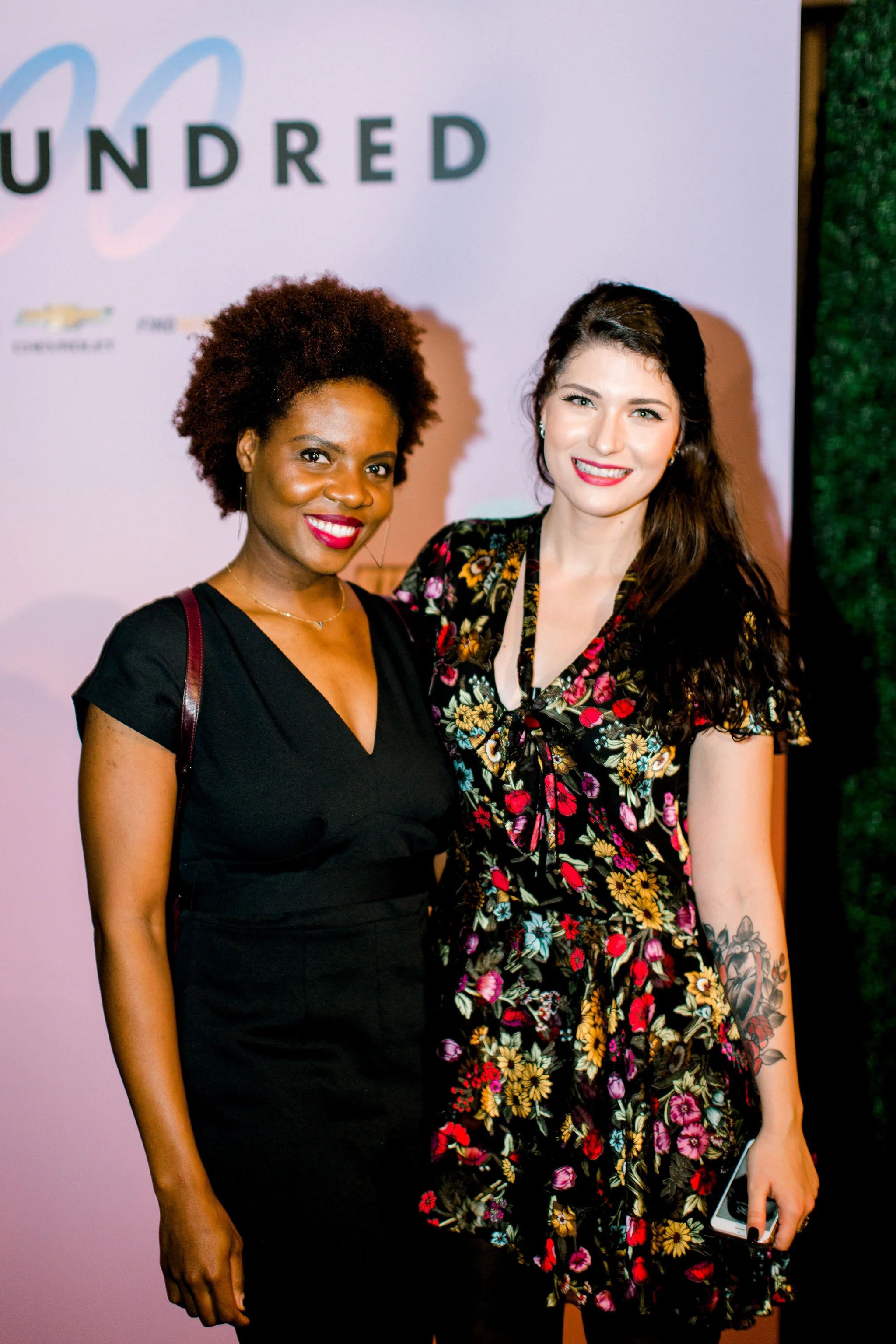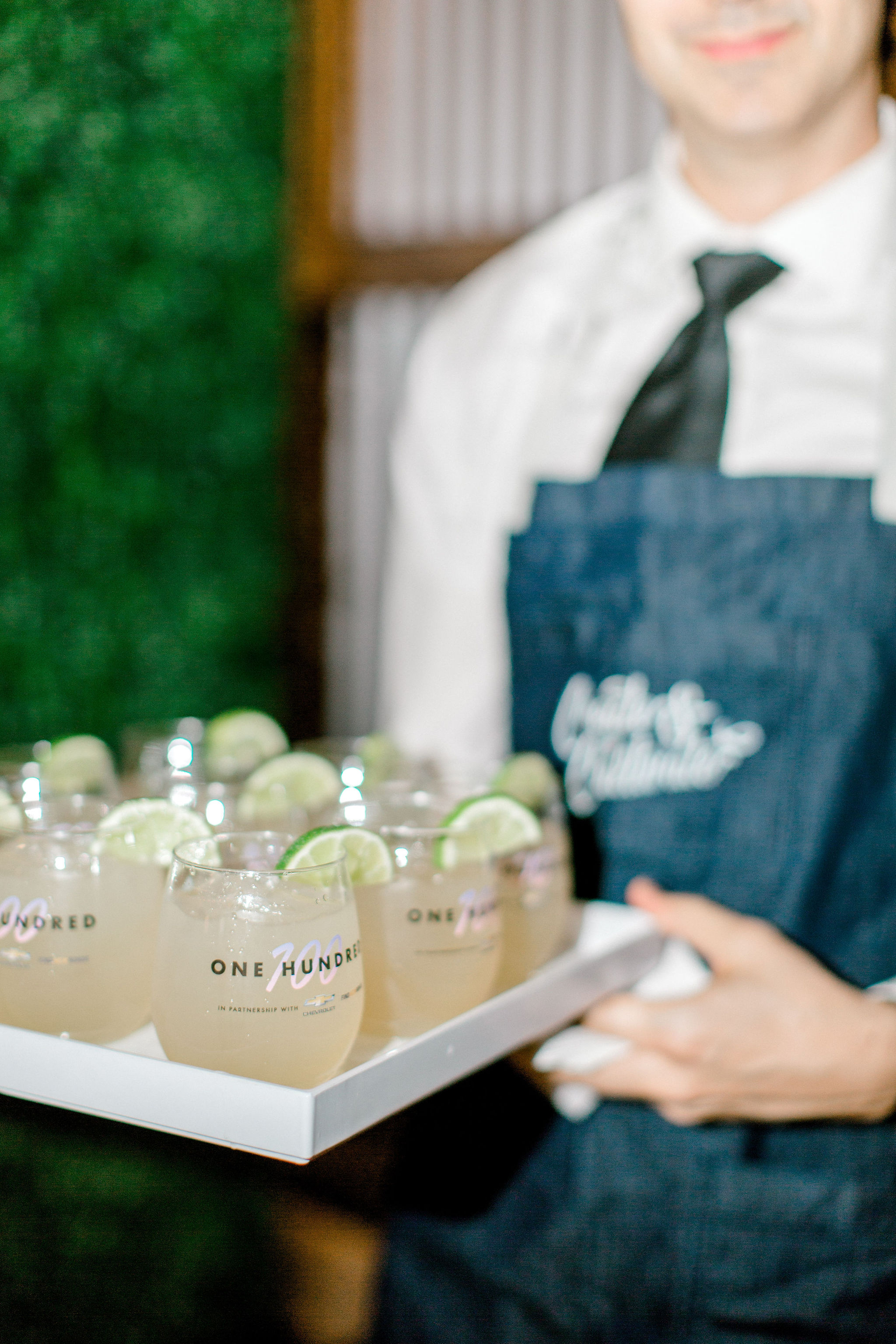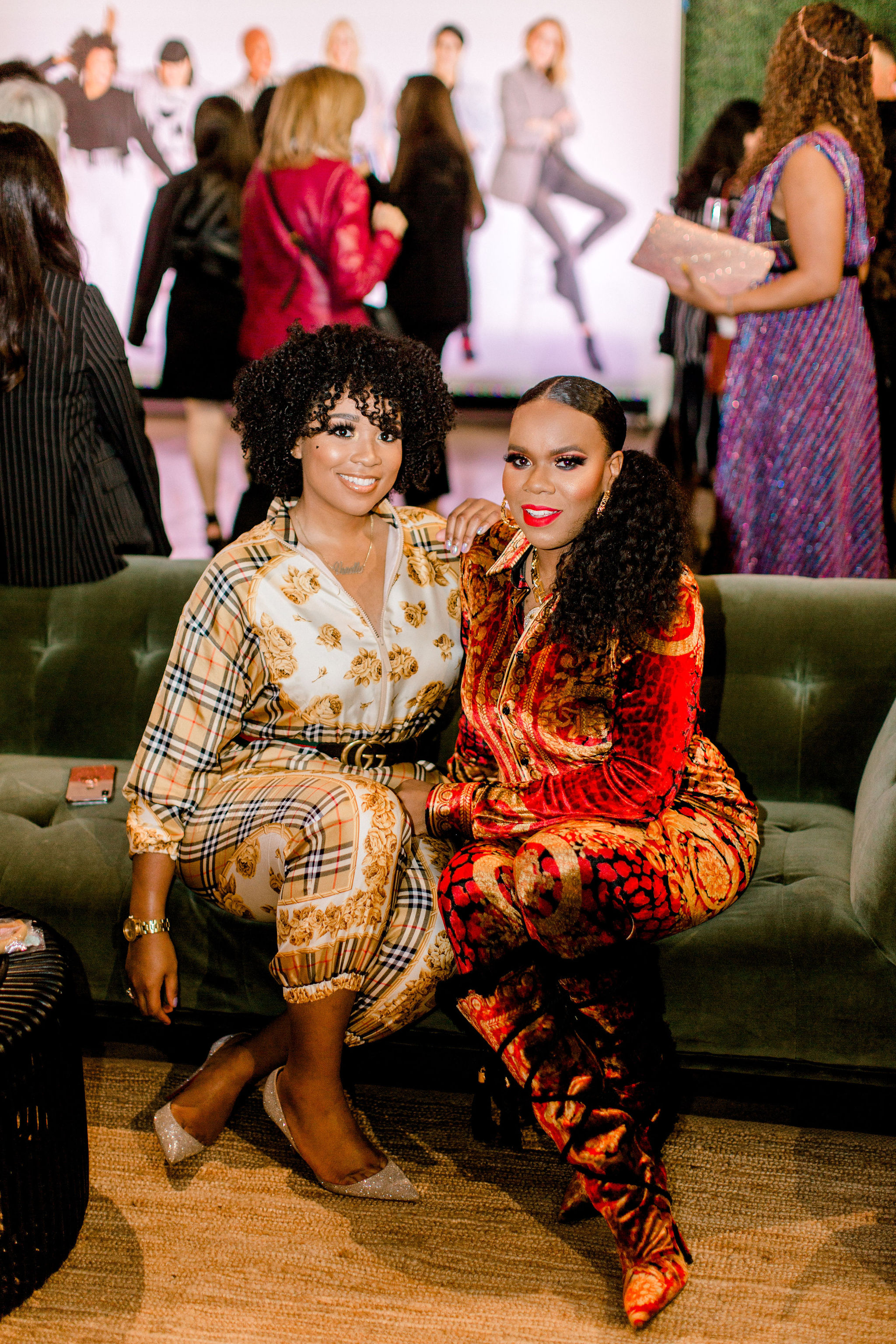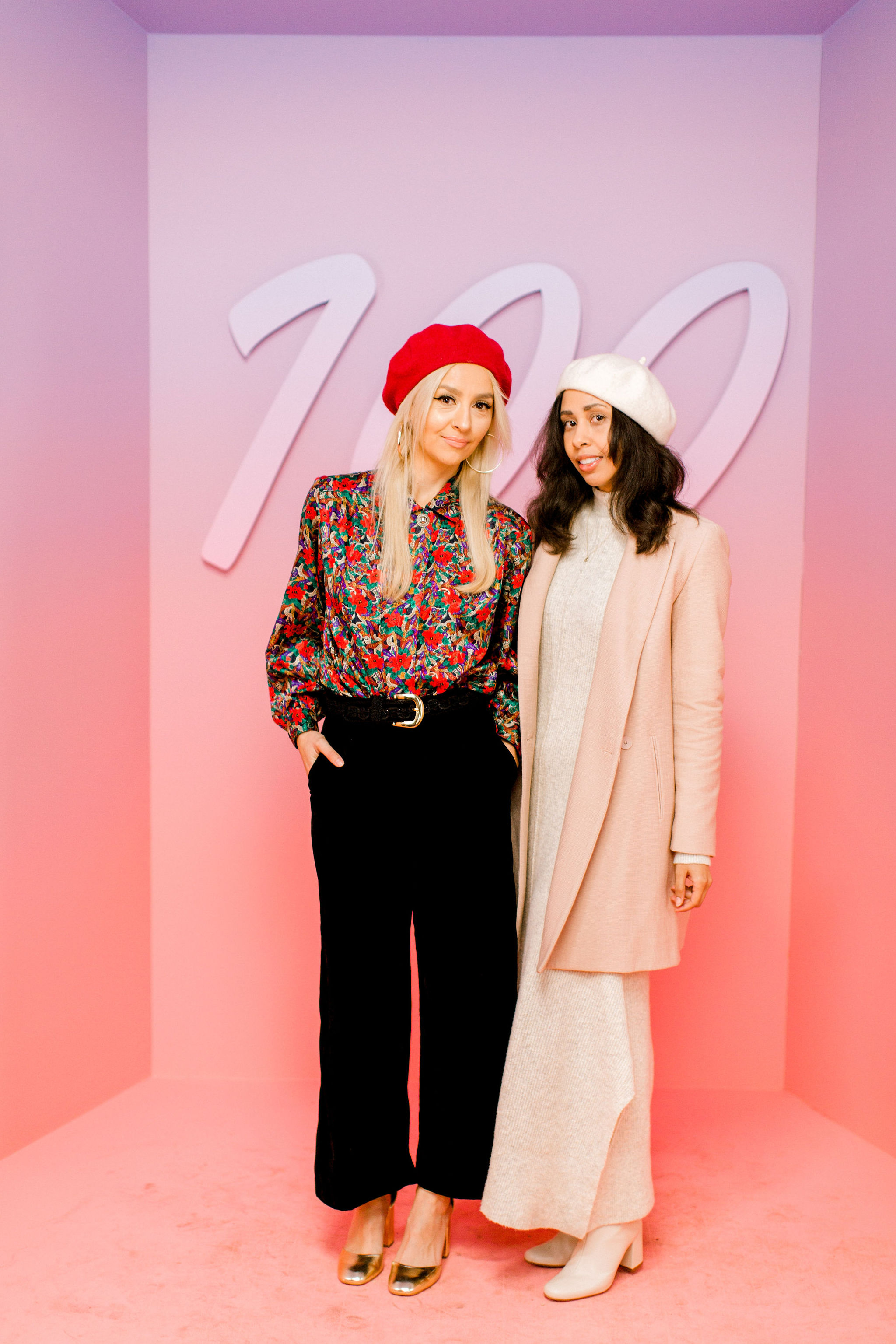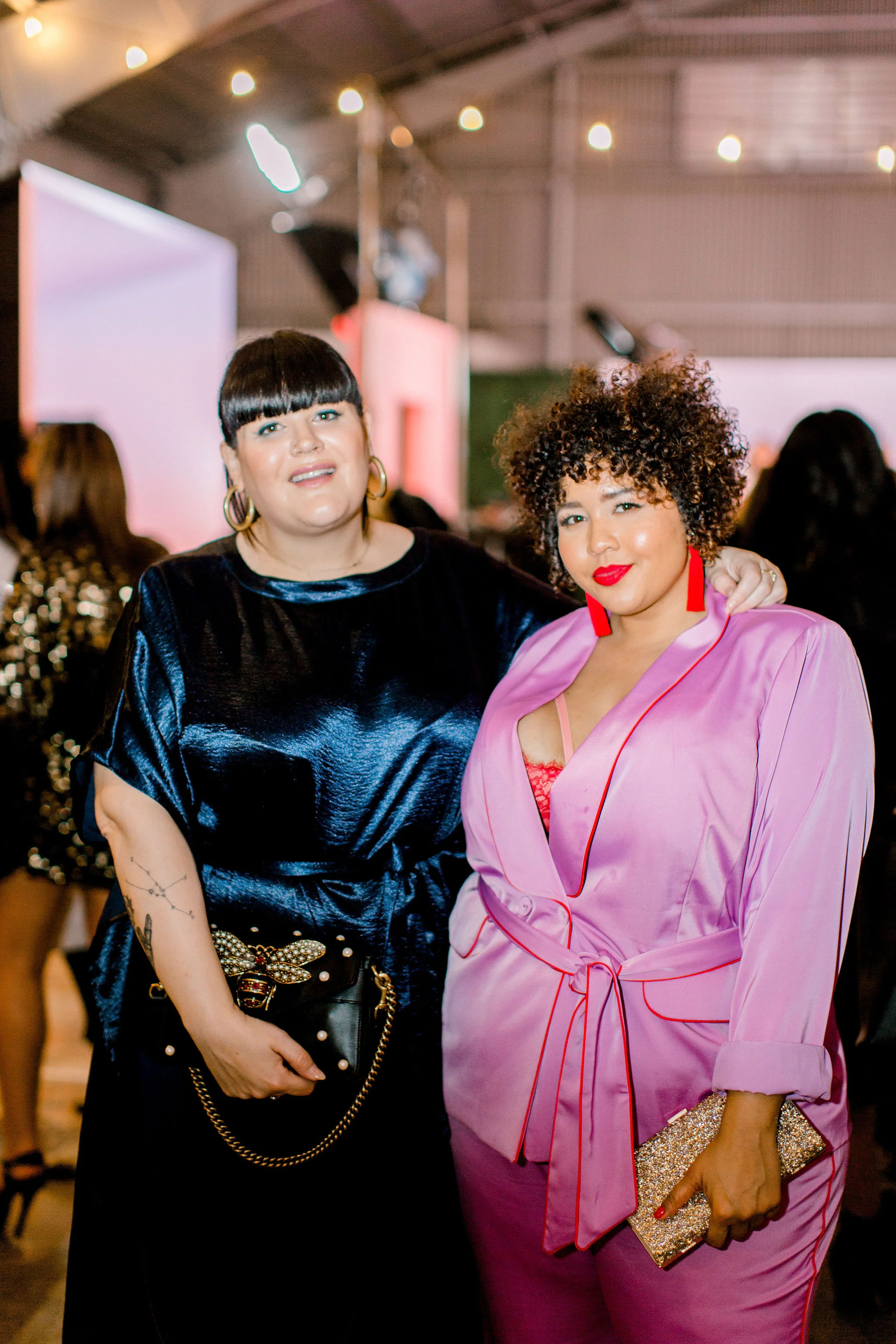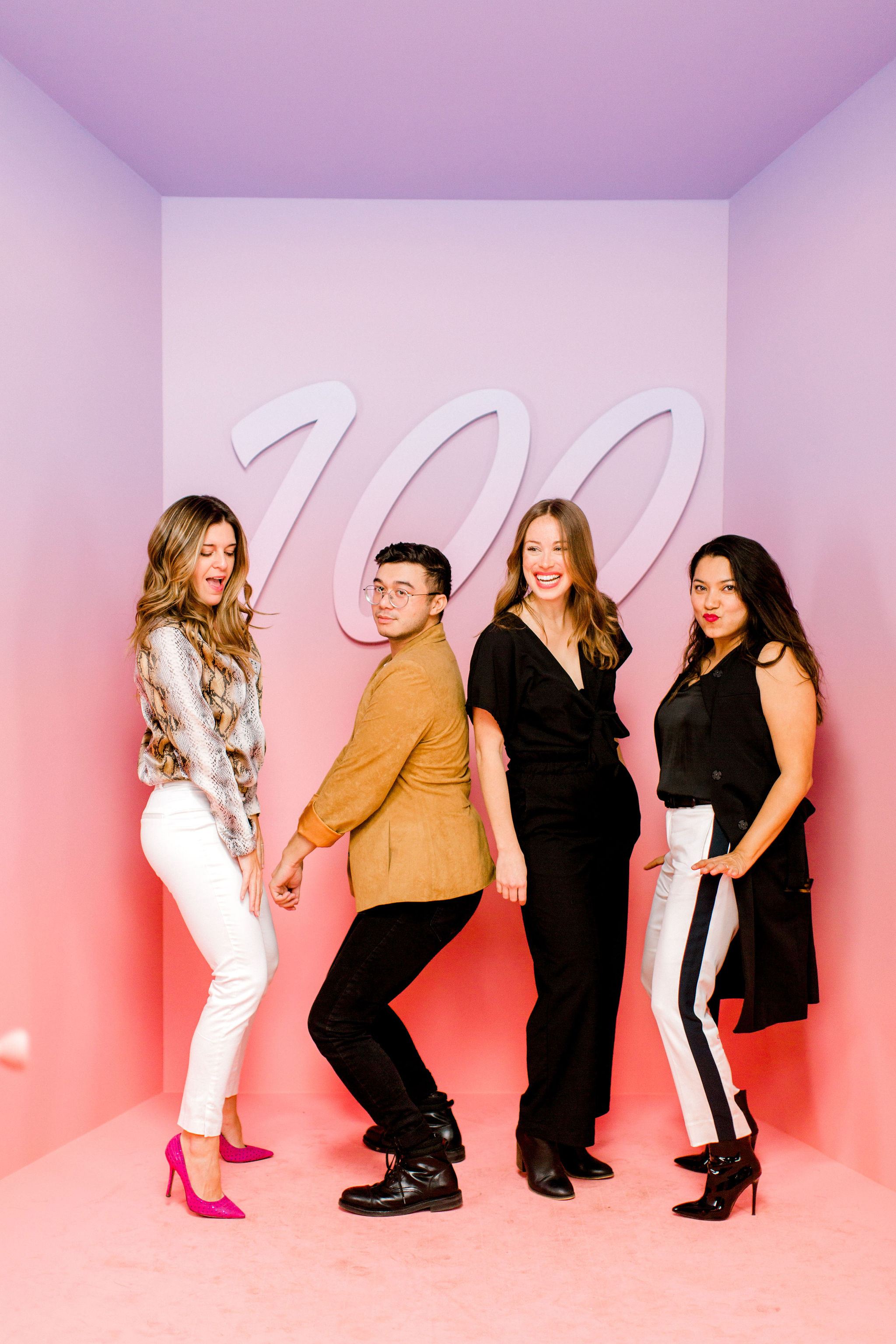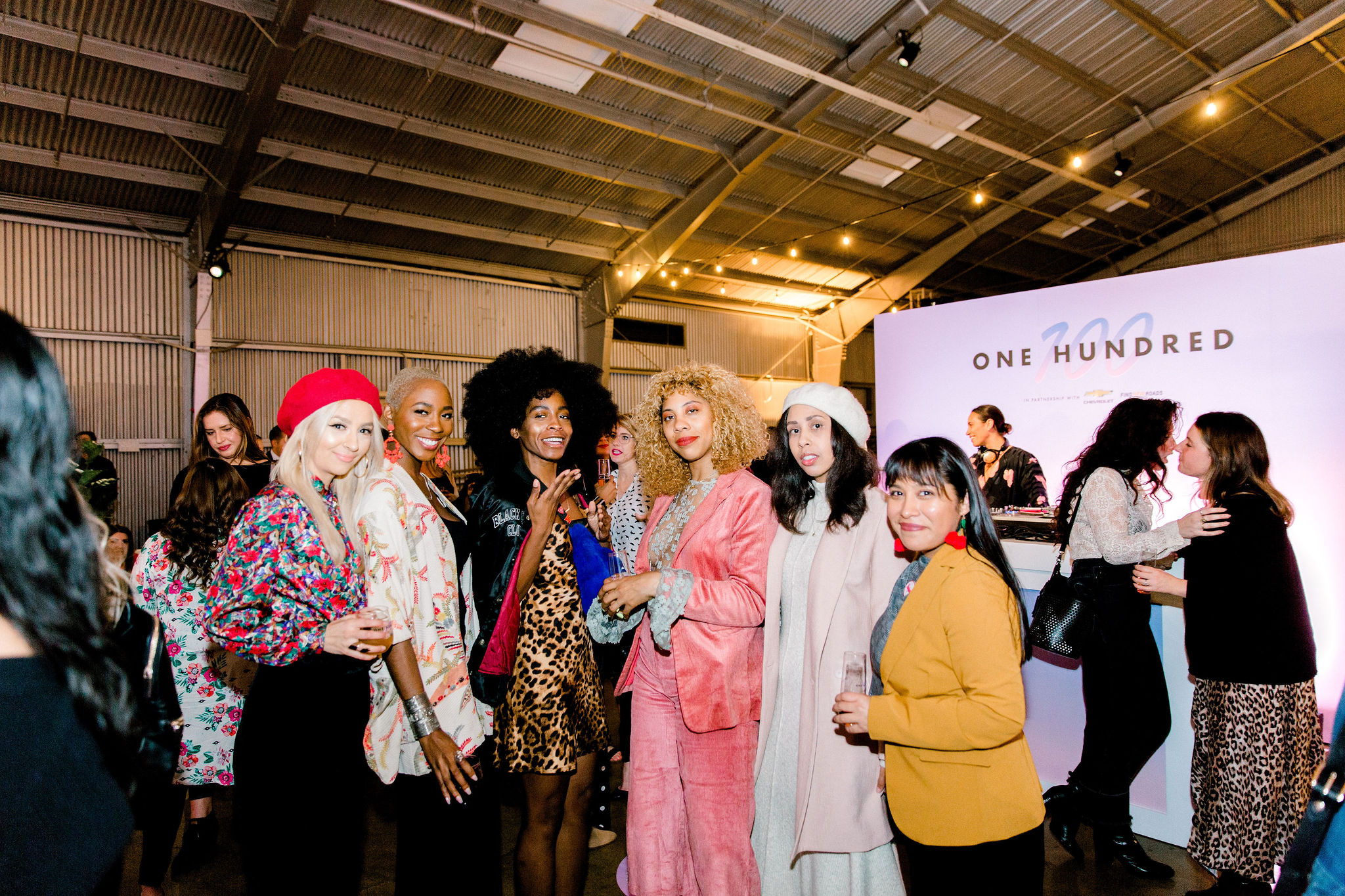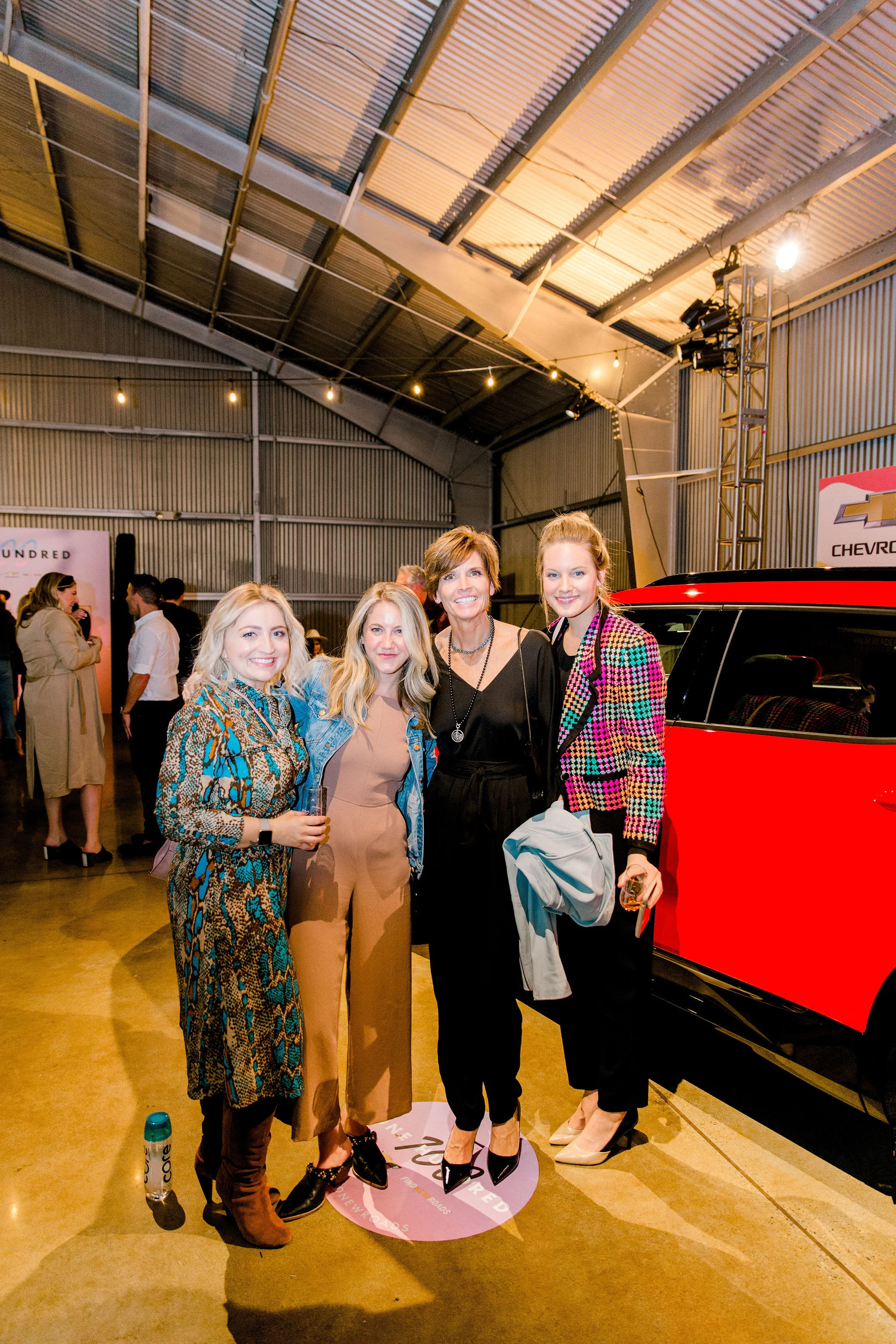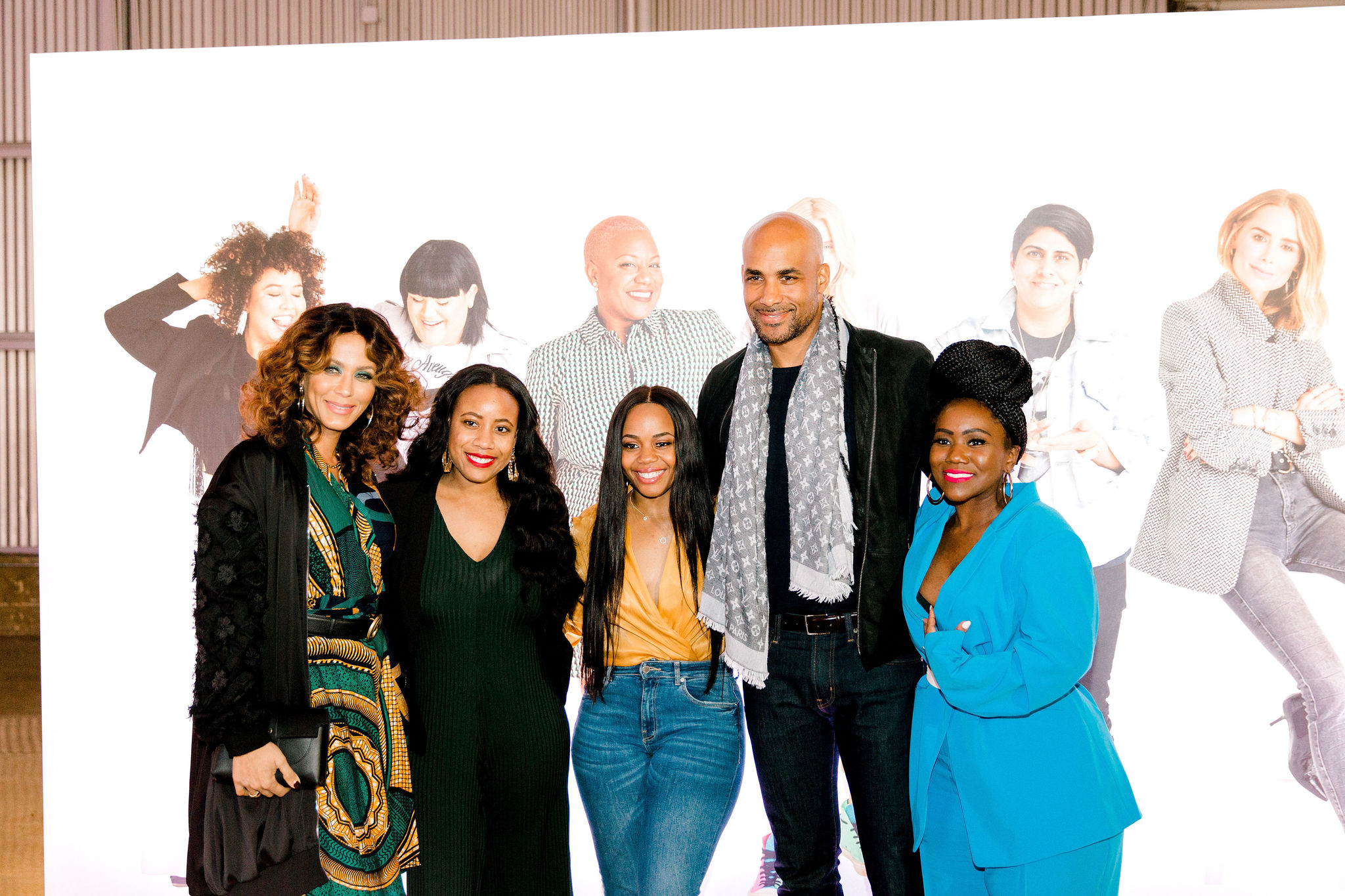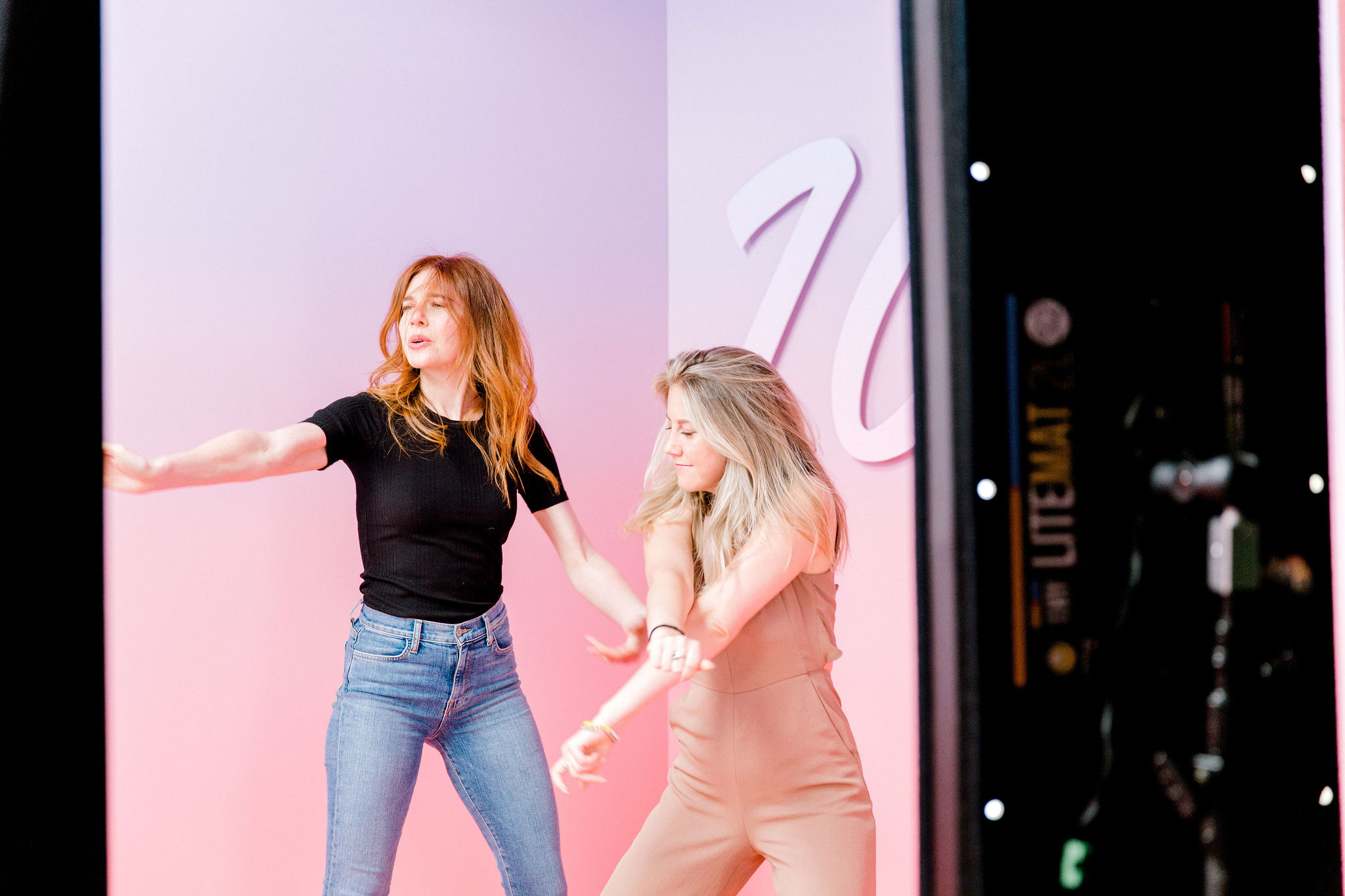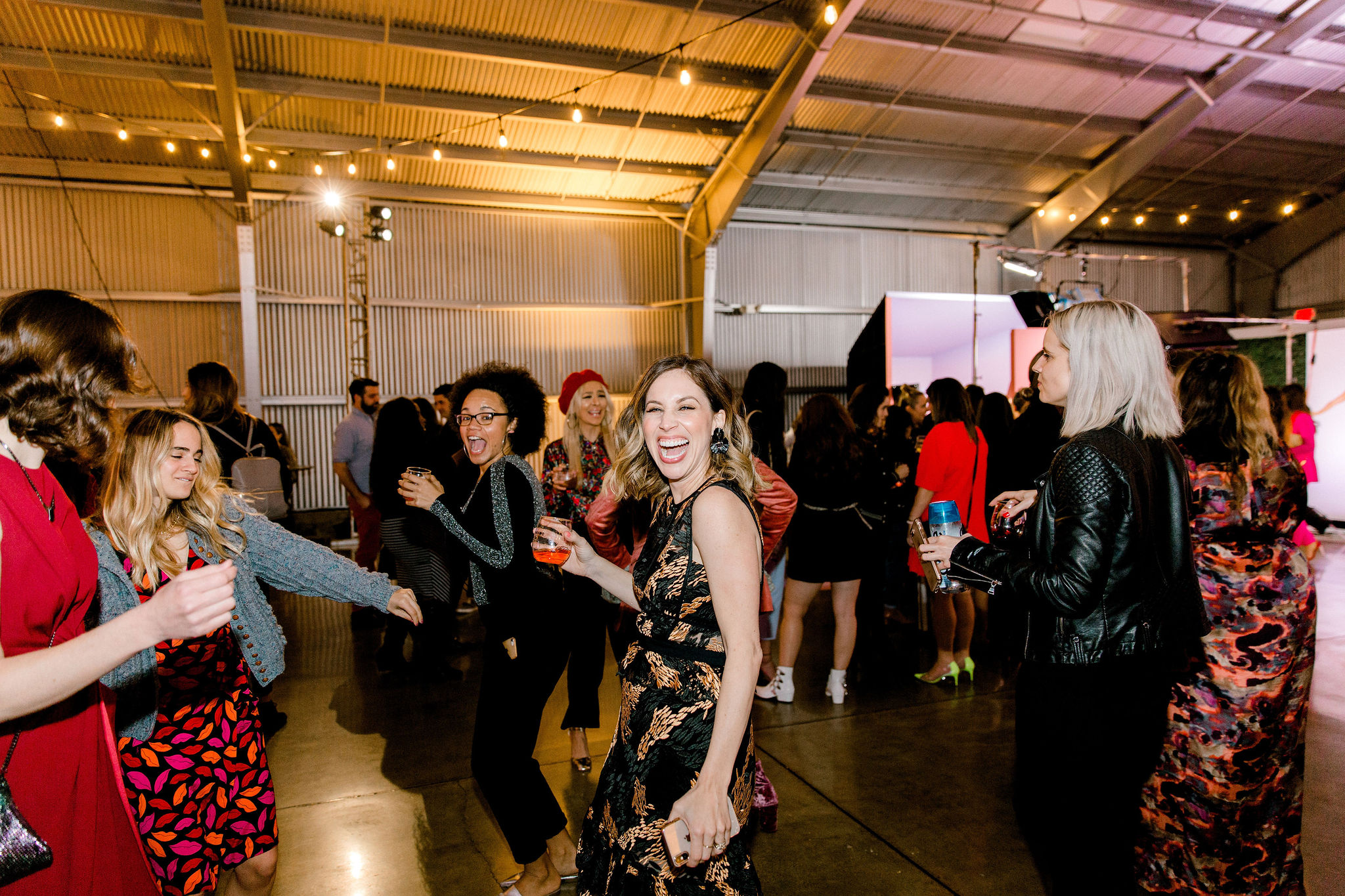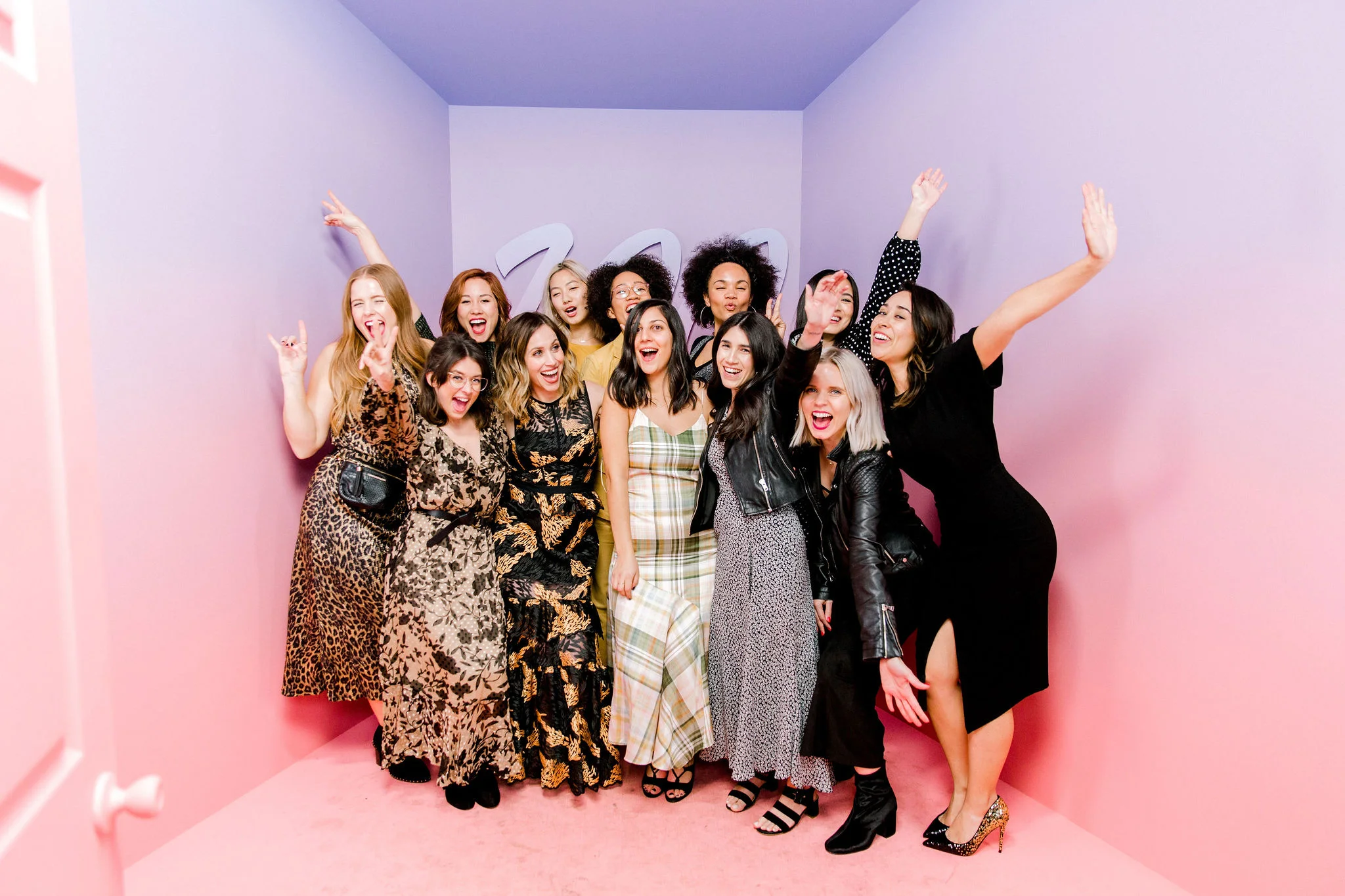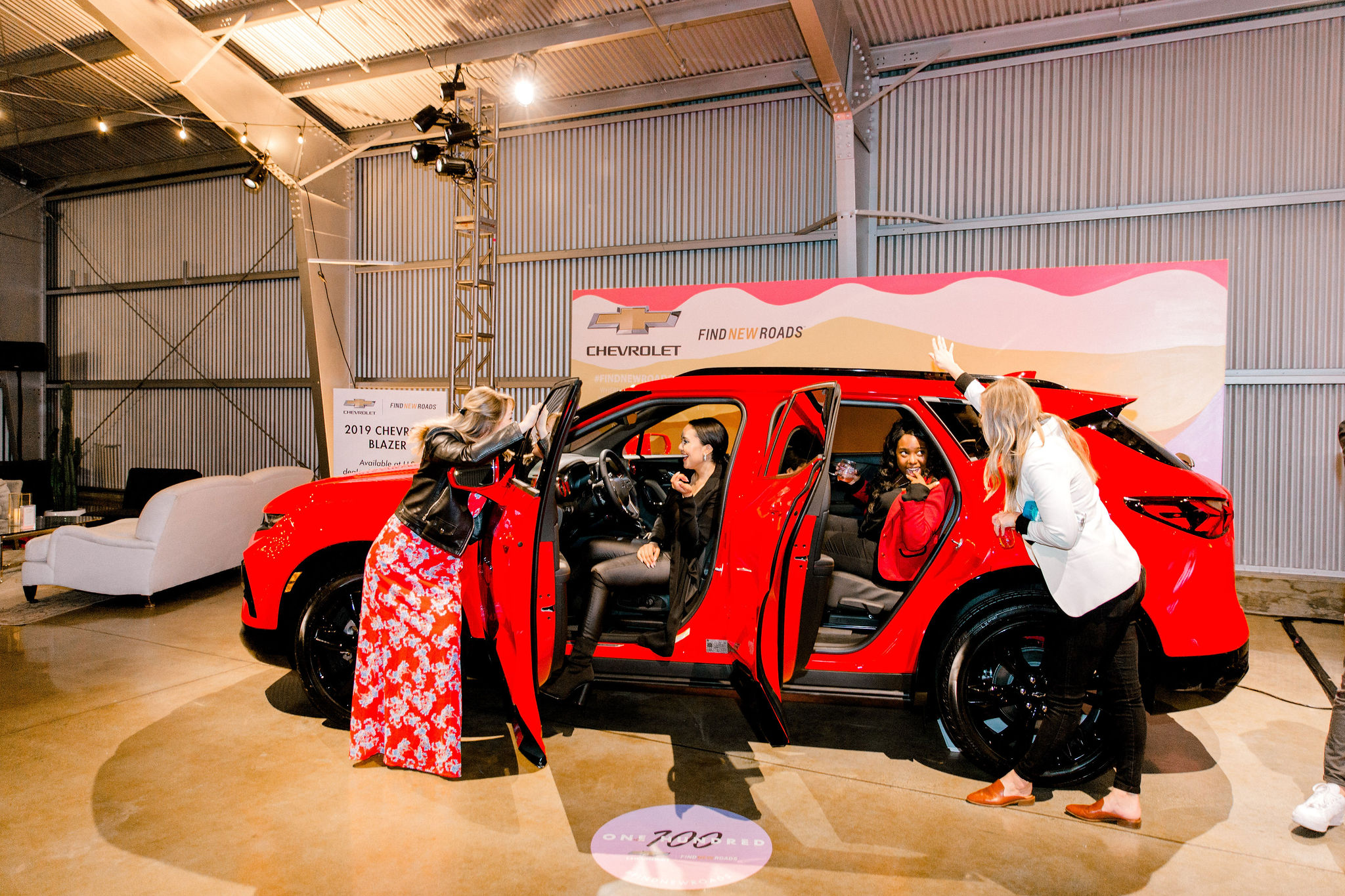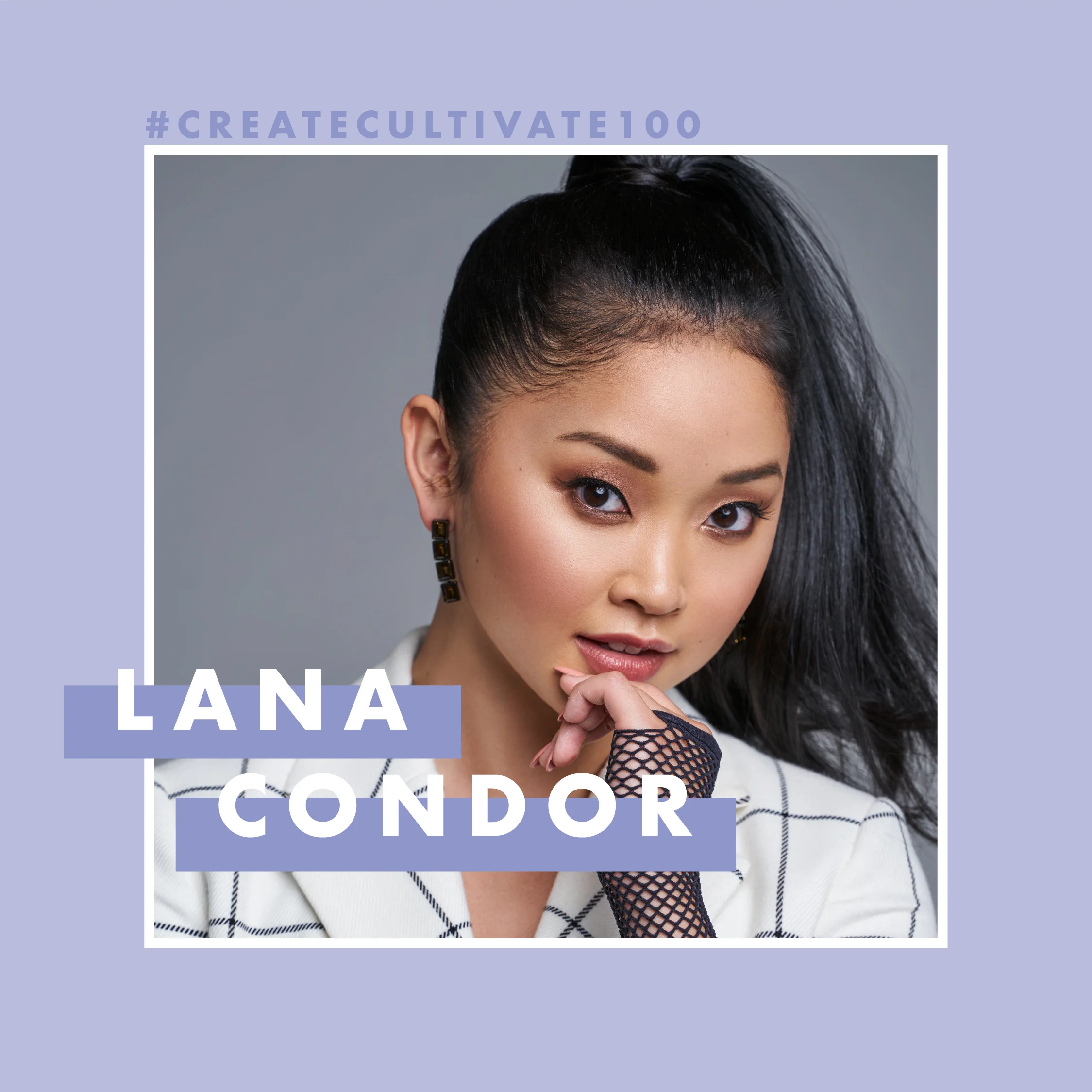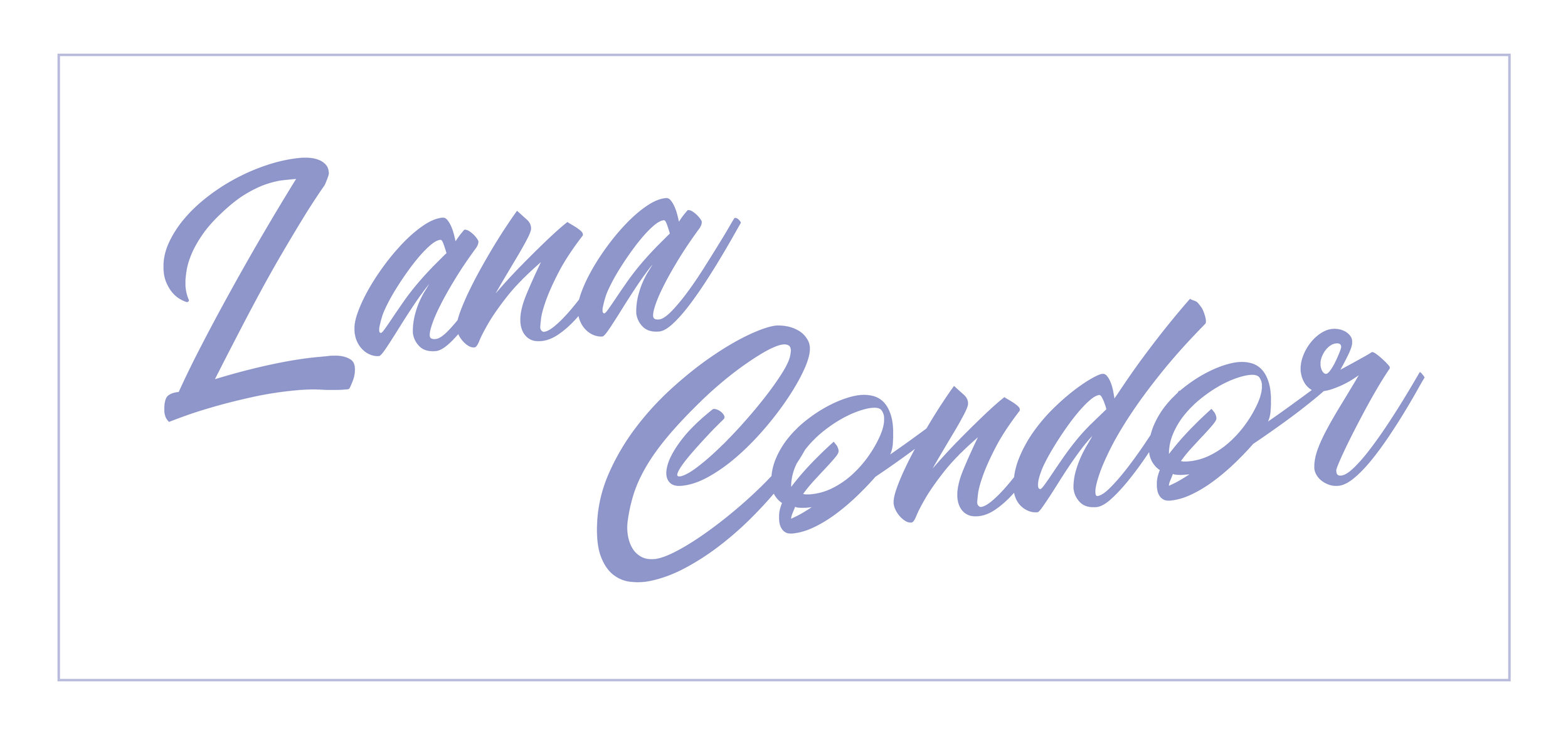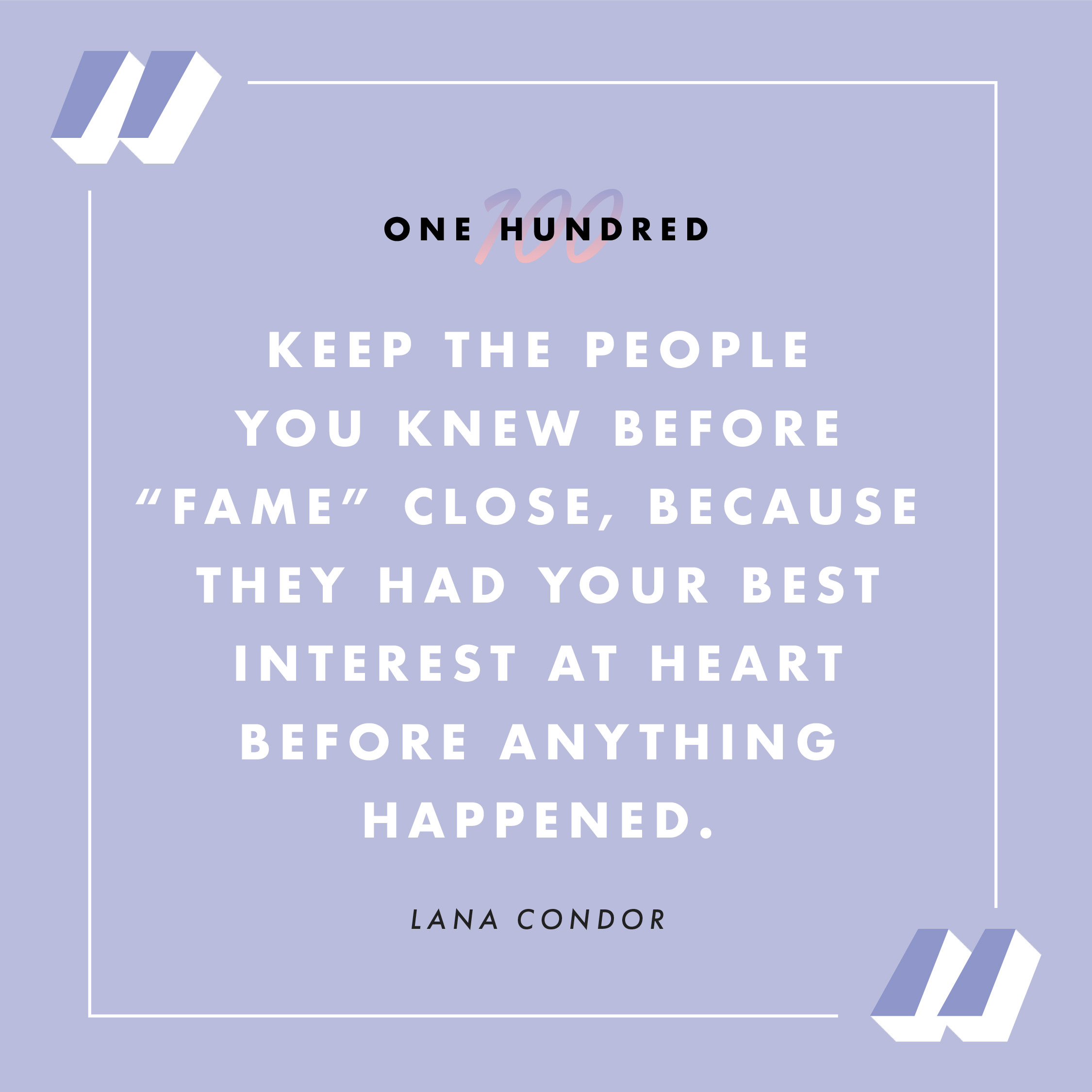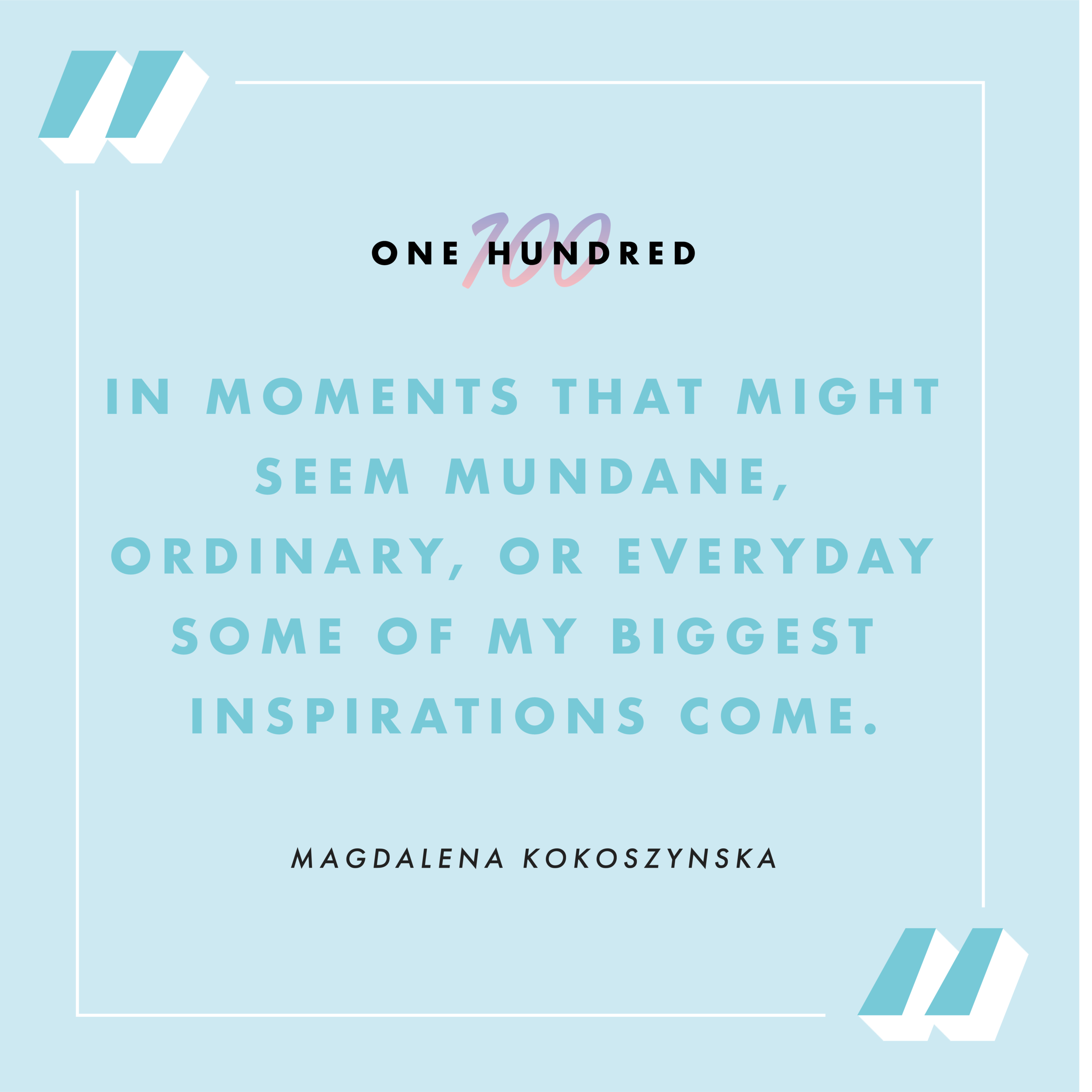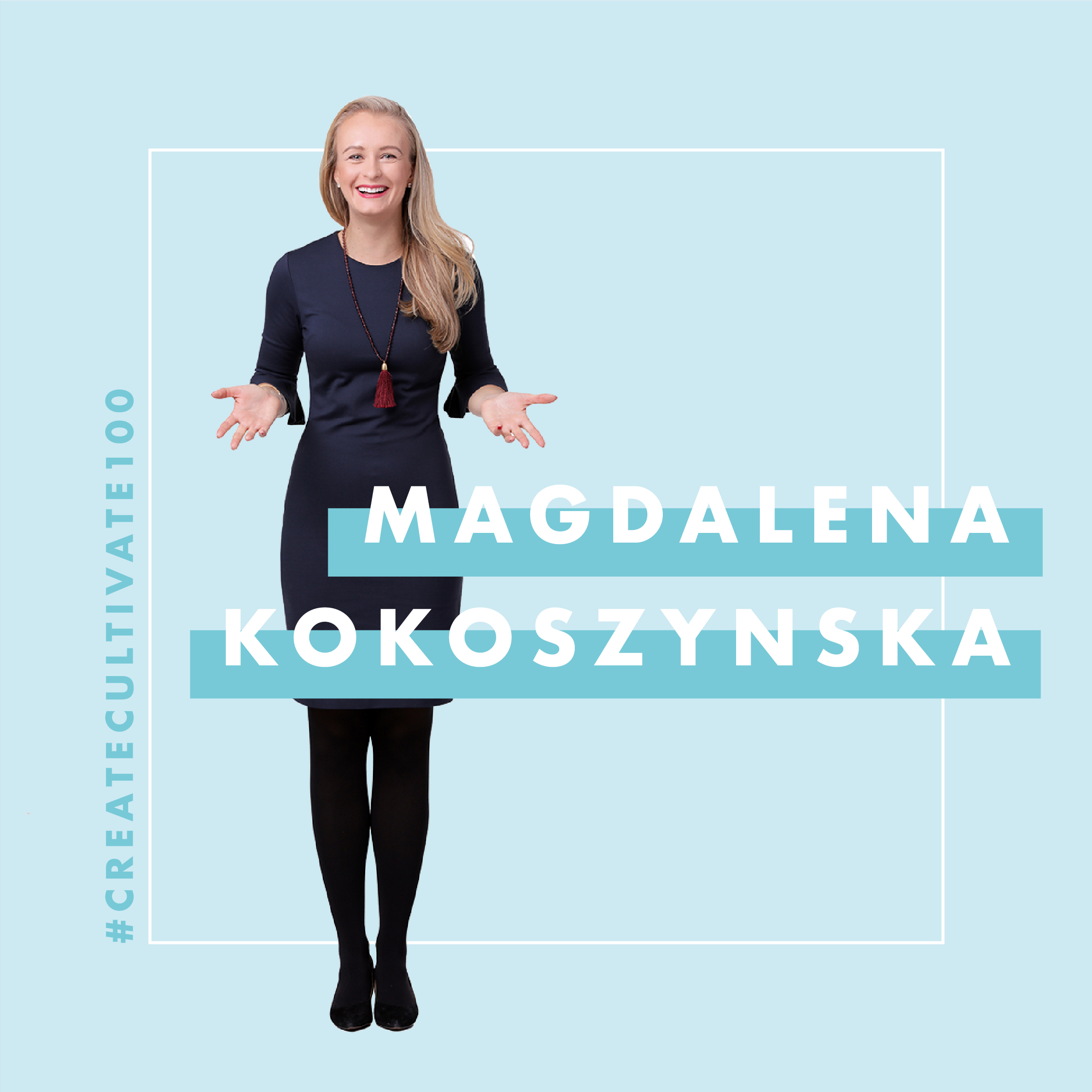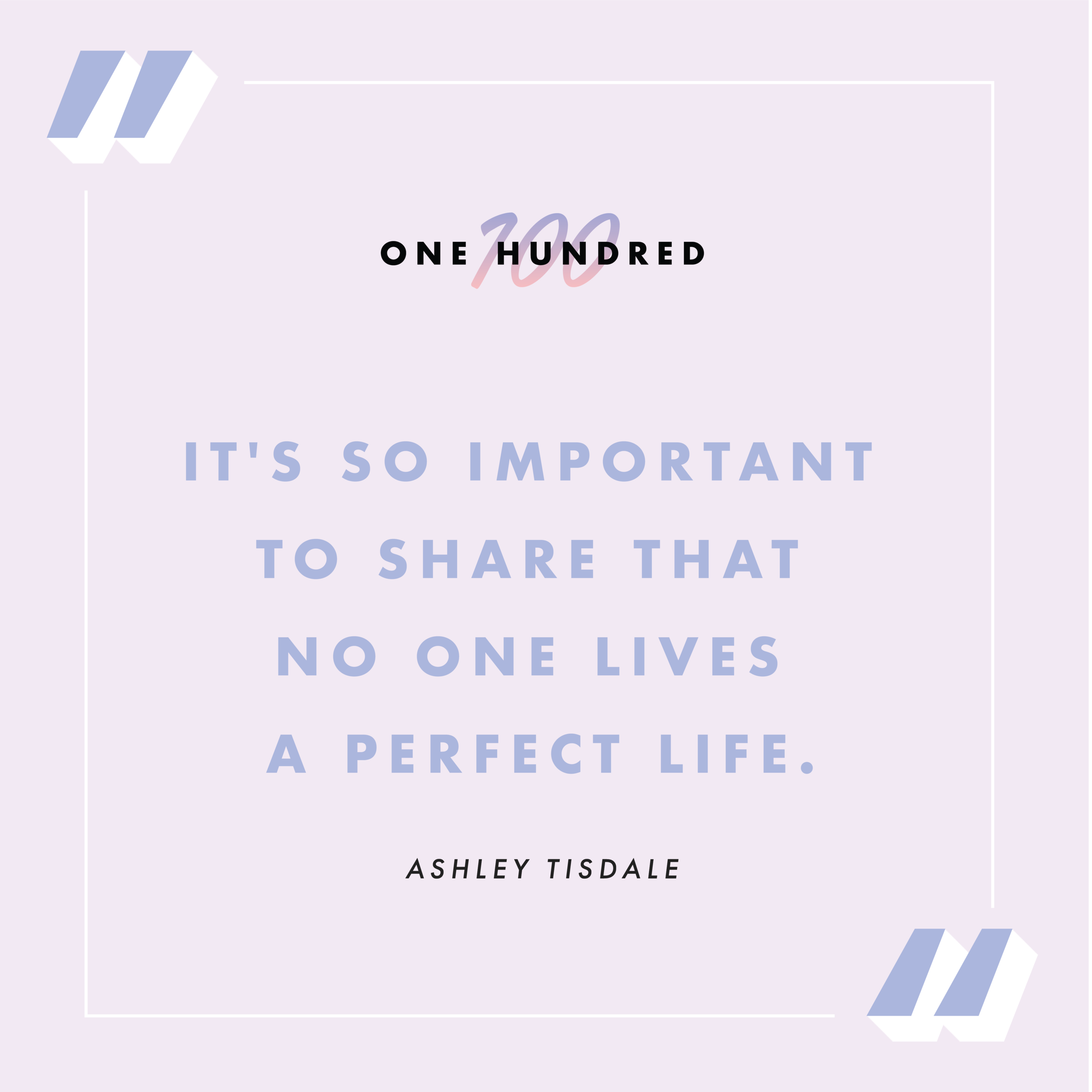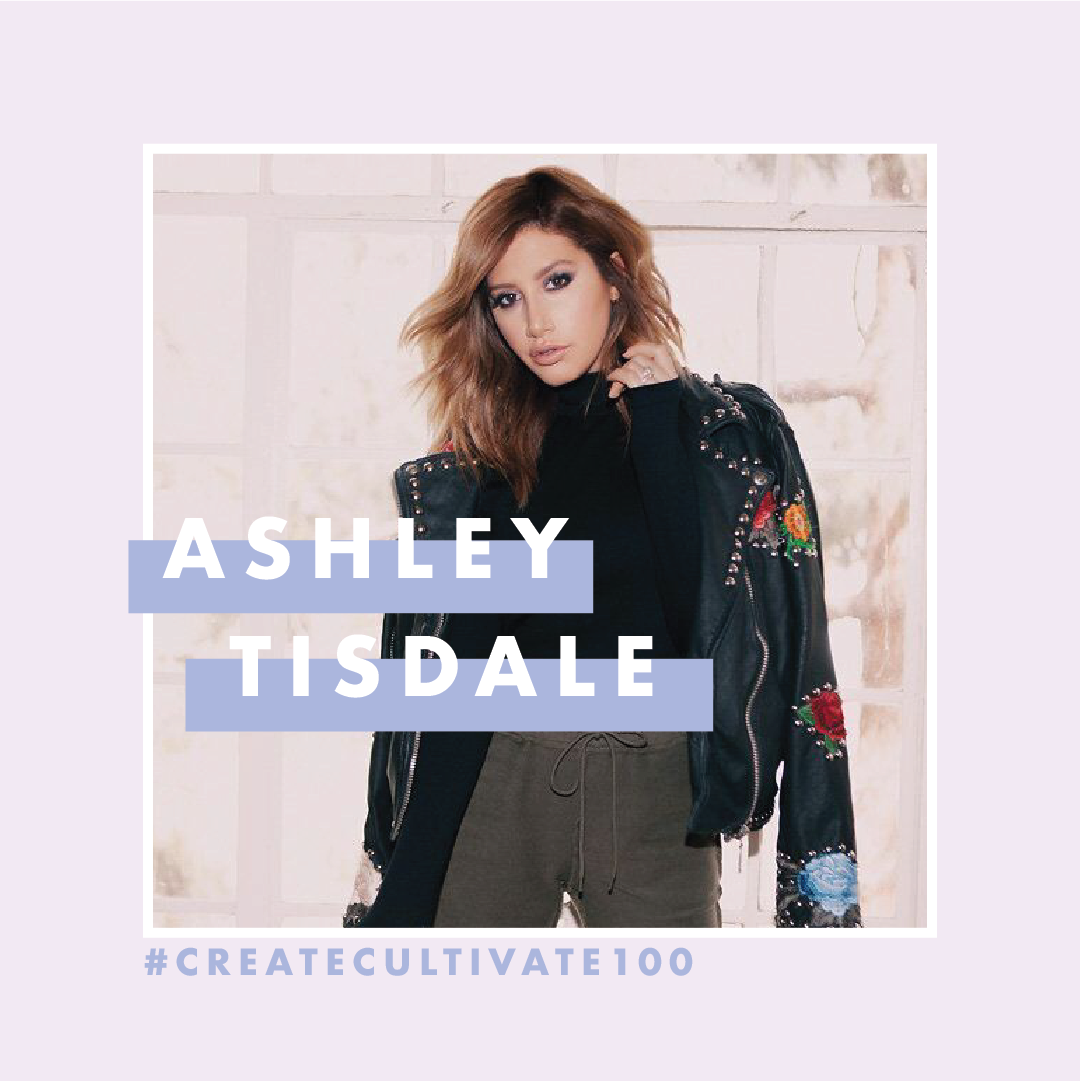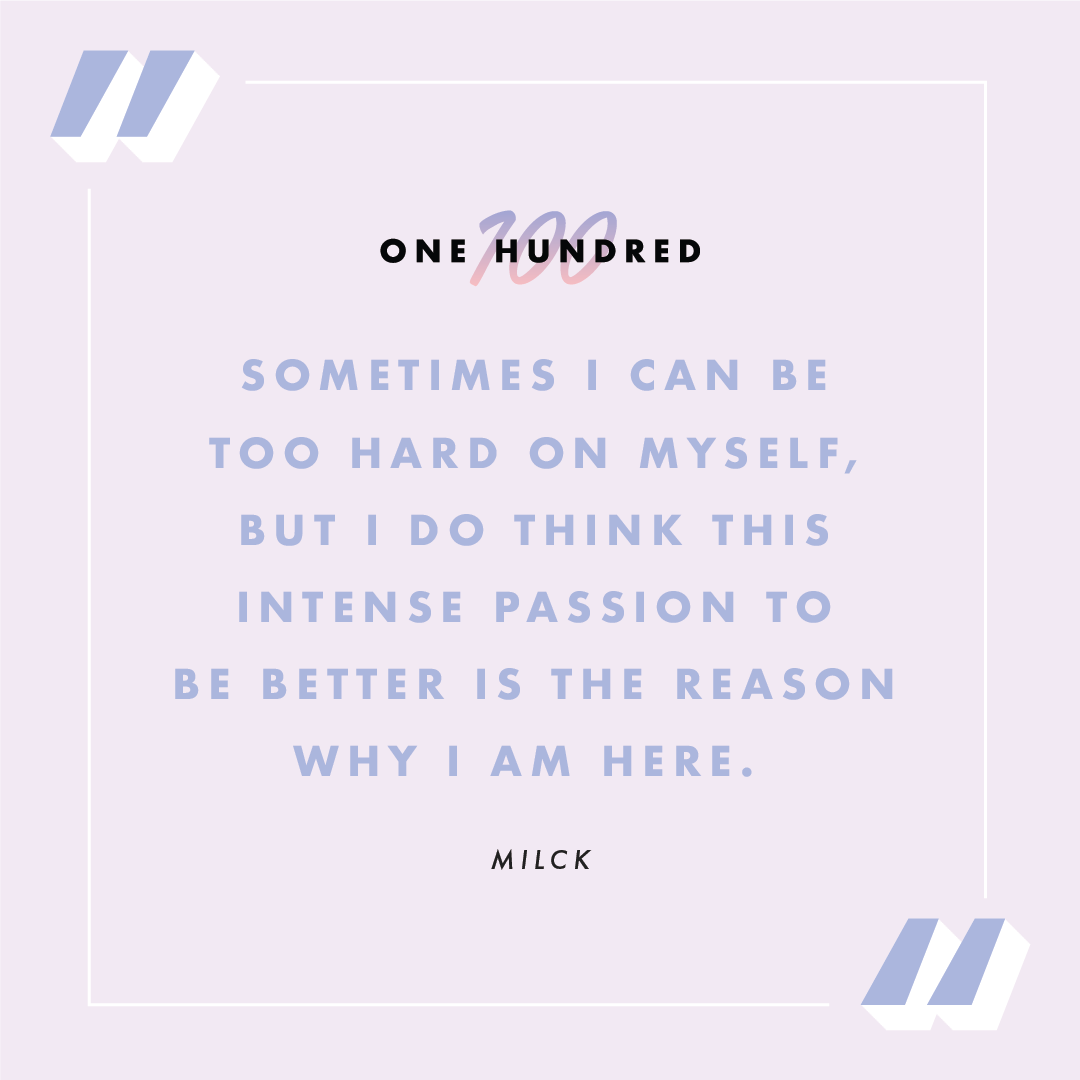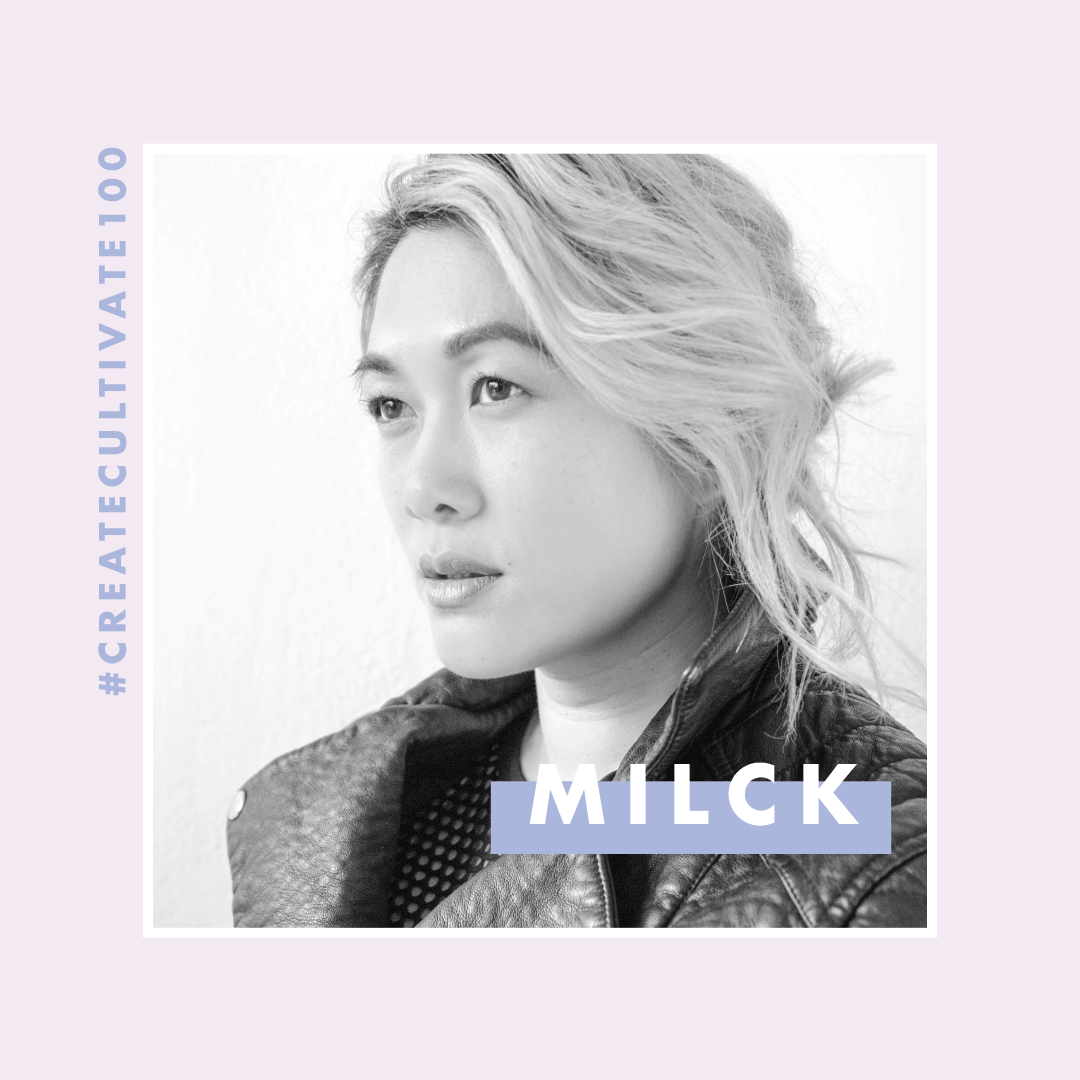Create & Cultivate 100: Health & Wellness: Sarah Larson Levey
“The fate of your future isn't something that should be rushed.”
Sarah Larson Levey was a New York-based fashion executive before she founded Y7, an unconventional yoga studio with humble beginnings as a pop-up in Williamsburg. Fast-forward to 2019 and Y7 has expanded to 14 locations across the U.S. from Brooklyn to Silver Lake—and shows no signs of slowing down.
And to think Larson Levey hated yoga. Her dissatisfaction with the current offering led her to a Craiglist search for a small space where she could host hot yoga classes in the dark to hip-hop music. It was a radical idea but it took off and has completely disrupted the market ever since. The company launched in 2013 and made $9.8 million in revenue in 2018 where it was also included as No. 80 on Inc.’s list of America's 500 Fastest-Growing Companies—Larson Levey also starred on the issue’s cover.
Ahead, she shares the lightbulb moment that sparked her to leave her full-time job in fashion behind to pursue an entrepreneurial endeavor in the fitness industry, including the mistakes she’s learned from along the way, the #1 piece of advice she’d give to women starting out in the fitness field, and the reality of the behind-the-scenes hustle.
CREATE & CULTIVATE: You were a New York-based fashion executive before you made the huge pivot to co-found Y7 with your husband in 2013 as a pop-up in Williamsburg. Can you take us back to that lightbulb moment? Where did this idea come from and did you know it would be as big and successful as it is now? Why do you think this style of Yoga has struck a chord with so many people?
SARAH LARSON LEVEY: I was so frustrated with my yoga experiences. I never felt skinny enough, fit enough, flexible enough, spiritual enough. I was tired of feeling like an outsider in a practice that is for everyone. I decided to create a space that catered to that. Y7 is a space that you can move how you want to, every cue is just a suggestion. I had no idea anyone would even want to practice yoga this way, but it turns out a lot of people were craving a place to practice that doesn’t require these false prerequisites that are portrayed to us.
Now Y7 is available in 14 locations across the U.S. with plans to expand and over 300 employees. Can you take us through your marketing strategy and branding? How do you create a brand that stands out in a sea of competition? What unique social marketing tips do you have for other entrepreneurs to help grow their company online?
Our strategy has always been to provide a consistent client experience. For Y7, that is sweat-dripping, beat-bumping, candlelit yoga. In a space that is so competitive with endless options, it is important to be the space that clients can count on.
When you hit a bump or hurdle in your career, how do you #FindNewRoads + switch gears to find success?
I always find that taking a step back is helpful. Looking back at how much has already been accomplished and remembering that I have been in this tough space before and I can get through it again.
“It’s hard AF. You have to be okay with failing. You have to be okay with getting tough feedback.”
Growing as quickly as you have doesn't come without its challenges. What have been some of the biggest hurdles you've faced along the way? And what did you learn from it? How did you turn that into an opportunity?
One of the biggest hurdles I had was myself. I used to take every review of every class personally. Every time anyone had any sort of feedback I would get defensive and sit in my thoughts. I would get so worried about what every other studio was doing and how I was going to keep up that I almost lost sight of my vision for Y7. I got out of that headspace and learned that the way to grow is to stay focused. Know what you stand for and be that and keep going.
From the outside, you're hugely successful and killing it but we all know the reality is very different. What do you wish more people knew about your job? What are the biggest misconceptions?
The highs are so high that it looks like fun all the time but it takes a lot of work to get to those moments. Sleepless nights, constant worry, roadblocks, you just have to keep going through it all and know that it will pass. Also... yes I work in fitness, but I barely get to work out I am so busy!
The filtered world of social media often hides a lot of the hard work and hustle behind-the-scenes. What is the reality of being an entrepreneur today? How hard is it really? Be honest! What traits do you need to succeed as an entrepreneur or founder in the competitive start-up environment? Why?
It’s hard AF. You have to be okay with failing. You have to be okay with getting tough feedback. Knowing when you have to change your behavior and knowing what your strengths are and where you may need help. You have to let go of your ego—be open to ideas.
Where do you think is the most important area for a business owner to focus their financial energy? Why?
Oh, wow. This is a tough one—it depends on what business you are in! For me, it has been supplies and labor. For the first three years of the business I ordered all of my supplies off of Amazon... lol... not the best idea. We have since switched to a vendor that is able to consolidate all of our orders and items so we are minimizing our costs and ordering efficiently.
Raising money was necessary to take Y7 to the next level and grow in the way that it has. What are some of the most common mistakes people make when raising money? Why?
Know your worth. Don't just take the first offer you get because it's better than you thought. Do your due diligence and ask questions. The fate of your future isn't something that should be rushed.
Founder depression has been a hot topic of discussion in recent months with more entrepreneurs opening up about their personal struggles. Who do you reach out to when you need advice or support? Do you have a mentor or are there groups you can turn to? What advice do you have for people here today who might be struggling with that too?
This is something that I definitely struggle with. There are moments of being so overwhelmed you think you will never be able to deal with everything. Early on, when I made the decision to make Y7 my full-time priority, I found a coach/therapist that I love. She helps me not only professionally but personally as well. She has been instrumental in helping me become the leader I am today. I feel very fortunate that I have girlfriends who are in the same position as me and I can always count on them for bottles of wine and just talking. If you ever start struggling with depression my number one recommendation is to seek professional help. It's so important we start to take care of ourselves in this way.
What’s a piece of advice you’d give to women starting out in your field? Why?
Don't be afraid to try something new. People could be craving something they don't realize.
We live in a fast-paced world that doesn't seem to slow down, what's your best tip for taking care of our mental, physical, and spiritual selves?
Know what works for you! I know that time with friends and a good glass of wine is how I fill up my cup.
What is the #1 book you always recommend? Why?
The Monk by Matthew Lewis. It was required reading for one of my lit classes in high school. It was written in the 1700s and is still so relevant today. I come back to it time and time again.
Photographer: Jenna Peffley
Hair: Styled by OGXpert & Celebrity Hairstylist Jillian Halouska
VIEW THE FULL CREATE & CULTIVATE 100 HEALTH & WELLNESS LIST HERE.
Create & Cultivate 100: Music: Bebe Rexha
“The only way to overcome fear, nerves, and hurdles is to face them with strength and confidence.”
She's a Grammy-nominated artist with 7.6 million Instagram followers but Bebe Rexha is also here to shine a light on mental health issues. The multi-platinum-selling singer-songwriter is known for some of your favorite pop star’s biggest hits (think Selena Gomez, Iggy Azalea, Rihanna and Eminem) and now as she branches out as a solo artist, Rexha is riding a wave of success. But she’s not afraid to pull back the filter on social media and share her vulnerabilities too—the good days with the bad.
Despite all of her fame and fortune (she’s collaborated with major artists like Cardi B and Rita Ora) the talented musician has proven there’s plenty below the surface, too. Read on to learn why she is one of the industry's most promising musicians and how she’s changing the game, one truth bomb after another.
CREATE & CULTIVATE: You recently launched a minute long docu-series in which you share your life with your fans over Instagram. Why did you choose to start sharing more? Where did the idea for 60-second mini-documentaries come from?
BEBE REXHA: I'm so glad you saw this. This was an idea I had to share what some of my favorite and most hectic moments are like while on the road. When on tour for several months, I wanted to think of a fun way to connect with fans outside of quick social media posts, so we decided to make these mini-docs. They're actually a blast to make.
When you hit a bump or hurdle in your career, how do you #FindNewRoads + switch gears to find success
When I reach an obstacle, I push right through it. The only way to overcome fear, nerves, and hurdles to face them with strength and confidence. Anyone can do anything they set their hearts to.
“I say what I feel, I mean what I see, and I try to spread words that empower and/or make people think.”
You recently said your new song 'You Can't Stop The Girl' was inspired by Serena Williams. Where else do you find your inspiration? Who else inspires you and your work?
I find inspiration everywhere in this world. I am inspired by the stories from fans I meet on the road, I am inspired by fellow artists and musicians who also use their reach to help others, I am inspired by everyone who stands up against society's pre-constructed norms, and much more. I just returned from Albania where I visited those affected by a recent earthquake, and I met some families who lost everything, yet they greeted me with open arms and smiles on their faces—that is inspiring.
You preach (and practice) the idea of self-love. What does self-love mean to you? Why is it important for women to embrace this attitude?
I'm grateful to be surrounded by people who also practice self-love, and that has helped me learn self-love. I try to pay that forward with my music and messages.
The music industry is fairly cut-throat and competitive. What advice do you have for musicians coming up now? What do you wish you'd know when you were first starting out? Why?
It is okay to say ‘no.’ And if someone says' ‘no’ to you, it doesn't mean you cannot push forward in other ways.
You've spoken out about many of the problems with the music industry, especially those surrounding body image and sexism. What changes are you hoping to see in the industry in the future? How can we make it happen?
I'd really like to see people of all ages, all sizes, and all genders continue to prevail in the music industry. I feel proud to see diversity on the stage and by celebrating art for what it is, and not what the person who makes it looks like, is what we should continue to focus on.
You have had incredible success already but what does success mean to you? How do you measure success? Why? What characteristics make you successful in the music industry?
Thank you. I am proud of my accomplishments thus far, and I do not feel anywhere close to being finished. I actually feel like I'm just getting started. One of the things that I am most proud of is that I am afforded the opportunity to write the songs I perform. The songwriting process and art of collaboration is something that keeps me going.
“Even with all of the self-love and confidence I strive for, I do still have my moments of vulnerability.”
You come across so confident in both your music and your online presence. How have you developed this confidence? How can other people build this confidence in themselves?
I am proud that it appears that way but even with all of the self-love and confidence I strive for, I do still have my moments of vulnerability. And I'm not shy about showing my vulnerabilities on social media and embracing the good days and bad days. I feel so much love from my fans—they can turn my mood around in a heartbeat (love you all).
Social media filters have disrupted our sense of reality. How do you stay true to who you are and your voice and not follow what everyone else is doing or is popular on Instagram?
Oh, sometimes I receive suggestions to have a better filter on Instagram (keeping in mind the diverse age demographics of people on social media) but I just stay true to me. I say what I feel, I mean what I see, and I try to spread words that empower and/or make people think.
VIEW THE FULL CREATE & CULTIVATE 100 MUSIC LIST HERE.
Create & Cultivate 100: Small Business: Chelsea Moore
“Just get started—once you get going, it really will snowball from there.”
Every successful business idea comes from a need, a gap. It's in this whitespace where Chelsea Moore and her two co-founders, Jenni Olivero and Sabena Suri stumbled upon the idea for their gifting company, BOXFOX.
After a close friend became sick, Moore and her cofounders, Jenni Olivero and Sabena Suri, realized there was a serious lack of options that could show you were “there” for someone even when you couldn't be there physically. “We wanted something that went beyond flowers and the typical overpriced (and wasteful) gift basket,” she tells Create & Cultivate. “Our standards were high: we wanted something presentable, personal, and with a purposeful product that was simple to send.”
So, they did some research and discovered a lot of people were also looking for a modern and seamless gifting experience, too. It didn't exist, so they built it and they’ve been disrupting the space ever since. Now, five years later, they have an easy-to-use consumer platform with a pre-curated ready-to-ship collection, a Build a BOXFOX platform where customers can build their own gifts and care packages from all the best brands in one place, and a corporate gifting arm called BOXFOX Concierge, with a dedicated sales team and a members-only platform.
Read on to hear more about how they are redefining the gifting model, how they work together as co-founders, and why they decided to bootstrap the business over raising VC.
CREATE & CULTIVATE: As the co-founder and CEO of BOXFOX you have your hand across all areas of the business—but for those of us who don't know what it's like to be a CEO or aspire to, can you share what your role entails? Can you give our readers a snapshot into what your day-to-day of a CEO looks like? Does the reality of your role stack up to your expectations?
CHELSEA MOORE: Here at BOXFOX, as co-founders, we lead equally, so we share a lot of the long-term planning, people management, and financial responsibility. However, we've all settled into the verticals we spearhead, with each other’s support, of course. As the CEO, I oversee all creative, marketing, legal, and web development. On a daily basis, I'm either diving right into emails, design work, photography, approving content calendars, web development projects, putting out fires, or planning meetings. Being our CEO is everything I expected, in that I believe there is sometimes stuff you want to do and stuff you have to do, and I was prepared for that roll-up-your-sleeves reality. The one aspect of the job I wasn't expecting though was how much more complex it all gets as you grow. There's more to oversee, more to manage, and more at stake.
Gifting is such a saturated space. What makes BOXFOX different? How have you differentiated the brand so it stands out above the competition and in a crowded industry? Why do you think BOXFOX has been so successful?
We didn't invent gifting, but we did make it modern in a way no one else was doing. We prioritized being a business built with scalable customization at its core, empowering customers to gift well and often. For B2B, corporate gifting lacked a ‘go-to’, elevated, all-in-one solution. BOXFOX has built a brand with a diverse, loyal following who seek approachable, no-fluff, tech-forward, personalized service to make life easier for everything from small tokens to grand gestures. We're proud to share an office space with our warehouse and be an approachable, authentic gifting resource for our loyal customers.
“Do your research, be prepared, and be ready to work 10x harder than you could have ever expected.”
You proudly run a self-funded startup, so can you talk us through the bootstrapping process? Would you recommend that route to other entrepreneurs? Do you have plans to scale? Do you have plans to raise?
For us, bootstrapping from the start was intentional: we wanted to prove the effectiveness of our business model, perfect our systems, and decide what type of company we wanted to build—how quickly or slowly, how much control we wanted to maintain, and what our priorities were. Early on, our goals were to achieve steady, organic growth, build a meaningful workplace, and reinforce the human side of e-commerce. We weren’t necessarily thinking about an exit strategy, which raising money would have necessitated, so it wasn’t the path for us.
Of course, there are so many businesses that raising makes sense for; the best advice I’ve ever gotten is to truly think about what your priorities are, and whether those objectives line up with taking on capital. It all comes down to what kind of business you want to run.
When you're a small business you have to fall in love with the numbers, what have been some of the hardest money lessons you've learned along the way? What is your #1 money tip for small business owners? Why?
Do not be afraid of numbers—run into their arms and embrace them. Understanding them is the key to really understanding your business. If they intimidate you, take classes on Skillshare or Lynda, find a family friend who will sit down with you for an hour and explain more advanced concepts. Don't just find accountants and bookkeepers who you delegate to, find ones that will educate you and make you a stronger business owner.
What were the immediate things you had to take care of to set up the business?
I'm not sure if there is a perfect order for these initial items, but we bought our website domain, went through the city/county/state to set up all business license documents, got a CA resale ID, and then started our social channels about six months prior to launch. Then in the meantime, we were building our website and coordinating our first BOXFOX box samples.
There are three co-founders at BoxFox—do you recommend having partners in business? Why? What is the secret to a successful working relationship?
I think every business can have different needs when it comes to solo founders versus co-founders, but for us, it has been such a blessing to have each other on this journey. We each bring complementary strengths to the table and different backgrounds which only bring out the best in each other and our business. The secret to our successful relationship is a shared long term vision for where we want this to go, respect for each other's personal and professional needs, and over-communication.
When you hit a bump or hurdle in your career, how do you #FindNewRoads + switch gears to find success
On a business level, there can be setbacks or mistakes and our company philosophy is always to analyze, find the silver lining, and never make the same mistake twice. When it's a personal bump or hurdle, like creative burnout or management overload, I've always believed in taking action. Identify the issue, come up with a plan, and move forward, because life is way too short. Before BOXFOX, I was so unhappy at my old job, but after a month-long pity party, I quit and we set off on this entrepreneurial journey.
You have had so much success, but if you could go back to the beginning with the knowledge you have now, what's one thing you would tell yourself and why?
We have such great lawyers, accountants, insurance brokers and outside partners that we rely on so heavily. It can be scary to reach outside of your immediate circle to find the experts you need, but if I could go back, I would have prioritized finding these superstars sooner.
“The biggest lesson we’ve learned along the way is that business is personal and management is a muscle that has to be strengthened.”
Creating buzz so people know about your brand can be challenging for small businesses. How do you market your business? How are people aware of your business? What are some unique social media and marketing tools you've used to grow organically?
We didn't have the money for digital marketing or PR in the beginning, so we got creative. We have a very strong visual identity, so we took the time to perfect that and lean into free tools, like Instagram and Pinterest. Beyond that, we leveraged our network and told everyone we knew and met about our company and mission. We definitely got lucky with some organic press hits in the beginning too. As we've gotten bigger, we've experimented with PR and digital marketing in small bursts of concentrated effort, but the overwhelming majority of our traffic is still organic or word of mouth.
What are some of the biggest lessons you’ve learned along the way and what have they taught you?
The biggest lesson we've learned along the way is that business is personal and management is a muscle that has to be strengthened. Leading a company requires empathy, interpersonal skills, a desire to connect with employees, partners, and vendors in a meaningful way. It takes practice, and it's never perfect, but the reinforcement of those skills has happily become a big part of my life.
What advice would you give to young entrepreneurs who have an idea but don’t know where to start to execute it?
Do your research, be prepared, and be ready to work 10x harder than you could have ever expected. I always share with fellow entrepreneurs to just get started. Perfect those product samples, start setting up the business paperwork, test the software. Once you get going, it really will snowball from there. Also, never agree to start doing anything without a signed contract (you will thank me for this later, I promise!).
Photographer: Lexi Hatch
VIEW THE FULL CREATE & CULTIVATE 100 SMALL BUSINESS LIST HERE.
Create & Cultivate 100: Beauty: Desi Perkins
“Anything worth doing takes hustle.”
From cocktail server to YouTube star, mega-beauty-influencer Desi Perkins is proof that anything is possible. After her last-minute Halloween costume went viral in 2012 (and her husband posted this selfie) her career suddenly snowballed into a social media star.
Cut to today and the makeup brush-wielding influencer has amassed millions of fans around the world (we’re talking 3.9m on Instagram and 3.2m on YouTube) who tune into her incredible makeup tutorials. (Even industry heavyweights by the likes of Kim Kardashian, Victoria Beckham (!) Nicole Richie, and Kate Hudson can be counted among her fans.)
Ahead, we tap Perkin’s to find out how she sets herself apart in a competitive space, the hardest lesson she’s had to learn, and her #1 piece of advice.
CREATE & CULTIVATE: First things first, how did you get into makeup? Can you share your earliest memory with makeup and how it impacted you?
DESI PERKINS: My mother could create a perfect winged eyeliner in the middle of chaos. When I was a kid I always watched her with amazement. I’ll never forget saying to her “I want to be able to do that” and she said, “One day you will.” She was right haha. I’ve always been passionate about art. I would sketch and paint and I remember my husband had a Halloween party and no costume. I had stumbled upon YouTube and watched a special effects how-to tutorial and thought, “I could do that.” I gathered my makeup and a face paint palette and painted his face. I figured it would be just like painting just on a different canvas. He went out that night and everyone asked who had done his makeup and if I do it for a living. I said yes, even though I didn’t, and the rest is history. Next thing I knew I was taking bookings out of my house.
You are incredibly successful but we know it has taken a lot of hustle and hard work to get there. What does a day in the life of Desi Perkins look like? How many hours do you put in a day? How hard is it to be your own boss? How has your role evolved over time since you first launched your YouTube channel?
Anything worth doing takes hustle. I started out on my own not knowing what this would turn into. Before I knew it, I was my own manager, producer, editor, photographer, and makeup artist. It’s a juggling act for sure, but I love it. We do a good job of making this job look easy but in reality, it’s many different jobs rolled up into one. I have slowly recruited my family members onto my team to help me, and I love the dynamic because we are all in and love spending time together. For the first few years of my career, I didn’t have designated days off, which I soon realized was a disservice to my creativity so now I make sure to give myself time to reset. It has been a learning experience, but now I have the hang of it. I get to create every day which is what I always wanted in life.
You're creating a new blueprint for female leaders and forging a new path for women coming up behind you. What are your hopes for women? What advice do you have for the many fans reading this who want to achieve your success? Where should they start?
Thank you! I have seen firsthand how women can be treated in the business world and it can be discouraging, but I also see all the opportunities out there for us. You just have to show up and work hard towards what you want and be consistent.
“If I could give my younger self any advice, it would be that business is business and every deal you do must be beneficial to both parties so protect yourself.”
In an interview with ET, you spoke about how your mom immigrated here at a young age and worked incredibly hard to make sure you had what you needed. What has been her greatest piece of advice? How has she inspired and motivated you to succeed as an entrepreneur? Why?
My mom has always been one of the hardest working women I know. She always had an incredible work ethic and an insane amount of creativity. She would tell me I was too creative, haha. I knew what she meant. I was all over the place with what I wanted to do in life because I just loved doing everything. One day, she told me to focus on one passion and put my all into it. That was the best advice ever because that’s when I focused on makeup and that led me to where I am now. Ironically enough, I have a job where I can now do everything I’m passionate about, but the focus that led me here stemmed from the advice my mom gave me that day.
When you hit a bump or hurdle in your career, how do you #FindNewRoads + switch gears to find success?
I see every problem as an opportunity to find a solution. There are always going to be bumps in the road, and how you navigate them is what will set you apart. I used to let problems get to me, but I learned to protect my energy and see the positive in the situation. The hurdles make you appreciate your successes.
What do you wish your younger self knew when you were first starting out in the beauty industry? Why? What characteristics make you successful in this industry?
I wish I wasn’t so trusting and understood the importance of contracts. I think it’s easy to be excited about a project and not want to rock the boat on the business side of things when you are first starting out. But, if I could give my younger self any advice, it would be that business is business and every deal you do must be beneficial to both parties so protect yourself. On the upside, it was a valuable lesson to learn early on in my career.
In an interview you mentioned that you'd love to launch your own collection one day, is that still on the cards?
That is 100% still in the cards. I’m very excited for 2020.
You are obviously a multi-hyphenate with so many careers happening simultaneously. What is your best work hack for getting everything done? Tell us your productivity secrets!
Lots of coffee and drive. I always make lists of what I need to do and prioritize them by what’s more pressing. I start with the creative process of each project because that’s what I’m passionate about and it fuels the rest.
You are one of our favorite people to follow on social media, so we'd love to know, what is the secret to growing a community like yours? What are your top three tips for growing a following and building a brand on social media?
My three tips would be:
1. Be consistent with your content and post often.
2. Be yourself! As cliché as that sounds, it’s the best tool you have.
3. Lastly, I would say, if you want to work with brands, look at their page to see what kinds of things they are posting so you can make sure your content is on par with theirs so that your work can also be reposted.
Social media always shows the highlight reel but we know that it’s not always a depiction of reality. What's a mistake you made in your career and what did you learn from it? How did you turn it into an opportunity?
It really is a highlight reel. Behind the scenes is the business side of things—which isn’t often seen. I made the mistake of trusting business projects without contracts and that was a huge learning lesson for me. I was upset about it at first but later understood I had great ideas to give and it actually gave me comfort and confidence towards my career.
“If I could give my younger self any advice, it would be that business is business and every deal you do must be beneficial to both parties so protect yourself.”
With success comes opportunity, but it also means you have your hands full. What keeps you inspired and motivated to keep going even on your most challenging days?
I’ve learned that self-care is so important. It’s easy to become a workaholic, especially when you work for yourself, but if you don’t take time for yourself you can burn out and kill your motivation. I recently took a seven-day digital detox and I was incredibly amazed at how much inspiration I gained just by disconnecting.
There is so much competition in your industry, how do you set yourself apart from other major players in the industry? What is your advice for others reading this who want to achieve your success?
I only compete with the person I was the day before. You can’t compare yourself to others because, at the end of the day, it’s your journey, not theirs. I just do what makes me happy and hope people appreciate my art.
How do you define beauty? What makes you feel beautiful?
Beauty is who you are as a person on the inside. When someone is a good person, it radiates brighter than someone who is just a pretty person. I feel the most beautiful when I’m happy and people can feel it.
What is the #1 book you always recommend? Why?
I’m going to recommend a podcast because I just love listening to podcasts, “How I Built This” by Guy Raz. It’s so motivating to hear everyone’s stories of how they built their successful business.
Create & Cultivate 100: Entrepreneur: Lindsay Albanese
“Persistence and consistency are the keys to success.”
As with many of the best business ideas, TopTote was born from a personal need. Lindsay Albanese knew firsthand the inconvenience that came with traveling with a hat, and it was her own experience that sparked the idea for a hat clip travel accessory—a.k.a. TopTote. And hat lovers everywhere are rejoicing.
Fast-forward six years, and Albanese’s ingenious invention, which started out as a humble solution more akin to an “arts and crafts” project, is now available at big-name retailers like Nordstrom (where the product has sold out a staggering twelve times).
Albanese is another career pivot success story. Before she took the leap to become an entrepreneur, she was a prominent celebrity stylist and fashion expert on TV and print media from the Today Show to InStyle Magazine for more than 10 years. Talk about a bold move.
Ahead, Albanese shares the moment she knew her deceivingly simple invention could be a successful business idea, the thing she wishes people knew about being an entrepreneur, and the best piece of #realtalk she’s ever received.
CREATE & CULTIVATE: Your company TopTote sells your innovative invention to solve an age-old fashion problem—traveling with a hat. Can you tell us a little about the lightbulb moment behind this idea? How did you turn your idea into a successful company? What lessons did you learn along the way?
LINDSAY ALBANESE: As a celebrity stylist, I traveled a lot for business and I was always annoyed with the commitment that came when wearing a hat. To wear it or not to wear it, or carry it in my hand. Forget it, I'm leaving it at home! The only option for traveling with a hat, without wearing it the entire trip, is bringing a hatbox. Talk about impractical! I knew there had to be a better way so I created a little "arts and crafts" version and would use it at the airport and people would stop me and say, "That's so smart." I knew I was onto something so I stopped using my little invention. At that time I was in the thick of my styling career and something in me knew it wasn't the time to dive into developing a product but I knew I would come back to it in the future. Cut to 6 years later, and I felt an urge and a shift in what I wanted to do with my career, big-picture wise, and I knew it was the time to take a chance and launch this little idea of mine.
The biggest advantage of my success and building my business was tapping into my resources and network of people. You can't be shy!! I wracked my brain to remember who I knew or had ever met in the product development and manufacturing business. I even called my parents' neighbor who I haven't talked to since I was probably in junior high! But I knew he was in manufacturing so I got him on the phone. This journey of discovery not only gave me different perspectives and opinions about what I should and should not do, but it also gave me a crash course education that helped me make decisions to move forward with my idea. Ultimately all of these conversations lead me to the team I'm still working with today. Trust me, if you dig deep enough and forget about being shy or bothering people, you will always find a link to help guide you in the profession you want to go into.
TopTote has expanded dramatically. You've already sold out at Nordstrom 12 times in the last year, how has your brand been able to grow so rapidly? What challenges have you faced as you've scaled? What tips do you have for entrepreneurs growing their own companies?
A big part of it is that I invented a product that solves a problem that has never been solved before. But then again, people have great ideas all the time and have failure-to-launch syndrome so I need to give myself a little more credit than that. I feel like the hard work and dues I have paid working in the entertainment business the past 17 years as a celebrity fashion stylist, TV personality, and social influencer set the foundation. When you think about it, finding a job or pursuing a career is all about essentially selling yourself, and I've done that since day one back when I was 21 years old convincing people to hire me as a stylist. I translated that experience into marketing and selling my product.
The biggest challenge is learning the business and process of manufacturing. I'm a student CEO in a company that is making huge moves very early on. There are so many layers and steps from idea to a finished product that’s ready to sell. It's mind-blowing! A few of my biggest tips for entrepreneurs is to tap into your resources, reach out and don't be shy, and ask questions to anyone who can help you. People naturally like to talk about themselves, so listen and take it in. Take what resonates with you, and leave the rest. This is free knowledge and education that will help guide you in the right direction.
Also, take the proper steps to legitimize your business legally with the states and for taxes and hire an accountant/financial advisor so you understand your finances. That was the first big retainer I invested in when launching my business and the best decision I have ever made. The biggest challenge, NEWS FLASH, is capital! I am a 100% self-funded company by choice and investing your savings into something that has no guarantee is terrifying.
“If you take ‘no’ for an answer, you’re not cut out for the entrepreneurial journey. Most roads lead to ‘no’ and you have to push through it to get the ‘yes.’”
When you hit a bump or hurdle in your career, how do you #FindNewRoads + switch gears to find success?
Keep going. I have been hired, fired, humiliated, you name it. I always got back up. Persistence and consistency are the keys to success.
Where do you think is the most important area for a business owner to focus their financial energy? Why? What was the biggest money lesson you learned since launching your business?
Secure a trustworthy lawyer and financial advisor because if shit goes down it will most likely affect those two areas. From day one, you need to put best practices in place and have that clarity. As far as product, the money should go into evolving that and making it better.
You're still in the early stages of TopTote but there always competition around the corner. What makes you and your business stand out? How do you find and create a unique point of view?
The Lindsay Albanese brand is a serviceable style company that will continue to create products that make people's lives easier. TopTote is the first of an entire collection under that philosophy. I don't want to just create cute products—there are enough people doing that and that will bore me. I want to create products that create conversations and get people sharing with each other. That, and the fact that I am uniquely me, given my experiences, credibility, and point of view. That is enough to differentiate me just as much as it does for anyone else to be able to show up and compete in this market. It's really all you need.
With success comes opportunity, but that also means you have your hands full. What keeps you inspired and motivated to keep going even on your most challenging days?
That I'm doing it. When this was an idea, a dream, a thought, many years ago is now a reality. That's why passion should play a huge part in pursuing any career or taking the path less traveled when it comes to business. When the going gets tough, the passion for the goal is the magic that always brings you back and keeps you motivated.
Can you recall a specific time you failed and how you turned that around into an opportunity?
Many times. I actually failed most of my life. Up until my first year in college, I was a D and F student. No joke! Finding my passion was the cure for that.
You've been working as a stylist for years and still serve looks all over Instagram, what about your life has changed since you decided to start your own company? What do you wish you could go back and tell yourself when you were first launching your business? Why?
The hardest part is juggling both of my businesses: developing my personal brand as a content creator and influencer and acting as the CEO of my namesake product company. My days are now mostly spent in front of the computer. Startup life is not glamorous! How many stories in my pajamas can I do in one day? The struggle to do outfit posts and curate stories is something I have given myself a break on recently—I'm working on something bigger here that builds an empire—and that’s the focus.
What do you wish people knew about being an entrepreneur? What are the biggest misconceptions? What traits do you need to succeed as an entrepreneur or founder in the competitive start-up environment? Why?
That initial success of a product does not equal wealth. People have insinuated that I'm rich now. LOL. Quite the opposite. There's a transitional growth period when you start a company where you're having to meet the demand of keeping up with the growing business which means you're fronting even more money to manufacture products and paying those bills before the goods are even sold. I could go on and on but you get the picture.
If you take no for an answer, you're not cut out for the entrepreneurial journey. Most roads lead to no and you have to push through it to get the yes. The yes is always there for the entrepreneurs who don't take no for an answer and keep going.
What is your vision for the business? Do you want to stay small and manageable or do you have plans to scale and grow, maybe even sell it one day? Why?
I go back and forth on this. The truth is, I have a goal to build a company that makes serviceable style products that make people's lives easier and to enjoy my life and the business I'm building. That is the most important thing. I want to roll out two new, non-TopTote related products next year and eventually launch four core products the years following that. We will also license TopTote to Fortune 50 companies in the coming years. If you would have told me I would have been an inventor when I started out as a stylist 17 years ago, I would have thought you were absolutely insane. Same with this journey. I'm going to stay focused on building my brand, but I know there will be opportunities that come up that will inspire me to pivot and rethink my goal so we will see! Being open to pivoting and listening to my intuition have been the keys to my success in every move I've made.
What is the best advice you’ve received? Or your favorite piece of #realtalk?
Enjoy it. Sounds simple and that's why it's the most important—because it translates to happiness. I didn't pursue my dream to be miserable all the time and I refuse to be that person who's all of a sudden 80 years old wishing they would have enjoyed the journey a little more. I am fully present in what is happening right now.
Additionally, the best advice was to get a financial advisor, especially when dealing with manufacturing. You need that clarity with your finances so you can sleep at night, run a profitable business, and stay in business! Many businesses fail because they underestimate their financials.
As you begin to grow, there are people that love your brand and spread the word organically, but there will also be those who have a bad experience and share negative feedback publicly. How do you deal with criticism and customer complaints?
Negative feedback can be useful in growing and making your brand or product better. You need to listen to your customers, and if a lot of them are saying the same thing about your product or service, you need to lean into that and decide for yourself what changes need to be made or not.
What advice do you have for other entrepreneurs? How can they achieve the same success you've experienced?
The follow-up gets the fortune. In everything I have pursued, it’s the follow-up that’s resulted in the opportunity, not the first email or call.
Also, if you have that nagging feeling in the pit of your stomach that won't go away that's urging you to go for an idea or dream you have, that is your intuition trying to guide you to your purpose and you have to figure out how to make it a reality.
Little steps toward your goal build momentum that can create a big impact. It takes time, persistence, consistency, hard work, and unreasonable optimism to make anything happen.
What is the #1 book you always recommend? Why?
For entertainment, I loved Bad Blood. For business, I actually recommend people to take B-School by Marie Forleo to help entrepreneurs streamline their ideas. It really helped me define a few things that have been game-changing in regards to my current business.
Photographer: Jenna Peffley
Hair: Styled by OGXpert & Celebrity Hairstylist Jillian Halouska
VIEW THE FULL CREATE & CULTIVATE 100 ENTREPRENEUR LIST HERE.
Create & Cultivate 100: Music: Sasha Sloan
“Take everything with a grain of salt and, at the end of the day, listen to your gut.”
Sasha Sloan isn’t here for filters, dramatic diatribes masquerading as captions, or any other Instagram BS, which is why we love following her. And given that the singer-songwriter (who goes by @sadgirlsloan on social media) has garnered over 202,000 followers, we’re certainly not the only ones who adore the irreverent artist.
Though she may have gotten her start penning pop songs for stars by the likes of Charlie XCX and Camila Cabello, Sloan has spent the last few years carving out a place in the spotlight for herself. With the release of her debut album and a slew of festival appearances on the horizon (including Coachella(!)), 2020 is poised to be a breakout year for the Los Angeles-based artist—and we can’t wait to see what she does next.
Below, the singer-songwriter lets us in on what it’s really like being a musician today, including where she gains her inspiration from, how she handles failure, and what motivates her on her toughest days.
CREATE & CULTIVATE: You've been called the voice of our generation, how does it feel to be given such a profound title? Why do you think your music and lyrics have resonated so much with people today? What does 2020 hold for you musically?
SASHA SLOAN: Well, it’s super flattering but also pretty scary because that means our generation has a shit load of anxiety, lol. Half-kidding. I’m just writing from the heart, so the fact that people are connecting with it is just a massive bonus. I think there’s a lot of cool music out there, but I feel like it can be hard to find a song that’s saying something. We have a bunch of sexy pop songs, but I’ve literally never felt sexy in my entire life, lol. I’ve only ever felt anxious, out of place, and extremely uncomfortable in my body, and that’s what most of my songs are about. In 2020, I’ll be playing Coachella, as well as a bunch of other festivals that aren’t announced yet, writing and releasing my debut album, and touring a lot more.
Your fan base is growing around the world, which means you're in the public eye more than ever before. How have you handled that? What advice do you have for others who are in the middle of that now? What have been some of the biggest lessons you've learned as a result?
I guess I don’t really think about it. I’ve never had a desire to be famous or idolized—I just like making music. It’s kind of weird, but the more people that listen to my music the more comfortable I feel being myself. Maybe that’s not weird. I’ve had a margarita, lol. The most important thing I’ve learned is to be real because people can tell when you’re not.
You're not afraid to share vulnerability through your lyrics and bare your soul with your voice. Where does that confidence come from? Is it therapeutic in a way for you to share your emotions through music in this way? What message do you hope to send through the music?
Honestly, I never thought vulnerability had anything to do with confidence. I thought it meant the opposite. I always thought of confidence as the girls who were in bikinis dancing on stage. My god, how I would kill to be one of them, lol! Emoting through music is extremely therapeutic. I feel like when I write an emotional song it’s my way of saying something I can’t verbalize. I have a hard time being serious and I usually hide behind humor. Writing is the only way I can really get things off my chest and not feel weird about it.
“The fear of letting my future self down is what really motivates me.”
Your “sadgirlsloan” brand continues to resonate with fans with your stories of an outsider who makes the wrong decisions but does her best to fit in. Where did this originate? How did you hope people would connect with it? Why?
Well, a lot of it stems from being a teenager. I was really overweight, and then in my sophomore year of high school, I lost 30 pounds and got my braces off. Just like that, I was homecoming queen and “in” with the popular kids. I think that really fucked with my head. I loved the attention, so I started doing things that weren’t natural to me like buying a bong and skipping school, lol. Being someone I wasn’t was incredibly stressful and ruined the relationships I actually cared about. I think there’s a part of everyone who wants to fit in with the cool kids, no matter how old you are.
You have fostered an inclusive and engaged community of fans on Instagram who you have been very open with. How do you view your influence on social media? Why do you feel compelled to be so honest and vulnerable with your fans? What message do you hope to bring to your community?
Honestly, I don’t really think about my influence on social media. I kind of view it as a necessary evil and don’t take it too seriously. I think there’s a lot of bullshit on Instagram. People are either boasting about some achievement, posting an edited selfie that took hours to perfect, or sharing some long dramatic deep saga. I feel like there can be a middle ground and that’s where I try to stay. I hope I can show people, especially young girls, it’s okay to be yourself and it’s okay to look normal.
What advice can you share for other musicians reading this who are struggling with societies and the industry's expectations or limitations on them? How can they develop the confidence to be themselves and grow their own voice?
I think it’s really important to be yourself. I know that sounds very obvious and corny as hell but it took me a long time to figure out. If you’re an artist, songwriter, or producer, you’re going to run into a bunch of people who have a million different opinions on what you should do and who you should be. Take everything with a grain of salt and, at the end of the day, listen to your gut. Make music you like. If you keep trying to make music you think people will like, you’ll never be satisfied.
How did you learn how to write music? What does your writing process look like now that you're writing for yourself instead of other singers? Where do you source inspiration? How has your music evolved?
I’ve been singing for as long as I can remember, and I started taking piano lessons when I was 10. I would buy chord books from Guitar Center and I think that naturally made me curious about songwriting. My favorite books were by Queen, The Beatles, and Elton John. I always thought they had the coolest, most experimental lyrics and melodies. I just started writing like crazy. I pretty much failed the math section of my SAT because I spent every class writing lyrics. I keep a running list of titles in my phone and that’s how I usually start a song. I develop the concept and think about what I want to say and then start fleshing out melodies. For me, inspiration comes from everywhere. Since I’m so lyric-focused, I’m always picking up phrases from people talking, TV shows, and books. My music has evolved in the sense that I’m not afraid to take risks anymore. When I was first starting out, I was scared of what people would think, but now I’m listening to my gut more.
When you hit a bump or hurdle in your career, how do you #FindNewRoads + switch gears to find success?
Whenever I hit a bump in the road I usually have a mental breakdown—lol, half-kidding. Once that is over, I take a step back and look at the big picture, which always makes me feel better. If I’m having writer’s block, it usually means I’m burned out, so I’ll take a week off. Sometimes grinding too much can backfire, especially when it comes to being creative. Breaks are huge for me, and I always feel recharged after taking one.
You actually started out penning pop tunes for superstars such as Camila Cabello and Charli XCX as well as lending your vocals to EDM tracks before making the pivot to become a singer-songwriter. What was that earlier experience like? What made you pivot? Are you still writing for other musicians or just focusing on your own now?
Yeah, I started off writing songs for other artists. When I was 19, I signed a publishing deal with Warner Chappell. I assumed I wasn’t supposed to be an artist because I was signed as a writer, which, at the time, I was cool with. Writing for others made me a much, much better songwriter. It was like boot camp. I was thrown in the studio with pros who really knew what they were doing. I learned a bunch of different styles, techniques, etc. Everyone has their own method to the madness. I had been writing for others for a few years, and it was great, but it wasn’t very rewarding. Creatively, it felt limiting, so that’s when I started to get the itch to put my own stuff out. I’ve always been an artist, I just needed time to find who I was and what I wanted to say. I’m still writing for other musicians, but mostly focusing on my own stuff now.
The music industry is historically male-dominated but you are part of this new wave of female artists who are killing the game and dominating the industry. How does it feel to be part of that new wave? What hopes do you have for the future? What advice can you share for other female musicians coming up behind you?
Honestly, the music industry has never felt male-dominated to me because my favorite artists have always been women. Regina Spektor, Karen Carpenter, Amy Winehouse, Adele, Eva Cassidy, etc. This new wave is awesome though. It’s shedding a light on artists that may not have been given a chance 10, 15 years ago. My advice for female musicians is: don’t do anything that makes you uncomfortable. I’ve been put in a few situations where I didn’t want to wear a certain outfit or do something in a video and I had to get good at saying no.
“I hope I can show people, especially young girls, it’s okay to be yourself and it’s okay to look normal.”
With success comes opportunity, but it also means you have your hands full. What keeps you inspired and motivated to keep going even on your most challenging days?
The hardest part for me has been balancing opportunity with my anxiety. I know touring is a huge part of being an artist, but I hate traveling. Being on the road is really tough. I also tend to get really down on myself. I start to think I’m a bad writer, and then I start to spiral from there. My motto has always been: “Do things you’re scared of, otherwise you’ll regret it later.” So, I guess the fear of letting my future self down is what really motivates me.
The filtered world of social media often hides a lot of the hard work and behind-the-scenes hustle. What is the reality of being a famous musician today? What are the key traits required to be a success?
Well, I’m not famous so I wouldn’t really know, lol. But for real, there’s a ton of bullshit that goes on. A lot of negotiating and people getting ugly with each other. It is a business, after all. I think it’s important to have a good team around you. Surround yourself with people you trust and don’t be afraid to ask for what you deserve. I think creatives tend to be bad at business… at least I know I am. Just stick up for yourself. If someone isn’t willing to be fair or give you a decent deal off the bat, it probably means you shouldn’t do business with them.
You have had incredible success already, but what does success mean to you? How do you measure success? Why? What characteristics make you successful in the music industry?
When I first moved to L.A., I worked at a coffee shop and then at the front desk of a gym. I would wake up at 4 am and work until noon. Then I would have an hour for lunch and head to a session. I remember thinking how happy I would be if I didn’t have to work in the mornings anymore and I could make music my full-time gig. Eventually, it did happen, and I feel insanely lucky to be able to do what I love for a living. For me, success has nothing to do with money. It’s all about being fulfilled and working hard. There’s no better feeling than busting your ass for something and seeing it come to life. As long as I can eat and have a roof over my head, I’m killing the game, lol.
In a saturated industry, what do you think makes you and your music stand out? How can others reading this find their own unique point of view? How do you stay true to who you are and your voice?
I’m glad someone thinks my music stands out, lol. I always try to push myself to say things that haven’t been said yet. Love songs are great, but there’s so much more to life and so many different relationships and perspectives to talk about. I make music for me. If I like what I’m writing and it’s honest, I know I’m staying true to myself. The second I start making music that’s forced or I think people will like is when I’ll be going down a dark path, lol.
What is the #1 book you always recommend? Why? What is the #1 album you always recommend? Why?
Ah, it’s too hard to pick! I love to read. I guess my #1 book recommendation would be The Book Thief I read it in high school and I’ve loved it ever since. Number #1 album would have to be “Back to Black” by Amy Winehouse. The raw emotion in the whole body of work gets me every time. She was just singing her life… not overthinking a word.
Photographer: David O’Donohue
VIEW THE FULL CREATE & CULTIVATE 100 MUSIC LIST HERE.
Create & Cultivate 100: Find New Roads: Tonya Rapley
Helping millennials break the cycle of living from paycheck to paycheck since 2013.
Tonya “The Millennial Money Expert” Rapley’s lightbulb moment for launching My Fab Finance was sparked by a personal need. As a millennial living in New York City and working for a non-profit, Rapley wanted to break the cycle of living from paycheck to paycheck but couldn’t find a financial resource tailored to millennials—so she created one.
Her pivot paid off. The award-winning site has completely changed the game, turning the once stuffy and dated financial industry into a fun, familiar, and dare I say it cool space landing her on the cover of Black Enterprise magazine and lauded as “a modern-day history maker.”
Here, the finance expert explains why financial advice for millennials should differ from previous generations, the money mistakes she's made along the way, and the #1 tool every entrepreneur needs to stay on top of their cash flow and stay in the green.
CREATE & CULTIVATE: You started My Fab Finance over six years ago, what was the catalyst for starting this business? Did you always have a passion for money? What is your vision/mission for the company?
TONYA RAPLEY: I started My Fab Finance because I felt that there weren't any people speaking about money that I could relate to. I was living in New York City working at a non-profit but still wanted to enjoy life. Everyone was talking about deprivation but they weren't talking about balancing wants and needs while becoming financially secure.
You are known as the millennial money expert and your company is tailored towards helping millennials break the cycle of living paycheck to paycheck. How does financial advice for millennials differ from advice for other generations? How are you helping young women become financially free? What are some of the main areas where women need help with money? Why?
Financial advice for millennials has to take a few things into consideration: 1) Rampant student loan debt, 2) Increased costs of living match with stagnant wages, 3) The absence of pensions and other workplace retirement programs, 4) Achieving your financial goals in the age of technology. So I try to help millennials navigate our new reality that most of our parents don't even understand. Honestly, I've found that men and women deal with the issues I've listed above. Women are better at managing money than most give them credit for and I want to highlight those stories of women making wise decisions with their money.
“Women are better at managing money than most give them credit for and I want to highlight those stories of women making wise decisions with their money.”
When you hit a bump or hurdle in your career, how do you #FindNewRoads + switch gears to find success?
Conversations. I think conversations with others are powerful, people who know you, people who don't. Listening to how others ended up in their career paths as well as asking for suggestions regarding navigating yours.
To have a successful business, you need to fall in love with numbers and manage your financials. What is your best piece of financial/money advice for new entrepreneurs? What tools can they use to keep on top of their cash flow and stay in the green?
Quickbooks. It has changed my business and allows me to look at my numbers clearly. Also, find a good, honest accountant.
As a business owner yourself now, where do you think is the most important area for a business owner to focus their financial energy? Why? What money mistakes have you made and learned from along the way?
I would say maximizing their expenses. It's easy to find ways to justify expenses without having an understanding of what the return on investment will be. Always be asking yourself how certain purchases or financial commitments contribute to your bottom line. One of the biggest mistakes I made early on was paying for a software that everyone said I should have without understanding how I could profit from using the software and whether my business was ready for it.
You've built an impressive business that is really successful, but nothing worth building is without its challenges. What is the biggest work challenge you’ve faced and what did you learn from it?
An ongoing challenge had been paying my consistent staffing with inconsistent income. Each month was different and it was hard to predict what we would bring in, which is why I created a membership club, which allows me to bring in recurring revenue monthly. This has helped me cover my regular expenses with ease.
You do a lot of mentoring and speaking engagements across the country. What are the most frequently asked money questions? What money problems are people trying to solve? What are some of the most common mistakes people make with money? Why?
Hands down, people are trying to find ways to pay their student loans or they want to begin saving for their future so that they can actually retire one day.
What advice do you have for women who haven’t found their path/passion yet?
Keep trying things. In my experience, you have to try things out that aren't for you in order to find what is for you.
You started the Blue Ribbon Club to bring together money-minded individuals and create a community for them to learn. Where did the idea for this club come from? Why is a community a good way to learn about money?
It came from my need to create stability in my business and how we were offering our programs. I also wanted to create more structure in how I was serving my audience so that I could guide them to the desired outcome.
“Always be asking yourself how certain purchases or financial commitments contribute to your bottom line.”
You are an expert, so we have to ask, what are your top three money tips?
1. Always be making money. 2. Commit to doing something every week that improves your relationship with money or your finances. 3. Have at least one month of your expense set aside in savings.
What's a money mistake you made and what did you learn from it? How did you turn it into an opportunity?
Cashing out of the first 401K I was invested in back in college. I wish I would've rolled it over and allowed that money to grow.
Your company and your journey to success are unique. What is next for you and for My Fab Finance?
We're going to be focusing on the "helping people do more of what they love" element of my brand in the coming years. Since launching my business, I've relocated, traveled, had a baby, and we're looking to purchase our first investment property. I'm living life on my terms and I want to empower others to do so as well.
What is the #1 money/finance book you always recommend? Why?
My book! The Money Manual! It's straight tot he point, easy to digest and really helpful. Other than mine, Profit First by Mike Michalowiz, it's a must-read for business owners.
Photographer: Jenna Peffley
Hair: Styled by OGXpert & Celebrity Hairstylist Jillian Halouska
VIEW THE FULL CREATE & CULTIVATE 100 FIND NEW ROADS LIST HERE.
Create & Cultivate 100: Entrepreneur: Maria Menounos
The television and podcast host is helping others attain success in the entertainment industry.
After 15 years of working 12-hour days, seven days a week, Maria Menounos was diagnosed with a benign brain tumor. The shocking discovery proved to be something of a reality check that forced the self-professed workaholic to start putting her health first.
Following a successful surgery to remove the tumor in 2017, Menounos launched her popular wellness podcast Better Together and became an advocate for health and wellness within her own company AfterBuzz TV, an online broadcast platform that specializes in after-show programming for popular television shows like “Grey’s Anatomy,” “The Real Housewives,” and “Game of Thrones.”
Here, the CEO, New York Times bestselling author and television and podcast host explains her approach for handling professional hurdles, her drive to help others attain success in the entertainment industry, and her #1 piece of advice for aspiring entrepreneurs.
CREATE & CULTIVATE: When you hit a bump or hurdle in your career, how do you #FindNewRoads + switch gears to find success?
MARIA MENOUNOS: I was really blessed not to have hit a lot of hurdles in terms of opportunities. For me, the biggest challenge was dealing with a toxic workplace and culture, which I think is commonplace in most industries, but especially within entertainment. I’m sure I’m like a lot of people who didn’t really know how to navigate that. Rather than fight back, I just chose to work harder and provide more value for the companies I worked for in the hopes the toxicity would subside. It didn’t often work, but I felt it was the healthiest option. If I was publicly attacked, I did the same. I just kept working harder. I didn’t want to add fuel to the fire.
Today, things have changed for artists in these situations. I think social media has empowered them to be less beholden to anyone. For myself, in the past couple of years, I’ve really shifted gears and energies to focus more on personal growth, my health, and the health of others. On the business side, I’ve invested more into my network, with the goal to not only produce great content but also to create a positive work environment that empowers and uplifts talent. I’ve also launched a wellness podcast and have become a voice for health and wellness in general. Reinvention is hard, as is making personal life changes to be more health-conscious, but I’ve had an easier time of it because I’m blessed to know so many world-class practitioners.
Fortunately, pivoting my career focus has also been relatively straightforward because I invested in my own network over these past years and had a diverse skill set and resume to fall back on. Plus, I’ve never been known for doing just one thing. Taking on new adventures and goals seems natural, I think.
How do you define an entrepreneur? How do you define your unique approach?
To me, an entrepreneur is someone with an independent and dreamer spirit who has the ability to recognize opportunities, along with the courage and wisdom to seize upon them. Because we are dreamers, sometimes outcasts, who often opt for the road less traveled, I’d like to believe we’re more empathetic to people’s needs and to social welfare than the traditional capitalist or business person. I know it’s true in my case but I’ve observed it in other entrepreneurs, as well.
My approach may be more unique because I consciously factor empathy, people, and social welfare into my ventures. How will this business make a positive impact on consumers I’m targeting along with the people I’ll employ? Sounds corny and high handed but it actually applies to entertainment, food and beverage, services, and products of all kinds. These things bring people satisfaction, comfort, ease, relief, and happiness, and that’s super important to me.
At AfterBuzz, we create a fun supportive work environment where we truly root for the success of our staff and hosts as much as for our own. In addition, we deliver great entertaining content to our fans worldwide who write us saying they can’t get through their days without us. Even the networks and showrunners receive huge benefits on our behalf. We promote their shows and keep the discussion about those shows going well after their episodes air. We have also become the go-to resource for showrunners who use our show and host breakdowns to vet storylines and character arcs.
We receive dozens and dozens of thank you cards and flowers from showrunners who tell us how much AfterBuzz after-show programming has enhanced and improved their shows. Others may not factor all of the above into being an entrepreneur, but I think you’d be surprised how many do. For me, anyhow, it's not only what I enjoy, but it’s also logical. It’s good on the personal level but equally good on the business level.
“For someone like me, a first-generation American who grew up poor, I developed a great deal of empathy for others in need.”
One of the guiding principles of AfterBuzz TV is helping people at the start of their career and giving young hopefuls another way into the entertainment industry. Why is helping people so important to you? How has it changed the nature of your company?
It’s always been important to me. Growing up, I admired Oprah a great deal. For someone like me, a first-generation American who grew up poor, I developed a great deal of empathy for others in need. I loved that Oprah genuinely wanted to help people and that she had a thirst for knowledge.
When my partner Keven Undergaro and I had the idea for AfterBuzz TV, in addition to reinventing the entertainment and pop-news model, I looked at the network as an opportunity to help young people in perhaps the most difficult industry in the world. To work in the entertainment industry, you need an agent. But you can’t get an agent without a reel, and you can’t get a reel without a job. It’s a real conundrum. Young people used to come up to me all the time and ask how they could do what I’m doing. But there wasn’t an easy answer back then. With AfterBuzz, there is.
Our, equal, two-part mission to make great content and support talent is the first of its kind. For 100 years, Hollywood has treated talent horribly, and it never made sense to Keven or me. Talent is the reason we all tune in. Why would you abuse that or hold it back as producers and networks have for so long? Why would you not do everything in your power to honor, nurture and empower talent?
Our mission is not only ethical; it also the most logical. Over the past 10 years, we’ve had over 100 success stories, people like Queer Eye’s Karamo Brown and WWE’s/Total Divas star, Daria Berenato (a.k.a. Sonya Deville). We’re so proud of what we’ve been able to accomplish and the careers we’ve helped launch. Now, people know that when they come to L.A., away from loved ones, they have a place that is safe and a staff of big brothers and sisters to guide them. We pride ourselves on being their second family, mentoring them in life and all aspects of the industry.
Honestly, our content is only better for it; and it’s also a lot more fun to come into work every day. We’re supposed to be in the business of making people smile. Why shouldn’t working behind the scenes be the same?
After a successful career as a television host what made you decide to start your own company? Why do you think it has resonated so much with audiences?
I started the business with Keven 10 years ago, so it was still early in my career. At the time, we noticed an explosion of great television. Unlike sports, which has post-game talk shows for a deeper discussion of the game, nothing existed for episodes of your favorite show. Our two favorite shows at the time were Breaking Bad and Jersey Shore—the perfect high-low combo. We were dying for a deeper discussion on them, but nothing existed save message boards. When we launched our first two shows, we experienced worldwide audience demand and knew we were onto something.
I’ve always tried to diversify as much as possible, and I could see that digital was the wave of the future, so it seemed like a no-brainer to build an entire network. Being one of the first digital broadcast networks of our kind meant a ton of trial and error. Thankfully, as the daughter of immigrants, I was always used to figuring things out, as was Keven. I also desperately wanted to help fellow hosts and to prove that a positive work environment can be as profitable, if not more so, than a toxic one. As sole investors, we poured our heart and soul into this venture and thoroughly believed in the mission from day one.
One of the hardest parts of being an entrepreneur is learning how to mix creativity with business? What is your secret? How do you fuse art with science and think about profit?
I can’t say that we’ve always been profit-minded. In the beginning, we focused on building and creating infrastructure and technology. As I said, there was no other network or platform that could broadcast 150 hours a week of original video and audio programming. Once we had that flow down, we moved into red-carpet coverage, becoming a breaking news platform and programming beyond after-shows.
As fun and successful as it has been, you still have to pay the lighting bill, so to speak. The way we balance the two is through education. If part of our mission is to be teachers to our staff and hosts, what kind of teachers would we be if we did not educate them on the realities of business? We work hard to let our team know what it takes to run a network: What our bills are and how we must unite our brains and talents to figure out how to turn a profit. We have created an environment that allows them to be creative, but we would be remiss if we didn’t teach them that it all comes at a price. The great thing about millennials is that they really do get it. If you respect them enough to educate them on the issues while working hard to provide a supportive environment, they’ll rise to the occasion. I’m blown away weekly at our team’s innovations.
The bottom line is that the only way we can continue to present the kind of opportunities we do is if the company is able to grow and flourish.
You founded AfterBuzz TV as "the ESPN of TV talk," how do you set your brand apart from other media outlets?
One is our sheer size. I believe you won’t find many digital broadcast networks, or any, producing 150-plus hours of video and audio content, in-house, from eight state-of-the-art studios on both coasts. Second, we’re the only network of our magnitude dedicated to TV after-shows, news, and discussion. Third, we cover every show, not just the top five as other news and pop culture platforms do. We recognize and respect niche audiences and serve them in a manner no other platform can.
Fourth, practicing the Japanese philosophy of Kaizen, to always be improving, we introduce ground-breaking innovations, literally on a weekly basis. We just produced the very first Spanish language after-show for Telemundo’s Salina and launched a Latino channel with four more after-shows catering to Spanish-speaking fans. We also launched an international channel for Foreign TV and Bollywood with a roster of multilingual hosts to cater even further to our large global fan base. We have a fast-growing news division serving niche audiences and have produced the very first Facebook Watch after-show—the unofficial reunion show for the hit MTV series "Are You the One."
Fifth, we are not in competition with other platforms. Our model is designed to root for them and their content. When that content becomes popular, we cover and promote it, allowing us to exist seamlessly in the future streaming and digital ecosystem. Lastly, we do it all under what we deem a New Hollywood Model, where talent is supported and promoted in the making of great content.
Being an entrepreneur is non-stop, how do you stay motivated? What inspires you even on the most challenging days?
What inspires me on a tough day is knowing that we’re helping people with big dreams. When I’m out in the Hollywood world, working on different projects, at times dealing with unnecessary close-mindedness and toxicity, I would come back to our studios and tell Keven, “We can’t allow that to happen here.” And we don’t. We believe in “collaboration over exploitation” and in our New Hollywood Model. Seeing our roster shine under this model motivates me. The idea that other networks and creators may see this New Hollywood Model and how much sense it makes inspires me. I believe many will adapt to this based on our success with it and couldn’t be more excited by the notion.
Our fans at AfterBuzz motivate me, too. They hail from all over the world and see us as a healthy way to blow off steam. We hear all the time how much watching and hearing our shows helps them get through their workdays, their commutes, their chores, their workouts, etc. I feel a special kinship with them. Back when I was struggling to save money while working multiple jobs and going to school, I would listen to Howard Stern on my commutes and during work shifts. TV and radio were the cheapest forms of entertainment and really got me through those tough days. AfterBuzz programming does the same for so many today. That’s not lost on me, either. Believe me.
You wear many hats: CEO of AfterBuzz TV, creator of your podcast "Better Together," a New York Times bestselling author, and a television host. How do you balance your many career ventures? How do you prioritize in order to get everything done?
It can get overwhelming. I’ve been juggling so much my entire life. But in the past two years, I’ve really reduced my workload. For my own sanity, I know I can’t take on everything. AfterBuzz comes first. In addition to that, I’ll take on two or three other projects that I find interesting. I don’t have as many issues now because I handle all the scheduling myself. I’ve really taken control and it’s freeing.
“To me, an entrepreneur is someone with an independent and dreamer spirit who has the ability to recognize opportunities, along with the courage and wisdom to seize upon them.”
What do you wish people knew about being an entrepreneur?
The freedom you have as an entrepreneur comes at a price. I love the idea of being able to follow my own vision and execute things the way I want to. No one is going to shoot down your ideas or tell you to go back to your cubicle. It’s exciting; and if you’re a frustrated employee, it could be the right move. But you should be prepared for the downsides and taking on all the responsibilities, not just the creative roles: managing a lot of people, running a business, keeping it all together.
What is the best advice you’ve received? Or your favorite piece of #realtalk?
You don’t need to know everything. I’m the type of person who wants other people to think I’ve got everything figured out. But, it’s okay to admit that you don’t know something. That’s why you bring in people to support you.
What's a mistake you made and what did you learn from it? How did you turn it into an opportunity?
My biggest mistake was not being more mindful of my health and wellness. For 15 straight years, I worked roughly 6-7 days a week. Many of those days went well beyond 12 hours. I began experiencing blurred vision, extreme fatigue, and severe headaches. Still, I powered through and kept working. When I did, finally, get an MRI, I discovered I had a brain tumor.
The brain tumor created umpteen possibilities, ironically. I learned to put my health in the first position and found a new passion for wellness, healing and sharing treatment discoveries of all kinds with others in need. I also decided to lean in further, continuing to ensure that AfterBuzz remains a network that takes the wellbeing of its staff and hosts very seriously. Our network always carried an unofficial two-part mission to create great content and to nurture our staff and talent. As CEO, post brain tumor, I made this two-part mission official with signage displayed on each and every one of our studio doors.
What advice do you have for other entrepreneurs? How can they achieve the same success you've experienced?
Don’t be afraid of moving on when something’s expired. In relationships and partnerships, when something isn’t working and you’ve tried to fix it, you need to realize when it’s time to “pull teeth” rather than staying in it any longer. At the end of the day, in business and in life, people change; and you need to meet them where they are and do what you can or move on.
What is the #1 book you always recommend? Why?
This is tough. I can’t name just one, so here a few of my favorites:
In business, Money: Master the Game: 7 Simple Steps to Financial Freedom by Tony Robbins, because it inspired me to make necessary financial changes and set me up for the rest of my life.
In health, The Empath’s Survival Guide by Judith Orloff, M.D., because it helped me understand why I am the way I am.
You Are the Placebo: Making Your Mind Matter by Dr. Joe Dispenza, which taught me how the brain can create its own apothecary.
Ask and it is Given: Learning to Manifest Your Desires by Esther and Jerry Hicks. I learned so much about energy and how to get what you want.
Photographer: Jenna Peffley
Hair: Styled by OGXpert & Celebrity Hairstylist Jillian Halouska
VIEW THE FULL CREATE & CULTIVATE 100 ENTREPRENEUR LIST HERE.
Create & Cultivate 100: Content Creator: Olivia Culpo
“I’ve always believed that if you love what you do, then nothing ever has to feel like work.”
One look at Olivia Culpo’s impressive résumé and you quickly understand why she admits to being a Type A. The former Miss Universe has starred in the coveted Sports Illustrated swimsuit issue, collaborated on a fashion line with Express, played Gretchen in “Paradise City” (her first TV series), starred in Amy Schumer’s “I Feel Pretty” and has other projects due for release this year.
This year Culpo will continue to make the shift from modeling to acting which she tells us has always been a passion": “Challenging myself to be vulnerable and tell a story is extremely rewarding creatively.“ And when she’s not filming, modeling, or creating content for her 4.4 million followers, Culpo is lending a philanthropic hand at Best Buddies, a non-profit organization dedicated to ending the social, physical and economic isolation of the 200 million people with intellectual and developmental disabilities (IDD).
Here, Culpo opens up about her journey to success (spoiler alert: it wasn’t overnight), including the hardest decision she’s ever had to make professionally, and her #1 piece of advice for women.
CREATE & CULTIVATE: You are one of the most well-known names in content creation, with over 4.4 million Instagram followers and endless brand partnerships. To what do you attribute your success? What can others reading this learn from your story?
OLIVIA CULPO: I’ve always believed that if you love what you do, then nothing ever has to feel like work. I’ve always had an affinity for creating content and telling stories through pictures and videos. I have so much fun coming up with new ideas and testing what works. I also genuinely love communicating with people via social media and sharing my favorite ideas in makeup, skincare, fitness, health, nutrition, fashion, and travel.
To be successful as a content creator, I think the most important thing is to make sure you are 100% behind the things you share with your audience and that you’re always thinking of new information that may be helpful to others. I try to share new ideas and tricks with my followers in a way that’s similar to how I sit around with girlfriends and talk about my favorite things. It’s so fun for me and I have learned that it ends up being very helpful to other people. You have to find a niche and what genuinely interests and inspires you. Then, when you share that passion with other people, it allows them to carry new ideas into their own lives.
You started out your career by competing in beauty pageants—you were crowned Miss USA and Miss Universe! What did it take to build your personal brand from the ground up? How did this experience shape the way you work now?
I didn’t grow up competing in pageants, and when I randomly decided to enter Miss USA, I had to figure out my point of view on everything. I had to dig into what was important to me and why, what made me unique, and my opinion on polarizing topics. I think this helped lay down some of the foundations for everything else.
I think the keys to building a brand from the ground up are passion, consistency, and authenticity. Passion, because without this there is no “heartbeat” to your brand and no strong point of view that makes your brand “you.” Consistency, because the content is shared so quickly that you always have to make sure you are staying innovative and keeping people engaged. Authenticity, because without this, you are not trustworthy or “real” and what your brand stands for becomes confusing.
“Having the right attitude is so important because obstacles are inevitable, and what matters most is how you are able to keep going and be resilient.”
There is so much competition out there right now, what makes you and your business stand out? How do you find/create a unique point of view? What characteristics make you successful in your industry?
Naturally, we are all so different. Tapping into those differences is what can help separate different businesses. Carving out a niche and sticking to that wholeheartedly will allow you to stand out. I always think of it as “keeping blinders on.” If you just focus on your values, interests, and opinions, you will always be distinct. It can be difficult to ignore what other people are doing, but it absolutely pays off.
When you hit a bump or hurdle in your career, how do you #FindNewRoads + switch gears to find success?
I have always believed that there isn’t one road to success. There are a million different ways to reach a goal, and I try my hardest to keep this in mind when things don’t go as planned. I also think it’s important to remember that this is a journey that should be enjoyed. If it’s not fun, then what’s the point of doing it? Having the right attitude is so important because obstacles are inevitable, and what matters most is how you are able to keep going and be resilient. It’s not always the easiest, but it is definitely worth it.
You tackle so many projects—from modeling for Sports Illustrated to acting to recently launching a clothing line with Express—how do you choose which projects to take on? What advice do you have for women who are also pursuing many interests?
I take on projects that I feel the most passionate about. Sports Illustrated was always a goal of mine because I admire the women who have gone before me. There are so many successful entrepreneurs who were able to pave interesting careers like Heidi Klum, Tyra Banks, and Christie Brinkley. These women represent so much more than a pretty face.
My Express collection was so exciting for me because I love providing my followers with clothing at a reasonable price. I am always asked for fashion advice so being able to design looks for my fans makes me so happy. Acting has always been a passion of mine and challenging myself to be vulnerable and tell a story is extremely rewarding creatively.
I think the best piece of advice for women pursuing many interests is to never give up. I have been told so many times that I can not do certain projects because it is “off-brand,” or “it may pigeonhole me.” I would be lying if I told you it didn’t scare me, but ultimately, I chose to ignore the negative energy—and I have been able to see the benefits of that decision. Never give up and if it feels right to YOU, go for it!
You are one of our favorite people to follow on social media so we'd love to know, what is the secret to growing a community like yours? What are your top three tips for growing a following and building a brand on social media? In a pay-to-play world, how do you grow your business organically on social media?
Well, thank you! This is a tough question! I would say, number one, only choose brands to work with you really believe in and support. You don’t want to oversaturate your account by taking every opportunity that comes your way. It’s important to test out the product to make sure you believe it works. This builds trust in your following and will continue to grow engagement. Second, I would say, listen to your followers and ask them what they want to see. Trust me, they will tell you how they really feel! When they give you feedback, take it into consideration and ask them what they would like to see more of. Lastly, I would say, have fun with your page! If you aren’t enjoying it, no one viewing will enjoy either.
What do you wish you could go back and tell yourself when you were first launching your business? Why?
I wish I could tell myself to trust my gut and intuition more. Your intuition is like a muscle, and the more you exercise it the stronger it will become. It can be challenging, but you have to make sure you aren’t letting the opinions and perspectives of other people influence how you feel. Also, the more you decide to go with what feels right to you, the more you will tap into what makes your brand YOU, which is ultimately your strength.
What is the hardest decision you’ve ever had to make professionally? And how did you get through it?
I think choosing between my career and my personal life is always difficult. Whether it’s missing a wedding for a film shoot or skipping a family dinner for a photoshoot, it never gets easier. Sometimes, it’s important to put your foot down and choose family, and other times, it’s good to weigh your options and follow your gut.
“It can be difficult to ignore what other people are doing, but it absolutely pays off.”
Your content is always visually arresting, but you also showcase the work you do with the Best Buddies organization. Can you outline what your content planning and strategy look like? How far in advance are you planning? How involved are you in that process? What advice can you share?
I always try to have a nice balance in my content. I like to show my friends and family, but also my work. I do try and keep an eye out. If I am doing too many promoted posts, I’ll give my viewers a break and open them up to my personal life for a minute. Best Buddies is an organization that has been so important to me for years, so you will always see a lot of content with the buddies!
You work across multiple platforms, including Instagram, YouTube, and your own blog. How do you tailor your content to each platform? What tips do you have for keeping your content fresh when working in different content spaces?
I tend to be more strict with the images that make up my feed, while my IG stories are more raw, goofy, and candid. When it comes to YouTube, I am new on the platform, so I’m learning what my viewers like to see most. So far, I have noticed that skincare, fitness, and beauty are the most requested topics.
What is the #1 book you always recommend?
I am a huge bookworm so it’s really difficult to choose one but a few of my favorites are How to Win Friends and Influence People by Dale Carnegie and The Secret by Rhonda Byrne.
Photographer: Jenna Peffley
Hair: Styled by OGXpert & Celebrity Hairstylist Jillian Halouska
VIEW THE FULL CREATE & CULTIVATE 100 CONTENT CREATOR LIST HERE.
Create & Cultivate 100: Music: Allison Kaye
"I don't force things because I know things will come back around when the time is right.”
If you haven't heard of Allison Kaye then you've definitely heard of her work. As the president of Scooter Braun's SB Projects and partner in Ithaca Holdings Kaye oversees the careers of entertainment’s biggest stars including Justin Beiber and Arianna Grande—so, yeah, you’ve definitely heard of her work. You can thank Kaye for having Grande’s Thank U, Next stuck in your head for most of 2019—the singer set a new record among female artists with 11 simultaneous top 40 hits on the Hot 100. Talk about changing the gender dynamic in a male-dominated industry.
This success has seen Kaye become incredibly well respected as one of the top music executives, being honored as Billboard's Most Powerful Women in Music not one, but six times, including this year. So, how did she get there? Read on to hear how Kaye went from lawyer to partner, what she learned along the way and her advice for those who want to follow her path.
CREATE & CULTIVATE: As the president of Scooter Braun's SB Projects and partner in Ithaca holdings, you oversee the careers of some of entertainment's biggest names including Justin Bieber to Ariana Grande—so it's no coincidence that you have been named one of Billboard's Most Powerful Women in Music six times including this year. How did this opportunity come about? What does your role entail? And what advice do you have for people reading this who want your job?
ALLISON KAYE: “I started in the music industry as an attorney. I worked for two independent record labels in the legal and business affairs departments and I wasn't getting very much satisfaction in that role. So, when an opportunity presented itself to work directly with an artist, namely Asher Roth, I took it. My job today has a lot of components. There are still several clients for whom I am intimately involved in their day-to-day management and others that I oversee the day-to-day manager and help with planning and overall strategy or when they otherwise need me.
“Our company has also grown to be much more than music and so a lot of my time is now spent building those verticals as well. The best advice I can give anyone who is looking for a job that touches as many different things as mine is that you need to master any skill or task before you ask someone else to do it for you, otherwise you lose credibility with your team.”
The music space is incredibly competitive. What are some of the biggest hurdles or challenges you've faced in your career? How did you turn them into opportunities? What traits do you need to succeed today?
“I feel like the biggest hurdles I have had to overcome always start with the word ‘no.’ Whether it was in my role as a lawyer trying to do things outside the box and having my ideas shot down, to conversations we have with labels and other partners where they don't initially see our vision for a particular client—we get a lot of ‘no’s’ in the operation of our business. The way to turn those into opportunities is by not accepting the ‘no.’
“I will always do everything in my power to find a different way to make something happen—there's almost always a way around to get your client or the project the things needed for success. To that end, in order to succeed in an environment like this, you definitely need patience, understanding, flexibility, and adaptability.”
“This is a team sport so I look for people who will lead by example and play any position to see the team win.”
There are a lot of people reading this who would love to be signed with you. What makes a musician stand out above the rest? What do you look for when signing new talent? Why? What advice do you have for upcoming talent who want to get your attention?
“The best way to stand out is to know who you are, who your fan (or potential fan) is and what you want to do. There are so many people out there with so much talent and no one knows better than you how to make you stand out. We're here to amplify that and make as many people as possible to see you and fall in love with you and your art. But ultimately it starts with you and having a clear sense of who you are, who you want to speak to and how you want to be shown is the first step in providing that you have what it takes.”
There are also a ton of people who want to work with you. What traits do you look for in an employee? What can women do to get ahead at work, especially in a competitive space like the music industry? Why?
“I always look for the person willing to do what needs to be done to make things happen. It sounds so straight forward but as people advance in their careers, they start to feel like certain responsibilities or requests are beneath them. I am of the mind that as a manager, any task that needs to happen—from getting my client coffee to building a stage to commissioning a music video—is ultimately my responsibility so I will do whatever needs to happen to make sure the job gets done. So, I will help the people tasked with those jobs get it done however I can. This is a team sport and so I look for people who will lead by example and play any position to see the team win.”
When you hit a bump or hurdle in your career, how do you #FindNewRoads + switch gears to find success?
“I look at it all as a challenge—there's always a way around. I feel the most accomplished in my job when I am able to pivot and still achieve my goals. I find those times motivating despite the accompanying frustration.”
What do you love most about your job and what do you love the least? Why?
“There are so many things I love about my job but ultimately, music is one of the things that makes me happiest in this world. So, the fact that I get to help in sharing my clients' music with people and in turn bringing that much happiness to others is the part I love the most. The part I like the least is that I'm always on call 24/7 but those are the sacrifices you make to do a job you love.”
What is the best advice you've ever received? Why? How have you used it in your life and career?
“A long time ago, my mom told me to follow the river, not to push things to an unnatural point and that things will always end up the way they should. So when an opportunity presents itself, even if the timing doesn't make the most sense, I try to take it and similarly when something doesn't feel like the right fit—I don't force things because I know things will come back around when the time is right.”
VIEW THE FULL CREATE & CULTIVATE 100 MUSIC LIST HERE.
Create & Cultivate 100: Entrepreneur: Whitney Wolfe Herd
“An entrepreneur sees a problem and sets out to solve it, often taking a risk in the process.”
Whitney Wolfe Herd, the founder, and CEO of Bumble, has a lot on her plate—and that’s putting it mildly. In addition to the ubiquitous dating app, the serial entrepreneur oversees Bumble BFF, an app for friends, Bumble Bizz, an app for networking, Chappy, a dating app for gay men, Bumble Mag, a print publication, Bumble Fund, an investment fund for underrepresented female founders, Bumble Beauty, a skincare line, Bumble Brew, a restaurant concept, and a film fund. Oh, and she’s also a new mom.
In other words, Herd’s seemingly simple business idea for developing a dating app in which women make the first move has grown into an empire worth $3 billion. (Yes, billion with a b). Ahead, she shares the secret to merging creativity and science to create a successful (and profitable) business model, the team-building tactic she relies on for facing challenges head-on, and the best advice she’s ever received, courtesy of Gloria Steinem, of course.
CREATE & CULTIVATE: Bumble's mission has always been about bettering the world we live in, not only in the app but in your company culture, too. How did this MO originate? How does it impact the culture? How do you communicate the importance of change-making to your team?
WHITNEY WOLFE HERD: Our mission has always been to better the world by helping to end misogyny. This started with empowering women to make the first move in our app, and in the past five years, we've added a raft of safety measures in hopes of truly making the online world safer for women. Our values permeate our workplace culture; our brand couldn't exist without our mission, which was baked in from day one. As for our team, our C-suite is 95% women, which can't be said for any other tech companies. Change starts at the top!
You are not averse to facing a challenge head-on. When you hit a bump or hurdle in your career, how do you #FindNewRoads + switch gears to find success?
I realized long ago that you have to hire your weaknesses. While my background and expertise were as a marketer, I'm not an operations expert nor a design guru. Luckily, as the company's grown, we've been able to attract incredible talent to our Austin, TX home base and indeed in offices around the world including London and Sydney.
How do you define an entrepreneur? How do you define your unique approach?
An entrepreneur sees a problem and sets out to solve it, often taking a risk in the process. My approach has always been to learn from even the most ostensibly negative or traumatic experiences, including a sexual harassment lawsuit against a former employer (it was settled), to inform our mission and strategy.
“An entrepreneur sees a problem and sets out to solve it, often taking a risk in the process.”
Bumble is here because of innovation and your ability to fuse creativity with business. We'd love to know, how do you find that balance? What's the secret to merging art and science to create a successful (and profitable) business model?
The secret to success is really just hard work and a team that, as we've scaled, has poured hustle and heart into every facet of this company, often behind the scenes. I may be the face of the brand as the founder and CEO, but Bumble's success is equally due to this team, from the customer service reps answering app users' late-night queries to engineers working heads-down to ensure a new feature rolls out smoothly.
You're always working on the next project and looking for ways to innovate? So, what inspires you? What keeps you motivated and driven?
Misogyny is the smoking of our generation. It's dangerous, and it can kill. I won't stop until all forms of sexism and discrimination against women are history.
You were recently involved in passing a bill in Texas to outlaw unsolicited nudes. What made you decide to take on legislative change? And what success have you seen already both legally and via the feedback from the Bumble community?
Our team was doing some research and realized that, while it’s a crime to pull your pants down in the streets, there was no legislation in place to deter the sort of digital indecent exposure women, unfortunately, deal with all the time. So we worked closely with politicians from both sides of the aisle in our home state of Texas, and the sending of a lewd photo without the recipient’s consent became a Class C misdemeanor this fall. We're now speaking with lawmakers in other states, so watch this space. So far, the feedback we've received from our community and from commentators outside it has been overwhelmingly positive.
What do you wish people knew about being an entrepreneur?
It certainly isn't all glitz and glamour. In fact, I spend more hours than most people would imagine on phone calls at anti-social hours to various time zones, or up half the night racked with anxiety about how a new feature will be received. In fact, many entrepreneurs I've met in the course of my career are, like me, introverts at heart.
You launched an investment fund to help other female entrepreneurs. What do you look for in a business when you consider investing?
We’re aiming to build a bigger table in the world of venture capital, so right now we're focused on investing early-stage, and in businesses founded and led by women of color and those from underrepresented groups. We're especially interested in companies solving a problem that disproportionately affects women.
“I won’t stop until all forms of sexism and discrimination against women are history.”
What is the best advice you’ve received? Or your favorite piece of #realtalk?
Gloria Steinem is scheduled to pay a visit to Bumble HQ for a Q+A as she goes cross-country on her book tour, so I've been revisiting her writing from over the years. Some words of wisdom that speak to me: "Power can be taken, but not given. The process of the taking is empowerment in itself."
Bumble has taken on dating, friendship, networking, and even has a beauty line in the works, it seems like anything is possible. So, what is next for Bumble?
We're excited to open the doors to Bumble Brew in New York's Soho. It'll be a cafe by day and wine bar by night, with regular programming and events. Most of all, we hope it'll be a safe, empowering space for our community to bring their Bumble dates.
VIEW THE FULL CREATE & CULTIVATE 100 ENTREPRENEUR LIST HERE.
Create & Cultivate 100: Food: Denyelle Bruno
“Great brands are great because compromising the brand is never an option.”
Denyelle Bruno’s résumé is impressive, to put it mildly. Before she landed her current role as the CEO of Tender Greens, she helped shape some pretty major companies to develop, scale and enhance their retail operations. Let’s take a read, shall we? When she was at Apple, Bruno launched their first 25 stores, then she joined Drybar and opened 55 locations, and then she joined the team at Peet’s Coffee.
Now, Bruno has her work cut out for her at Tender Greens. With over $100 million in revenue, the casual restaurant chain serves over 7 million customers across their 30 locations in California, New York, and Massachusetts with their sights on expansion across the U.S. But it’s not all about scale. Bruno has her sights set on gender parity for their executive chefs and store leadership by the end of 2020. Now, that’s a CEO we can all get behind.
In our interview, Bruno shares her tried-and-true approach for navigating bumps and hurdles on the road to success, and how she’s paying it forward so other women can join her in the c-suite.
CREATE & CULTIVATE: You're on a mission to achieve gender equality at Tender Greens (and in the food industry at large). How are you making it happen? When do you think it will happen? And what changes will this drive for the industry and economy at large?
DENYELLE BRUNO: We’ve actually achieved it. At this point, all of our restaurant leadership, from our executive chefs to our sous chefs are 50% female. We achieved it by making it a focus within the organization. Given that more than 50% of the population (and more than 50% of culinary grads) is female, it’s not that difficult once you create the kind of environment that celebrates and encourages gender parity.
I think it’s important to understand that finding women for roles is not the problem, it’s actually seeking them out, hiring them, and creating critical mass that’s the real challenge. Once you create an environment that everyone knows women can thrive in, you’ll get the candidates and referrals, and people internally will raise their hands to be promoted. To do this, look at your organization, and if it’s not at least 50% female then you’re probably doing something wrong, something that’s keeping them away.
When you hit a bump or hurdle in your career, how do you #FindNewRoads + switch gears to find success?
First and foremost, I don’t panic, as bumps and hurdles are symptoms of progress. When I hit a hurdle, I first determine if it’s worth jumping, and sometimes it could be a sign that I’m heading the wrong direction. If I indeed need to get past it, then I’ll evaluate the obstacle as objectively as possible. Once I understand what’s keeping me from getting to the other side, I’ll use all of my internal and external resources to devise a solution, which for me is pretty simple—just evaluate and solve, it’s not emotional it’s just problem solving 101.
“Anyone who doesn’t make mistakes is playing it too safe and will probably stall out in his or her career.”
What advice would you give a woman today who's about to begin her career in the food industry? What traits/characteristics does she need to be successful and navigate that industry? Why?
I don’t think the industry matters as much as the role within the industry. The characteristics necessary to be a successful chef would be very different than those one would need to purchase or market food. Most industries required the same skill set at the executive level—hard work, passion for the industry, resilience and great communication skills. Regardless of your role, it’s always important to do your own homework about the organization. The title and the salary won’t matter if it’s not the right culture fit. Make sure your values are aligned with the organization before you take the job.
Your specialty is helping companies grow, can you outline your strategy? What advice do you have for people trying to grow their small businesses and establish their brand?
I start by joining the right companies. I have to love the company, the product, and the business model, then it’s a matter of maximizing the company’s strengths and minimizing its weaknesses. I don’t try to boil the ocean, I look for the top 3-5 things getting in the way of the company realizing its goals and then I get everyone in the organization focused on those things. Once those are solved, find the next 3-5 things. There is also a priority to finding those 3-5 things—always start with the product or service itself and if that’s not right then you’d be wasting your time fixing things like staffing, operations or marketing. Once you feel like your product/service is best in class, you can turn your attention to the operations: Basically, how do you produce the most of X for the least cost, without compromising whatever it is that made it great in the first place? Once that’s done, the priority should be on maximizing the exposure of the product.
Put another way I’d say:
1. Service/quality
2. Operations
3. Marketing/Branding/Real estate
Can you recall a specific time you failed and how you turned that around/into an opportunity?
I’ve said many a time that I don’t believe in failure, as it depends on where one ends the story and failure is just a byproduct of progress. I have definitely made lots of mistakes that I’ve used to make improvements; anyone who doesn’t make mistakes is playing it too safe and will probably stall out in his or her career. My objectives are always pretty clear to me, be it a meeting, a travel plan or a career move. I know what I’m aiming for, and so missing my target probably means there was a miscalculation along the way. I without blame or contempt will work to identify where I went wrong and then I’ll use whatever new information I have to make a correction.
Equity is a hot topic amongst employees as well as other perks—what are ways you are innovating as a business to provide environments that are “millennial-friendly” but also hit the bottom line? Do you find it hard to compete?
Low unemployment combined with historically high minimum wage makes it an employee’s market right now. A lot of people will make the mistake of throwing money and equity at employees in hopes that it will keep them loyal. Personally, I’d rather pay a fair wage and focus my energy on creating an environment where people feel like they can thrive and grow. Sure, some people will jump to the next thing because they’re offered more money, but I’d rather focus my capital on those who are looking for deeper, longer-term rewards.
Your resume is very impressive and you've worked for some major companies including Apple, Drybar, and Peet's Coffee. How did these jobs prepare you for becoming CEO of Tender Greens? What lessons did you take from these companies? What are some of the biggest decisions you've made so far as CEO?
The companies I’ve worked for and the jobs I’ve held within those companies definitely helped me to prepare for my role as CEO of Tender Greens. I love brands that punch above their weight, though it’s the product that puts the brand on the map, and it’s the brand itself that influences how things get done internally. Great brands are great because compromising the brand is never an option. I’ve always been good at operations and so building processes and efficiencies come naturally to me, but what I learned from these brands is that driving those efficiencies without making concessions that would impact the brand itself is where the real magic happens. The biggest decisions I’ve made as CEO are related to the team—whom to hire and whom to fire, as making sure to have the best people for the job is the single most important thing a CEO can do.
How did you take on the role of CEO at Tender Greens? What do you really like about the job? What are some of the common misconceptions? What is the reality of being CEO?
I took on the job of CEO much like I took on other jobs, I looked at where we were, where we needed to be and what it would take to get there. I know this may sound rudimentary, but you’d be surprised by how many businesses talk about one main objective, but then align their resources with completely different things. I love the job because I get to focus on so many different aspects of the business throughout any given day. One misconception is that being a CEO is harder than the jobs along the way. It’s probably more stressful, but in terms of talent, it just requires a really specific skill set. In my opinion, a good CEO must have three things: 1. An eye for talent, as it’s way more important to hire the smartest person for the job than it is to be the smartest person in the job, which leads to 2. The ability to trust experts to do what they do, and 3. Confidence.
You are anything but a typical CEO—how would you describe your leadership style? Why do you think it works? What does it take to be a female leader today? Why? How are you paying it forward for other women behind you to join the c-suite?
My leadership style is direct and transparent, and I truly care about people and love learning what they’re up to. It keeps me connected to pop culture and other various trends that otherwise wouldn’t be on my radar. I’m tough, but I’m not an asshole. I expect everyone on my team to either be the best at what they do or be on the road to becoming the best. Despite what some think, this can be done in a way that is respectful and empowering vs. belittling and demoralizing.
I think different types of leaders are needed in different organizations at different times, this would be true regardless of gender. I don’t like stereotypes like, “Women are better listeners or women are more compassionate” … blah blah, I’ve met many leaders who would challenge those notions. That said, women are coming in as the underdog, as they are less represented and that can be intimidating. My recommendation to anyone who is in the minority is to use that difference to really stand out. It’s easy to get caught up in the game of trying to be like others but the best copying will result in a less good version of another person. Make a statement. Think of yourself as a brand.
“Great brands are great because compromising the brand is never an option.”
There has been so much innovation and disruption in the food and beverage industry—what changes are coming next? How are you continuing to bring change and newness at Tender Greens?
It’s never been tougher to run a successful restaurant as saturation is at an all-time high, unemployment and high labor costs make it difficult to hire and retain good people, consumer behavior is changing rapidly to focus on connivances (sometimes over quality), and third party delivery takes a bite out of already thin margins. I think we’ll see a survival of the fittest, gimmicks and shticks will have no staying power. It’s going to come down to three things: quality, convenience, and experience. While we’d love to be a 10 at all three it’s really quality that will separate us from the crowd.
What is the #1 book you always recommend? Why?
I wish I had that book but I honestly don’t… I like the idea of a book so rudimentary that I could hand it out to anyone starting out. I do like Tribe of Mentors by Tim Ferriss because he takes a bunch of wildly successful people and basically shows that they’ve each taken their own unique path to get to where they are in life. I also like the book Mastery, though it’s a hefty commitment. It also takes the lessons from wildly successful people but in his book, Robert Greene actually pulls together what makes them similar.
Photographer: Jenna Peffley
Hair: Styled by OGXpert & Celebrity Hairstylist Jillian Halouska
VIEW THE FULL CREATE & CULTIVATE 100 FOOD LIST HERE.
Create & Cultivate 100: Find New Roads: Danika Brysha
“Don’t get too caught up in a business plan or thinking you need a ton of money to get started. Just start.”
Where there is a will, there’s a way. It might be an old cliche, but there’s a reason why it has stood the test of time—because it’s the truth. And Danika Brysha is a testament to that.
After a decade of dieting and struggling with eating disorders, the model decided to make a major change. But this time she switched her focus from the physical to the spiritual, emotional, and physiological areas of her health and wellness that were in desperate need of attention. Brysha decided to start the Whole30 Challenge and quickly realized that going back to basics and giving her body the nutrition (and nurture) that it needed with whole foods was hitting all of her health goals.
Brysha had a lightbulb moment in her NYC apartment kitchen and realized she wanted more people to see and feel the results she was experiencing. So, she launched Model Meals, a Whole30 meal plan delivery service that brings clean eating to the masses, one wholesome meal at a time.
Fast-forward to today, and the humble company is now accessible in three states (with more to be added soon). Ahead, the successful entrepreneur shares the challenges of growing and bootstrapping a small business, the biggest money lessons she’s learned along the way, and the self-care routine that helps her combat founder depression.
CREATE & CULTIVATE: You launched Model Meals in 2014 from your N.Y.C. apartment kitchen after doing the Whole30 Challenge. What is Model Meals? What motivated the launch? Why did that diet change everything for you? Can you talk through how it helped with your ADHD and why?
DANIKA BRYSHA: I spent the majority of my life in a fight with food and my body. As a bigger girl, I felt that the media didn't recognize someone who looked like me as beautiful, so I thought I needed to change that. I spent a decade dieting and struggling with eating disorders until I finally threw up my hands and said I was done and I started finding ways to love myself exactly as I was.
When I moved to NYC in late 2013, I had been getting interested in the power of food and how it impacted the brain and mental health. I found the Whole30 reset and loved that it wasn't about counting calories or measuring portions, but more about learning how to read food labels and nourishing yourself with real food and learning what foods work well for your individual body and which ones don't.
I came out of my Whole30 Challenge in what feels like the beginning of my new life. Sure, I lost 15 pounds and my skin was clear and people were telling me I was glowing—BUT what I felt on the inside was dramatically more impactful. After years of struggling with ADHD and taking medication to focus, all of a sudden, my mind was clearer than ever. I felt a sense of mental clarity that I still find hard to describe.
I realized that changing what I ate dramatically changed my life so much that it could likely change the world. About six months after this experience, sharing my journey along the way, I answered the demand I'd received from so many people interested in eating this way but feeling overwhelmed with where to start. I started cooking out of my tiny N.Y.C. studio apartment and delivering my "Model Meals" to friends around the city. That is where the idea was born.
Has it been an easy path overall in building the business? And if not, what were the challenges you’ve had to overcome? Why?
It hasn't been simple, but it sure has been easier than what I can imagine it feels like to go to a job you hate every day and working under someone else's thumb on something that doesn't feel important to you. I do believe that when you follow what lights you up, whether as an entrepreneur or when you find a business that aligns with your values and passions, the work becomes much more natural. It just sort of flows.
Early on, we were doing everything. Truly everything. Cooking, packaging, delivering, marketing, customer service, etc. That's just how it goes with a small business. You do it all until you can afford to hire someone to delegate to and that's where you grow because you create space to take on the next higher problem. I'd say at this stage, four years into the business, we are now looking at new challenges in order to really grow and take things to the next level.
“Success is freedom. The freedom to spend your time where and how you crave. It’s knowing that you are doing something good in the world.”
You've been open about the early stages of Model Meals and how they were rocky financially. What have been some of the biggest money lessons since you started? What advice do you have for new business owners starting out now? Where do you think is the most important area for a business owner to focus their financial energy? Why?
I love this question because it took me a while to realize how truly important money and financial literacy is to self-care. I went into serious debt living in N.Y.C. and ended up moving into my parent's garage for two years as I was nearing 30 years old. I remember how defeated I was feeling, but I pushed on because I believed so deeply in what nourishing food could do for this world.
To date, we've built the business without investment, but it's something we're beginning to talk about to help us reach our goals. I would say the biggest lessons I've learned are about taxes. As a model and then an entrepreneur, I pay my taxes at the end of the year and I just knew nothing about this "adult" side of life so I got myself in a really big hole early in the game. There's a lot you can do as an entrepreneur to be smart about how you spend and save.
I also have a business partner, Camille, who is our CFO. I think it's important for all owners to understand the finances of a business, but I also believe in staying in your zone of genius (mine is more on the marketing, vision, creative side) and working together with others who have complementary skill sets. We were able to be scrappy for quite some time, but as our operation has grown, we're beginning to consider what might take us to the next level.
For those just starting out, I say, don't get too caught up in a business plan or thinking you need a ton of money to get started. Just start. Figure out a way you can do what you want to do, in some capacity, on a budget. You will learn so much as you go and it will help you to invest money in the right places once you have it.
When you hit a bump or hurdle in your career, how do you #FindNewRoads + switch gears to find success?
I love to read. I find it to be a place where I can go to get wisdom from some of the brightest minds that I may not have direct access to otherwise. I really have to intentionally schedule time to read because of the demands of my schedule, but I do my best because it's quite often that I read a book that changes the full course of what I was doing and dramatically improves my life or my business.
I'm also trying to be better about reaching out to mentors for help. I could be better at this. I also like to switch gears from looking at what's not working to remind myself of what is. That helps me and my team to stay motivated through growth spurts. I believe that any block in the road or challenge is just an opportunity to reevaluate and try something new, so I do my best to say "thank you for the contrast" and dig into where it might be trying to direct me.
You recently started The Brunch Series where you travel the country and teach people about self-care and empowerment. Why did you decide to do this? What did you learn on the tour? What message do you hope to share as a result of this tour?
The Brunch Series was a 66-event women's wellness tour that I did with my boyfriend, Chef Bill Haley. I started The Brunch Series because I realized that all the tools I'd used over the last few years that got me out of debt, out of my parent's garage, and running businesses with millions of dollars in revenue could help others too.
My self-care routine sets the foundation for the life that I've built. Without it, it's very hard to handle the demands of this life. I knew that these tools could help others and I loved the idea of living a more nomadic, minimalistic lifestyle on the road. We sold and donated most of our belongings, moved out of our house, packed up the essentials (including our 200-pound Mastiff, Kingsley), and ended up living in an RV all over the country for the year putting on these events for thousands of women.
Ultimately, everything I aspire to do is about giving people the tools to create the life of their dreams. The Brunch Series taught my original Self-Care Checklist as well as skills like manifesting, visualizing, and goal-setting. It was also highly focused on connecting like-minded women in local communities. That's something women really struggle with as adults—meeting friends with common goals and lifestyles. We loved being able to hold space for these connections.
Model Meals recently expanded and you can now get meals in three states with plans to open more. What is your approach to growth and scale? How has the business changed since the expansion? Have there been challenges? If so, explain.
Growing a business comes with plenty of challenges, but I think the most important piece is to hire the right people. The way we've grown is to get out of the way. I'm constantly learning to surrender control and trust our team to make the decisions needed to grow. Because I have several things I am working on at once, I rely on the people who are there in the day-to-day to help judge what's best for the company, and then I bring in our vision and leadership to make the final calls. For us, we know we have an amazing product and service, so the biggest challenge is just making sure people know that we exist. I'd certainly like to be national and international one day.
I think another challenge is helping people understand why eating this way is so important and how it translates to their dreams, goals, productivity, health, and the big picture. We work very hard to source the quality of food that we do, and helping people to understand why that's important (animal welfare, regenerative agriculture, transportation and environmental impact, disease) can feel like a big task. Also, I'd say that the biggest challenge in the meal delivery space is the actual delivery part when you have a perishable and fragile product. We're always looking for cost-effective ways to improve this.
You've also had a successful career as a model simultaneously to building your business. What skills have transferred over from the modeling world into the business?
I've been working as a plus-size model for a decade now. I am so grateful for the industry because it really helped me to find body confidence and self-worth early on before the body acceptance movement was as prominent as it is now. I feel like I was at the forefront of that and it's something I'm proud of. The modeling industry has allowed me to BE the girl that I so desperately needed to see in the magazines and in fashion when I was growing up, so I'm very grateful for that.
As a model, especially today, you have to be running yourself as a business. That's just how it goes. Social media has changed a lot about how we're found, and the opportunities we get, so running yourself as a business is crucial. The big difference for me between my personal brand, Danika Brysha Inc. (which includes modeling, media work, workshops and events, speaking, social media, etc.) and Model Meals, is that Model Meals has felt much easier to grow because I am not the product. It's certainly easier to delegate but I know that both can grow in their own ways.
What advice would you give to young entrepreneurs who have an idea but don’t know where to start to execute it?
I would tell them to commit to some small time window to work on it every day and make it non-negotiable.
My life changed because I changed the things I did every day. Maybe every morning before they go to their day job they wake up 30 minutes earlier and work on their vision for those 30 minutes. Don't save it until the end of the day or try to squeeze it in on the elusive day when you "everything is done and I have more time." It won't happen. Just start one day, every day. You will learn so much from working with your clients that it does no good to write a business plan or figure out solutions to hundreds of problems that might happen. Don't worry about solving problems until they occur.
Also, read! Read as much as you can. Almost everything I do is because of a foundation I built through reading and then putting things into practice.
“When you follow what lights you up—whether as an entrepreneur or when you find a business that aligns with your values and passions—the work becomes much more natural. It just, sort of, flows.”
You've achieved great success but it isn't without a lot of hard work and hustle. Can you recall a specific time you failed and how you turned that around/into an opportunity?
Oh, there are so many times. I have plenty of things I've done wrong and wish that I could change, but I can't. I'd say, overall, the thing I wish I did differently was to use my feelings and emotions as a compass much sooner. I spent a lot of life cut off from how I felt and doing what I thought people thought I should do. I was totally out of alignment with myself, and as a result, I hit a lot of dead ends.
I found that when I prioritized my self-care and mindfulness practices (journaling, meditation, rest, lots of quiet time) I could use that clarity to guide me and it didn't steer me wrong. We have all our answers inside of us, we just often don't create the space the listen, and so instead we look to everyone else to tell us who we are and what we should do. And that will always fall short.
What do you wish you could go back and tell yourself when you were first launching your business? Why? And would you do it all over again knowing what you do now? Why/Why not?
I would 100% do it all over again (and I plan to with other businesses I'm building or will build in the future). I think I would just tell myself to trust my gut, to remember that this about the journey and for fun, and to constantly remind myself of my WHY. I would write down, in the early stages of the business, what my grand vision was and why I want to do what I'm doing. It's easy to lose track of that as your business grows and changes, so it would be great to have a really clear understanding of where I was when I started it.
For me, I love nothing more than noticing a gap in what doesn't exist but needs to, coming up with an idea that solves the problem, and then taking it from thought to thing (a.k.a. something tangible) that I can serve the world with. That process is so rewarding and my favorite part about a business. I think that is why I will likely continue building businesses for some time. It really lights me up and it is all sparked from something along my own journey that would have helped me.
Success is such a broad term and it means something different to everyone. How do you define success? What traits do you need to succeed today?
For me, this definition changes often, but I'd say, that success is freedom. The freedom to spend your time where and how you crave. It's knowing that you are doing something GOOD in the world. It's the knowledge that money in the right hands can have a hugely positive impact, so it's not just okay but important to strive for wealth (if you desire it). For me, success is about putting my energy and time into something I care about, having enough freedom and white space to nurture myself, my relationships, and my health. It's freedom in all things.
Founder depression has been a hot topic of discussion in recent months with more entrepreneurs opening up about their personal struggles. We'd love to know, who do you reach out to when you need advice or support? Do you have a mentor or are there groups you can turn to? What advice do you have for people reading this who might be struggling with that too?
What a great question. The reality is, our business is a direct reflection of us. I wish that I could spend a year with all aspiring entrepreneurs and help them get their self-care routines super sturdy before they venture into this space. That's the thing that has given me much of my success today: that I set that foundation first. It's the reason that, in addition to running businesses, I teach courses and do workshops all around self-care and self-care routines. It's what we do every day.
I wake up at 4 or 5 AM almost every day to do my routine. I move my body (in gentle ways that feel good to me like yoga, walking, pilates), I eat very well, I get 8-9 hours of sleep, I read, journal, meditate, practice gratitude, write a biography and journal entry from my future, and more. Sometimes I do this routine in 20 minutes and sometimes I have more time. We all have different schedules and demands (shout out to the many many people who are raising children while still trying to take care of yourself) but I believe that we can all find time to make space for these habits. I rarely drink alcohol and was sober for the majority of the last five years as I built my business. I also schedule white space days where I'm intentionally unscheduled so I can focus on creative work. I take a day off from social media every week on Mondays too. It has taken time to cultivate these habits, but they work. I'm on probably about 100 flights a year and I still stick to this routine as often as I can because it is the foundation for my mental and physical health which impacts everything else.
All this being said, most important is that I am gentle with myself. I don't beat myself up if I skip days or need a week to veg out. I tune in to myself and my needs.
The filtered world of social media often hides a lot of the hard work and hustle behind-the-scenes. What is the reality of being an entrepreneur today? What key traits do you need to be successful?
Entrepreneurship has pros and cons, and I don't think it's necessarily for everyone. It depends on how you thrive and what your values are. For me, it's probably the endless calls, emails, and the fact that almost every 15 minutes of my life is scheduled (even if I'm scheduling in white space). I've come to learn that I will never be done and that there will always be someone waiting on me for something. That's just how it goes. I have to find gentleness and healthy boundaries so that work doesn't take over my life.
When I'm modeling on set, my laptop is out and I'm answering emails between shots. I take walks when I am on calls to multi-task. I automate and delegate pretty much everything I can from my clothes to my food to household needs. There is no “turning off” ever, which is why intentionally scheduling rest, self-care, and white space as I would schedule work-related meetings is the only way to find balance.
I think, as an entrepreneur, you just need to have something that lights you up. Something that's important to you. You need to be willing to hire people smarter than you when you can and you need to realize the trade-off from leaving work behind at the end of the day and the always lingering tasks in your head. You need to find a consistent self-care and wellness routine that supports you and you need to develop systems. You also need to learn how to work with people. it's the hardest part of any business but crucial to growth.
What is the #1 book you always recommend? Why?
The Firestarter Sessions by Danielle Laporte. A great way to get clear on what you want and just dig deep into the direction of your life.
Photographer: Dan Busta
VIEW THE FULL CREATE & CULTIVATE 100 FIND NEW ROADS LIST HERE.
Create & Cultivate 100: Beauty: Cassandra Huysentruyt Grey
"I have learned that success isn’t at the end, it’s all in the process.”
Cassandra Huysentruyt Grey created a cult-following of beauty aficionados with her editor-approved curation at Violet Grey. Her loyalists are devoted to this very curated selection of the world's best products—each is given the Hollywood stamp of excellence. Most of her Violetites travel from far and wide to visit her exclusive Melrose Place boutique (or shop her magazine-like online store.
With the beauty industry literally bursting with new products each week, it’s comforting to know there is someone helping us edit our choices down to the ones that matter. Now Grey is teaching us all with her “less but better” mantra and we’re all chanting it, willingly. Read on to hear more sage soundbites from the beauty visionary and how why she’s swapping the ‘never give up’ mentality for faith.
CREATE & CULTIVATE: Your beauty mantra is "less but better." Where did this mantra come from? How does this shape the way you run your business?
CASSANDRA HUYSENTRUYT GREY: I believe in quality and the power of simplicity. I don’t like to have stuff around that is offensive to the eye. I think about possessions as an edit of stuff that I would want in my Christie’s catalog when I die.
You curate a collection of celeb favorites for your store and each product must pass the "Violet Code." What process do you use to pick these products? What is the "Violet Code" and what standard must products live up to?
The Violet Code is a proprietary testing process and set of standards by which our 150-strong community of top makeup artists, hairstylists, estheticians, dermatologists, and celebrity influencers distinguish the finest beauty products in the world from the tens of thousands on the market. First of all, our merchandising and edit teams identify gaps in our assortment and then scour the world and field submissions in order to find the next Violet Grey hero product. Once our teams have done an internal audit, we send it to a cross-section of our committee to rigorously test against the Violet Code which includes ease of use, delivering on its brand promise, packaging form and function and whether the product solves a beauty dilemma.
Our editors go through the feedback only accepting products that are truly coveted and championed by the committee—products that are essential for their kits. Seventy percent or more of our committee must agree on the greatness of a product before slotting it onto the shelves at Violet Grey. These artists and experts also original editorial content on The Violet Files in relation to the product. It’s an exhaustive process but one we truly believe in and one that has helped us garner unprecedented trust amongst our customers.
When you hit a bump or hurdle in your career, how do you #FindNewRoads + switch gears to find success?
I used to have this ‘never give up'‘ mentality until a few years ago when I realized the only thing I can control is my state of mind. I am successful when I have faith and trust in God’s plan. I now see hurdles as a sign I may need to go in another direction. I take it one day at a time and my faith always gives me the gut, grit, and grace to get through anything. Also, I have learned that success isn’t at the end, it’s all in the process.”
“I have learned that success isn’t at the end, it’s all in the process.”
What do you wish your younger self knew when you were first starting out in the beauty industry?
Don’t pet the snakes. I love the beauty industry so much, but much like any powerful and competitive industry, there are killers that secretly want you dead. There are good guys and bad guys, I ride with the good guys in the back.
You credit your team for much of your success. How have you built such a strong team? What advice do you have for those building teams for their own small businesses?
I’ve always loved people and I’ve always been obsessed with the motivation of talented people. The kind of people I get to work with is driven by excellence. I surround myself with people who are strong and accomplished in the areas where I am lacking. I empower each department head to run their area of the business with a focus on common goals and collective responsibility for success and then I get the fu$k out of their way. I always look for a producing mentality. I put a lot of value on hiring people with an entrepreneurial spirit. I encourage my team to see problems as opportunities. My crew never met a problem we didn’t have fun solving.
Where do you find the most inspiration? What drives your passion?
Art. If it weren’t for my late husband Brad Grey, an image of Coco Chanel’s couch, and Guy Bourdin’s Bloomingdale's advert ‘sighs and whispers,’ I would not have had the obsession to build Violet Grey. Brad had style, cared the most about talent, and always chose quality. The couch represented where great ideas happen, and the insert was advertising that then became iconic art that inspires people like me to think about art and commerce in a deeply emotional way.
You never went to college or had any formal business training. How did this affect you when starting VIOLET GREY? What advice do you have for others who have no formal schooling?
The wise learn from their mistakes, the wiser learn from the wise. I’ve been both the wise and the wiser. I have learned so much the hard way and probably just as much from books, Google, and mentors. Mentors are key.
How do you set yourself apart from other major players in the industry?
It really comes down to our relentless dedication to the quality of our curatorial process. We take our product recommendations very seriously and we are the best at what we do. We believe that the secret to a good life is curation. Our customers want to feel confident in their purchase decisions and they have come to rely on us to build and maintain their world-class beauty routines.
How do you define beauty? What makes you feel beautiful?
That’s what’s so great about beauty, it can’t be defined. I only feel truly beautiful a few times a year and it’s usually after two to three hours of professional glam construction. I felt the most beautiful when Jules, my four-year-old said to me, “You know mama, I chose you to be my mama ‘cos you were the most beautiful one.
What is next for Violet Grey?
We’ve just moved into Violet HQ which is our very own Warhol Factory for the beauty industry. Right now, we’re focusing on making this space—which includes our flagship office, a photo and video production suite—and an evolving product curation space that does double duty as a venue for beauty events and retail activations - everyone’s new favorite creative space. We really want to pull back the curtain on life at Violet Grey and give our customers a behind-the-scenes view on what it takes for a product to be violet code approved and therefore worthy of their consideration.
Photographer: Jenna Peffley
Hair: Styled by OGXpert & Celebrity Hairstylist Jillian Halouska
Jen Rubio—Co-Founder of the Billion-Dollar Start-Up, Away—Covers Inc. Magazine
Going the distance.
The new disruptors.
Jen Rubio, co-founder and creative director of Away says that “When you're starting a business for the first time, you're doing everything for the first time.” It’s a perfunctory explanation as to why startup founders struggle. The ins, the outs, the ups and downs; it’s turbulent. But Rubio along with her co-founder Steph Korey have weathered the storm and come out on top.
The company (which made the Forbe’s 2018 Next Billion-Dollar Startups list) was recently valued at $1.4 billion after raising $100 million. Last year, the company was on track to do $150 million in revenue and was valued at roughly $700 million. So it only makes complete sense that Rubio would be on the cover of Inc. Magazine today.
She shared the exciting news on her Instagram, graciously congratulating the team at Away for the achievement.
“This cover is for @stephkorey, team @away, all of our customers who rolled with us through the airline battery ban and continue to spread the love, everyone who said we couldn’t do it, everyone who said we could obviously do it, my mom, my dad who would’ve driven all over NJ to buy all the copies, and for every single entrepreneur out there—regardless of your background or pedigree or MBA or no MBA—who is busy doing the work and making things happen. Grateful to the wonderful team at @inc and @youfoundchristine. Cover photo by @tawnibannister”
But when Jen and her co-founder, Korey, both former execs at Warby Parker, left to launch Away, they knew that luxury travel accessories needed retooling and they were ready for a bumpy ride. Dedicated to a piece of luggage for the way "people really move" that didn't come with a first class price tag, the first product was a beautiful, high-end minimalist carry-on without the zeros. Away made traveling in style a whole lot easier. Vogue called it, “the perfect carry-on.” Forbes 30 Under 30 took notice. They had accolades in the bag, but they didn't stop there.
Away now offers varied sizes and chic travel accessories. Steph says the goal is to “be a part of the company that’s the first thing anyone thinks of when they have travel needs.” They're changing how we travel, one charged up suitcase at a time.
Read a little about their journey below.
What is the most important step you took this far?
Steph: I made it a point at every step in my career to always look for opportunities to go above and beyond. That mentality really prepares you for all the unexpected challenges that come your way when starting a business.
Jen: Having conviction in an idea and committing to seeing it through all the way.
What keeps you going?
Steph: Coffee? Just kidding, the biggest thing that keeps me going is the excitement for the game changing travel company we're building and the mind-blowing members of the Away team who constantly inspire me.
Jen: Relationships. I'm energized by people and conversations and am at my most creative when I find myself really connecting with those around me.
What is the best piece of "real talk" advice you've received?
Jen: "You will never be great on your own if you don't learn how to work with other people." That snapped me out of my early 20s "I can do it all" hubris and got me thinking about how to be a team player and people manager.
Steph: "Hire slow, fire fast. Better have a hole than an a-hole." - Neil Blumenthal, Co-Founder and Co-CEO of Warby Parker
What are some challenges you’ve encountered along the way?
Steph: The list goes on and on. If you push yourself in your career, you're constantly being challenged because you're always taking on things that push your boundaries. I wouldn't have it any other way.
What is your favorite life advice?
Jen: "Ships are safe in harbor, but that's not what ships are built for." Take the risk!
What is a habit or routine you swear by?
Steph: My clothes all look pretty similar to each other: black, white, grey, denim. Taking out the day-to-day thinking about clothes frees up brain space for other things.
Jen: Every night before bed, I think of five things from the day that I'm grateful for. Gratitude is a practice.
International Women’s Day is coming up. It's a global day celebrating the social, economic, cultural and political achievements of women. If you could steer the conversation around International Women’s Day, what would that dialogue be about?
Jen: I'd want to highlight the disparity between the opportunities of women in different places around the world and bring attention the the incredible, resilient women I've met in the Democratic Republic of Congo, Rwanda, Haiti, etc. and their stories.
Steph: That the goal should be to one day stop celebrating it because men and women are so equal across the whole world that there would be no need.
What does female empowerment mean to you?
Steph: Historically, women haven't always had the same legal rights as men. It's really in the last generation that it became socially acceptable for women to have the same career potential. To me, female empowerment means reminding women that if any person can do something, so can they.
Jen: Being open, honest, and vulnerable with the women I call my friends, and as a result, encouraging each other to do better and enjoy the process.
What do you do to support other women, either professionally or personally?
Steph: I treat them the same as men, both personally and professionally. The whole point here is that people are people, so when it comes to hiring, promotions, or supporting your friends, everyone should get the same great support.
Jen: I try to be active in mentorship, panels, and discussions that help women, and while doing so, try to be as transparent as possible about my own experiences.
This article is part of our Create & Cultivate 100 List created in collaboration with KEDS, you can view the full Entrepreneur List Here. This post was originally published on January 23, 2017, and has since been updated.
Create & Cultivate 100: Our 2019 Launch Party
See what you missed at this year’s 100 launch party!
This week, we celebrated 2019’s epic #createcultivate100 launch with a killer celebration in LA! Along with our amazing partners Chevrolet, OM Booth, and Found Rentals, we hosted the party of the year—complete with a palm reader, amazing music, and even a doorbell you could ring for champagne and cookies!
We were so excited to see so many of our 100 honorees there, from Hilary Swank and Whitney Port to Tess Holliday and Rosie Huntington-Whiteley. We loved putting together this list—our honorees buck tradition, break barriers, and pave the way for so many women that come after them. We’re inspired by them every day.
Check out photos from the event below!
Create & Cultivate 100: Entertainment: Lana Condor
“The people know knew you before fame had your best interest at heart before anything happened.”
Lana Condor was 2018’s It Girl. Between her starring role on the Netflix adaptation To All The Boys I’ve Loved Before and her part as Jubilee on X-Men: Apocalypse, Lana has built a fan base far and wide. And from the looks of it, 2019 will be no different—Lana is starring in Deadly Class, a Syfy series based on the comic of the same name. She’s proving she’s got quite the character range, and we can’t wait to see what she does next.
You have quite the varied fan base! Many of us know you for your role in To All The Boys I’ve Loved Before, but you also have a ton of fans from your role in X-Men: Apocalypse. What did you enjoy about working on such different films?
For me, one of the best parts of this career is the fact that it’s never boring and I get to do such different things every day, and also meet incredibly diverse people. X-Men: Apocalypse truly changed my life and so did To All The Boys I’ve Loved Before, but both in very different ways. X-Men: Apocalypse was my first experience and job in the industry. So it really kind of threw me in with the sharks. I learned the basics for what it means to work on a film set and the standards of professionalism, based off my amazing co-stars. I got very lucky on that set that I had such great role models to look up to and learn from, and I’ve definitely brought what I’ve learned from that cast with me throughout the rest of my career. X-Men also taught me what it like to be in a big studio film and the responsibilities that come with representing a franchise! To All The Boys I’ve Loved Before was my first leading role, and that movie gave me a chance to kind of exercise the leadership characteristics I learned from watching my co-stars in X-Men. I truly loved working on both, even though they were so different from each other, it was such a thrill to be a part of both projects.
What’s been the biggest surprise or highlight of your career to date?
I think one of the biggest highlights thus far in my career has been being on Jimmy Fallon. I’ve watched him religiously for years now, so the fact that I got to be on the show and meet him and do a skit with Bryan Cranston was absolutely surreal. When I was waiting behind the curtain backstage to go on, I was close to tears because it felt like such a dream come true.
What about your job makes you feel the most fulfilled?
Meeting all the people who watch the films and hearing their stories. I love when young girls come up to me and tell me about their experience in school and how we can both relate.
You’ve previously said “I’ve never been more aware of my Asian-ness and femaleness than working in Hollywood.” Tell us a little about your experience with that awareness, and what you hope can change within the industry.
I was adopted by an incredible American family when I was very young and we moved all over America throughout my childhood. So each state and environment really shaped me into who I am today. I was well aware of my ethnicity, but I was also well aware of my environment being a major factor in my identity. I lived all of my childhood just thinking of myself as Lana, not ignorant, but less defined by what I looked like, and more defined by who I am as a person, my likes, my dislikes, etc etc. So then coming to Hollywood was definitely a change for me, because in the beginning of my career I noticed that the first thing people see is what you look like, then they gauge from there whether or not you’re the right product for them. Now I definitely see a change in that and the industry is starting to see actors for their personality and talent.
When you hit a bump or hurdle in your career, how do you find a new road + switch gears to find success?
I rely so much on the support of my family and loved ones when I am going through hard times or bumps in the road. One of the biggest lessons I’ve learned throughout my short career is that you need to keep your loved ones and the people you knew before “fame” close and celebrate them because they truly loved you and had your best interest at heart before anything else happened.
What’s the best piece of advice you’ve ever been given?
I was freaking out one day and overwhelmed and my grandma said to me “Lana, you’re completely valid in feeling this way, but right now the laundry is done and we got to take care of that because that’s what’s in our control and our immediate task at hand.” And that really put so much into perspective for me because I realized I can get so wrapped up in my career etc. and forget to just take a breath and not take things so seriously.
“I try not to compare myself to others, because I know our stories are all different and were unique. I just try and do what I’ve always done on social media: Be as true to myself as possible.”
Social media has been around for much of your life. How do you remain authentic in the age of Instagram?
I think because it’s been around for the most of my life, it’s just an average normal part of it, so I don’t glorify it because I’m used to it if that makes sense. I’ve always been pretty transparent with who I am as a person and I’ve done the same with how I handle my social media platform. I try not to compare myself to others, because I know our stories are all different and were unique, and I just try and do what I’ve always done on social media, which is be as true to myself as possible because that’s all I really know how to be. The good and the bad!
Which women in your industry do you look up to most? Why?
I look up to Sandra Oh more than anything. What she has done for the Asian community in terms of representation and providing so much hope and inspiration has truly been incredible. I was so emotional during the Golden Globes this year because I just watched her up there, so truthful and confident and vulnerable and brave all at the same time, and it made me so proud. And made me think that we’re truly moving in the right direction in this industry and truly are making huge changes. Which is obviously very exciting.
What are you most excited about working on in 2019?
I’m obviously very excited to shoot the sequel of To All The Boys I’ve Loved Before. But there are also a couple of secret projects that I can’t wait to share with everyone that I’m very excited to do, because I always love to try new things and surprise people!
Photo Credit: Riker Brothers
VIEW THE FULL CREATE & CULTIVATE 100 ENTERTAINMENT LIST HERE.
Create & Cultivate 100: Art & Design: Magdalena Kokoszynska
Magdalena has an eye for detail and sees opportunity in every challenge. In her words, she does “everything, whether big or small, with integrity and honest passion.”
When Magdalena Kokoszynska found her path, she stuck to it. With nearly 12 years under her belt on the creative team at Chevrolet, she’s risen the ranks from creative designer all the way to lead color and trim designer and cites seeing her overall vision come to fruition as a constant source of inspiration in her role.
Magdalena has an eye for detail and sees opportunity in every challenge. In her words, she does “everything, whether big or small, with integrity and honest passion”—and for that reason, we’re honored to share her story below.
You’re the lead creative designer at Chevy. Tell us a bit about what your day-to-day life looks like on the job.
A color & trim designer’s average work week is never dull. Each day holds something new and exciting. The most important thing for me to remember is to keep focused on the overall design vision and take small steps everyday towards creating that captivating and enticing design that will speak to the customer. One of the things I enjoy most about each day is that I get to work cross-functionally and collaboratively with my counterparts in engineering and marketing to find the best design solutions that not only push innovation but that are production feasible.
You moved to the United States from Poland when you were just six years old. How has your past influenced your work?
My life started in Poland where I was born and raised. At the age of 6 my family and I moved to the United States to New York City. I spent my childhood and my early adult life in New York. Adjusting to NYC life was both thrilling and terrifying at the same time. New York City is known as the capital of the world and a melting pot of all diverse cultures, living there has given me a greater appreciation and acceptance of different cultures and people, which is important when designing vehicles for our diverse customers. What’s special about New York City is its vibrancy and energy, its unapologetic qualities and ruggedness which give it its character.
If you weren’t a designer, what career path would you choose?
I would probably be a lawyer. The investigative part in me the curious part and my inquisitive side always wants to go beyond what I know and what I see to understand the whole picture and come to the best most holistic solution. For example, as a designer I love investigating and understanding not only the hows but the whys, understanding the way things are engineered a certain way, what types of processes there are and why they are most efficient but I also enjoy the analytical aspect and the process of coming to one concrete plan or solution.
What’s been the biggest surprise or highlight of your career to date?
I was honored to be a part of the Southeastern Michigan Girl Scout event this past year that was sponsored by GM. It gave me an opportunity to speak about my experience and career here at GM and to inspire young girls to pursue a future in automotive design.
From where do you draw inspiration for your work?
For me creative or artistic inspiration is a sensory experience that it is shaped by our life experiences, it is a feeling inside, the catalyst that ignites a creative fire. I tend to get inspired by things that surround me, whether it is something tactile, music or spoken words, or a surrounding environment, for me it always comes back to the senses, those memories remain in my mind in almost a poetic way. Most importantly when it comes to inspiration I try to keep my mind open to be inspired when I least expect it, in moments that might seem mundane, ordinary or everyday it is in those moments of silence and monotony that some of my biggest inspirations come.
It is important not be fearful, and to know who you are, and trust your instincts.
When you hit a bump or hurdle in your career, how do you find new roads + switch gears to find success?
I’ve learned in my life that patience is truly a virtue, so I try my best to be patient. They say, if at first you don’t succeed try, try and try again, and I firmly live that every day. A bump or hurdle might just be what you need to grow and to move outside of your comfort zone, so I have learned to accept these bumps as small opportunities. It is important not be fearful, and to know who you are, and trust your instincts. And most importantly to dream big, because only you can create the dream within yourself. I didn’t always know where the roads would lead but I always met people along the way who helped me in the right direction, be thankful for those people and seize those opportunities.
What advice would you give to young artists and designers just starting out in their career?
Be yourself! Be true to who you are and believe in yourself, your talents and strengths. One thing that I have learned is that there will always be obstacles; but as long as you are true to yourself, maintain your integrity and work hard, you can be successful. Perseverance and passion for what you do can truly move mountains and there cannot be success without hard work. And most importantly be humble because you never know what you might learn from others.
What about your job makes you feel the most fulfilled?
I have a true passion for learning. I have been with GM almost 12 years and every day I learn something new. Every day I strive to learn more and more about all aspects of the business to reach the goals that I have set for the future. I have been fortunate to have so many great experiences as a designer at GM. It’s always exciting for me when I can see my ideas and creative vision come to fruition.
What’s the best piece of advice you’ve ever been given?
A professor in college once told me “The way you do anything, is the way you do everything, have heart.” Meaning, do everything whether big or small with integrity and honest passion.
What are you most excited for in 2019?
I am most excited for the unexpected surprises that will come, and the uncertainties that turn into delights, that inspire us to grow. And most importantly to continue to learn and grow in all aspects, as a designer and an individual and inspire others along the way.
VIEW THE FULL CREATE & CULTIVATE ART & DESIGN LIST HERE.
Create & Cultivate 100: Music: Ashley Tisdale
“Let go of fear of failure because there is no such thing.”
Is there anything Ashley Tisdale can’t do?
The actress, singer, and influencer may have risen to fame via Disney Channel, but her life since has been filled with so much more: a hit debut album, several starring roles in film & TV series, a fashion line, and most recently, a booming cosmetics brand (she acquired her namesake brand, Illuminate by Ashley Tisdale, from BH Cosmetics last year).
So what’s next for this busy entrepreneur? She’s returning to music for the first time in a decade to produce the album we all need to hear. Symptoms, her forthcoming album, is based on Ashley’s experiences with anxiety and depression—she wants to break the stigma around talking about mental health, and we can’t wait to watch her do it.
You’re about to release a new album, Symptoms. Tell us about your return to music after a 9-year hiatus.
It feels great to be back in music. It’s been a long time but I feel Symptoms is the most authentic thing I’ve done. For the first time, fans are gonna really get to know me personally!
Symptoms is based on your experiences with anxiety and depression. Was it intimidating to put yourself out there in such a vulnerable way?
It’s definitely scary! I’ve never really let people in like this and you feel kind of naked, but I think it’s too important to finally speak about these things and what I go through. I just wanted to make someone feel less alone in their journey!
Why do you think it’s important to share your struggles with mental health?
I think it’s easy to think that we all live perfect lives because of social media but it’s so important to also share that no one lives a perfect life we all have different issues and struggles. Anxiety is so acceptable now but there is still a stigma around depression and I want to break that!
You rose to fame via Disney Channel. Do you look back fondly on your High School Musical days?
Yeah! It was such a great experience, it feels like a lifetime ago.
What’s been the biggest surprise or highlight of your career to date?
I would say taking over Illuminate and becoming CEO. Years ago I would have never thought that was gonna be a role I would fill or even be confident to handle and yet here I am!
What’s the best piece of advice you’ve ever been given?
Let go of fear of failure because there is no such thing. Everyone goes through ups and downs and it is what gets you to the next step! It is truly a journey.
When you hit a bump or hurdle in your career, how do you find new roads + switch gears to find success?
Staying positive. Don’t let bump or hurdles scare you, usually that’s a challenge you are meant to grow from! Just keep going and let your intuition guide you.
Let go of fear of failure because there is no such thing.
What about your job makes you feel the most fulfilled?
Being creative! I love working and love being creative in everything I do. I also love to keep learning. I can’t just be an actress because it’s not in my blood to sit and wait for the next job or audition. I love working on so many things and just being creative in general.
What guidance would you offer to young women who are chasing their dreams in entertainment?
Nothing comes easy, it takes hard work and never giving up. You will cry, you will tell yourself it’s not worth it and at times you will feel like you failed but don’t listen to those voices and keep going because you will never get to where you’re going if you quit.
What are you most excited for in 2019?
I’m excited for everyone to hear the full album Symptoms and to see all the exciting things we’ve been creating at Illuminate Cosmetics!
Photo Courtesy of Ashley Tisdale
VIEW THE FULL CREATE & CULTIVATE 100 MUSIC LIST HERE.
Create & Cultivate 100: Music: MILCK
“I encourage women to spend more energy working towards a vision they believe in, rather than fighting against a vision that they disagree with. “
“I can’t keep quiet,” says the chorus of what became the anthem for the 2017 Women’s March. Written by MILCK, known to her friends as Connie (her stage name is a combination of her initials and last name, Lim, spelled backwards), the song became a viral sensation after a video of the haunting melody circulated online.
Connie wrote the song, a part of her larger debut EP This Is Not The End, in the leadup to the 2016 election. The entire album evokes heartfelt determination—it’s a call to action, but a call to be kind to yourself, too. And it led to some of the high points in her career thus far: performing with Yoko Ono at the 2018 Women’s March, singing at the ESPYs to honor survivors of the Larry Nassar case, and writing dozens of songs we can’t wait to hear.
When you listen to Connie talk about writing her music, you can feel the intention behind her words. She doesn’t just speak her truth—she encourages you to speak yours, too.
Your hit song, Quiet, became the anthem of the Women’s March on Washington. Did you expect such a strong reaction to the song?
I wrote the song at the end of 2015. At that time, the biggest acts in music were like Chainsmokers. The music was more produced and dancey. When I left the studio the day I wrote “Quiet,” I thought to myself, “I finally wrote my thesis. I finally wrote the feelings that were stuck in my throat for years.” I didn’t think it’d be a viral hit. I actually didn’t know how the song would survive in the noise of the modern world, as I view it as such a gentle rebellion song.
What was your inspiration for Quiet?
There are so many different reasons why I had to write “Quiet”. Ever since I can remember, I’ve always felt a bit out of place. A bit too opinionated. A bit too passionate. A bit too rebellious. A bit too rowdy or goofy. The pressure to be a skinny, well-behaved, kind, considerate, smart, and beautiful girl was tremendous. I felt like I wanted to scream. Take the pressures of embodying a narrow definition of femininity, and multiply it with two conservative, first generation, Chinese parents, and that was my existence for a very long time.
Because I was not encouraged to truly express my opinions in my loving, yet traditional and strict household, I desperately needed an outlet to speak my truth, so singing and songwriting have always been my outlets. I wrote “Quiet” when I was 28 years old. I was starting to reach an age of maturity and “IDGAF” strength, and I was digesting all the suppressed rage and hurt from years of being silenced by both loved ones and abusers. The beautiful thing about a woman about to enter her 30s is that she has potential to unleash a marvelous strength. And that’s where I was at. I was armed with my years of experience in songwriting, and years of pain. I took those two things, and released the lump that was stuck in my throat. As an Asian American woman, I felt catharsis in breaking stereotypes and rounding out the image of the Asian woman by expressing my desire to be bold, rebellious, loving, and free.
The song is a rallying cry for justice and change. Does it ever feel heavy to carry that responsibility and be the face of such a huge movement?
The good news is that the movement has many faces, as there is no such thing as one person being the voice for a movement. A movement requires unity amongst a crowd of voices. It’s more like a choir. I just happened to lead the first #icantkeepquiet choir with a vision for unity and harmony.
That being said, right after the song went viral, I did feel a tremendous amount of pressure to say the most loving, yet most brave thing with everything I did. I actually got a bit burnt out from the tremendous amount of analysis about world politics, feminism, and activism. On top of that, I signed with Atlantic Records, and I was finding my voice as a recording artist, and learning to work with a team. Overnight I went from being a one woman DIY show to a signed artist with a team of 15 people helping me keep up with the momentum of the movement and the song. After two years of traveling and sharing of my story of survival and finding my voice eventually got to me, and I took a couple weeks off to focus on just making beats on my production rig with close friends. I had to find the joy in music again, and allow myself to sing about anything I wanted, regardless if it was going to fit into the movement or not. After all, freedom for women to express whatever they are born to express is the ultimate goal of this movement; that is why I am freeing myself from any expectations, and letting myself simply be true to myself.
Tell us about the rest of your album, This Is Not The End. You wrote it right before the election.
This is Not The End is a collection of songs that I wrote as I was learning how to defend myself from my own demons. I was freeing myself of shame, fear, and doubt. Some of the songs are to soothe myself, like “This is Not The End,” my cover of “Ooh Child,” and “ Black Sheep.” Other songs were experimenting with my anger, like “I Don’t Belong to You.” “Undercover” is a vulnerable confession about not wanting to hide who I am anymore. “Call of the WIld” is a very personal song about my fears of needing to leave my lover for a bigger calling. All in all, these are songs about a woman who is done people pleasing and role-playing. This is her moment to declare boundaries, find her voice, and reunite with her wild freedom.
What’s been the biggest surprise or highlight of your career to date?
One of the biggest surprises was singing with Yoko Ono on stage during the 2018 Women’s March in NYC. I was just about to get up on stage to sing, and the protest organizers (who are so amazing, btw) asked me if “I’d be okay with” Yoko Ono being onstage with me, holding a sign that says “Peace is Power.” I remember laughing when they asked me if I’d be “okay” with it. Are you kidding me?! It’s the brave and bold Yoko Ono!! Of course!
One of the biggest highlights of my career so far was singing onstage at The ESPYS, when over 100 survivors of the Larry Nassar case walked onstage to accept the Arthur Ashe Award for Courage. They used “Quiet” in the video to tell their story to the world, and as a songwriter, I couldn’t have been more proud to see my own words of survival be a part of other survivors’ stories.
When you hit a bump or hurdle in your career, how do you find new roads + switch gears to find success?
My mother taught me to be generous. My father taught me to never blame others. I taught myself to take big risks, and trust in my vision. I also believe that we are exactly where we need to be, because there’s either a lesson we haven’t learned yet, or there’s a test being given to us to see how much we truly want something. I find that a lot of people get discouraged too easily. I am abnormally patient, and am very obsessed with self-help books, etc., so this combination makes for a good combination for pursuing an arduous industry like that of music.
When I’m at a bump or hurdle, I like to take a look at my own actions. I like to hold myself accountable. Sometimes I can be too hard on myself, but I do think this intense passion to be better is the reason why I am here.
I also like to take time to myself, opt no for social hangs, and really journal out my thoughts. I like to also write music during these times to comfort myself. I also let myself do nothing, and to rest, as well, because sometimes we get into bumps in the road because we are burnt out or losing perspective.
I also like to turn to my village. I have consciously built a village of mentors around me who are honest with me, inspire me, challenge me, and who I love to just hang out with on down time. I found these mentors by offering my time and energy to “intern” for most of them for free. Over time, we’ve become close. I turn to my village of amazing leaders for advice.
If I am feeling like the energy is stale in my world, I like to open and challenge my ways of thinking by taking different types of people out for coffee or dinner, and asking them about their views on the world, and their dreams. I ask how I can help them accomplish them. Helping others can energize and inspire me, while also reminding me that I am just one drop in the ocean, and that it’s good to not always take myself too seriously.
I encourage women who are fighting for change to spend more energy working towards a vision they believe in, rather than fighting against a vision that they disagree with.
What would you say to women who, too, are fighting for change—but are just plain exhausted by what’s happening in politics?
From these past couple of years of observation, I have noticed that activism can be generally divided into two different types: reactive activism, and proactive activism. I have decided that I will spend 15% of my time on reactive activism, where I am reacting and dissenting the things that I don’t like seeing from my government officials, or from the people in my own community. The other 85% of my time I will spend doing PROACTIVE activism, where I have set out a long-term goal for what I want to help change in the world, and then commit to that path. For example, if we look at the people behind the pro-life movement, we can see that, even if we disagree, they have been relentless. They have been working towards their vision of abolishing abortions for years. They have stayed dedicated to a long term strategy. Even though I am pro-choice, I must respect that type of diligence.
So, I encourage women who are fighting for change to spend more energy working towards a vision they believe in, rather than fighting against a vision that they disagree with. We must learn to articulate the world we want to see, and work towards it. For me, I will be focusing on creating my long-term social activism plan, so that I can be confident that I am putting my energy towards something that will make a longstanding impact.
Which women in your industry do you look up to most? Why?
I look up to the women in the industry who are holding themselves accountable to build as much skill to empower themselves, and then to empower other women around them. I think it’s really important for us to lift each other up as we navigate a male dominated industry. Right now, one in 50 producers of the top songs are female. I admire the women who are building community to help create the leaders of the musical madame movement.
What keeps you up at night?
Oh, this is a great question. I sometimes can’t sleep because I am thinking about all the storytelling that I want to continue doing in order to help break stereotypes, and bridge people together. I think about the people who are so hurt that they turn to hate, and I wonder about their childhoods, and their upbringings. I wonder if their hate could be cured and turned around. I also stay up thinking about people who are living life silenced by oppression. I think about how privileged I am to be able to express my opinions. I feel pain when I think about how some women don’t have that luxury. I think about how kids in poor areas don’t have music programs in their schools. I think about kids who haven’t seen the ocean with their own two eyes. Oof. There’s so much.
What are you most excited for in 2019?
I am most excited to release new music, and to find new ways to connect with my audience. I am a bit of an aloof human being who likes time away from social media, so I am trying to find creative ways to find joy in communicating through technological platforms. I also am relieved that music still has an old school impact on the hearts of listeners, so the idea of releasing new music to reach my people is SUPER exciting. I have spent the past year experimenting with different sonics to find who I truly am, beyond “Quiet”. I wrote 42 songs last year, and by song 39 I found the heartbeat of my next sonic phase. I have come up with some tracks that I am so proud of, yet also nervous to release, and I think that’s a good sign, because that means the songs are so honest that I feel naked by releasing them.
Photo Credit: Jen Rosenstein





